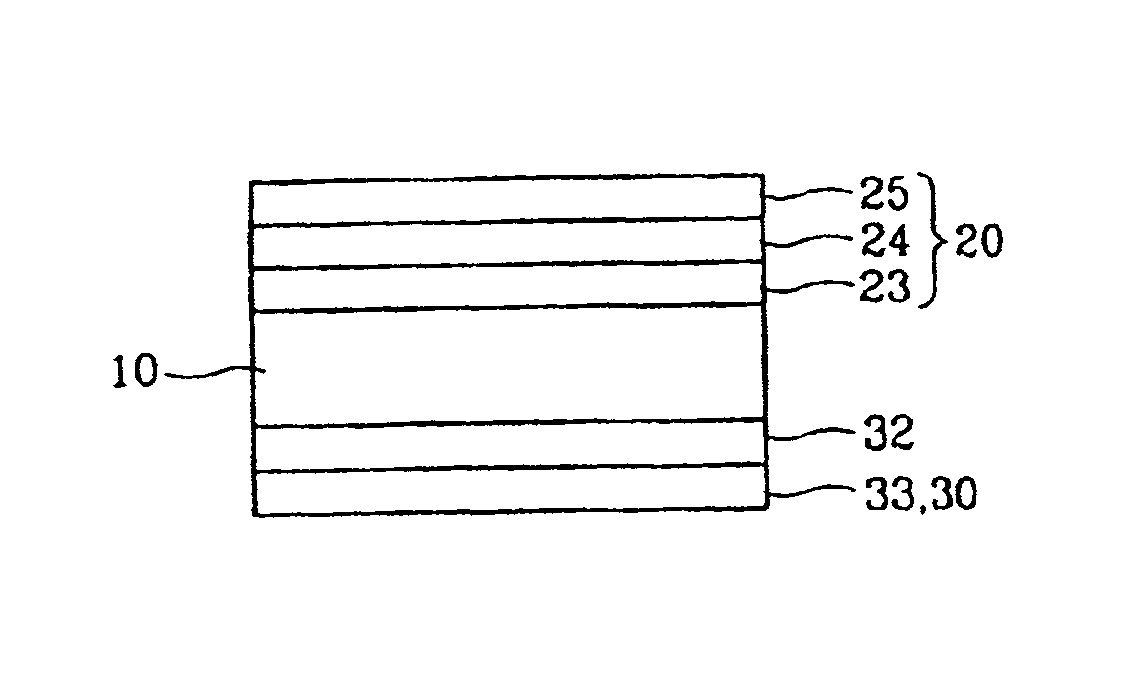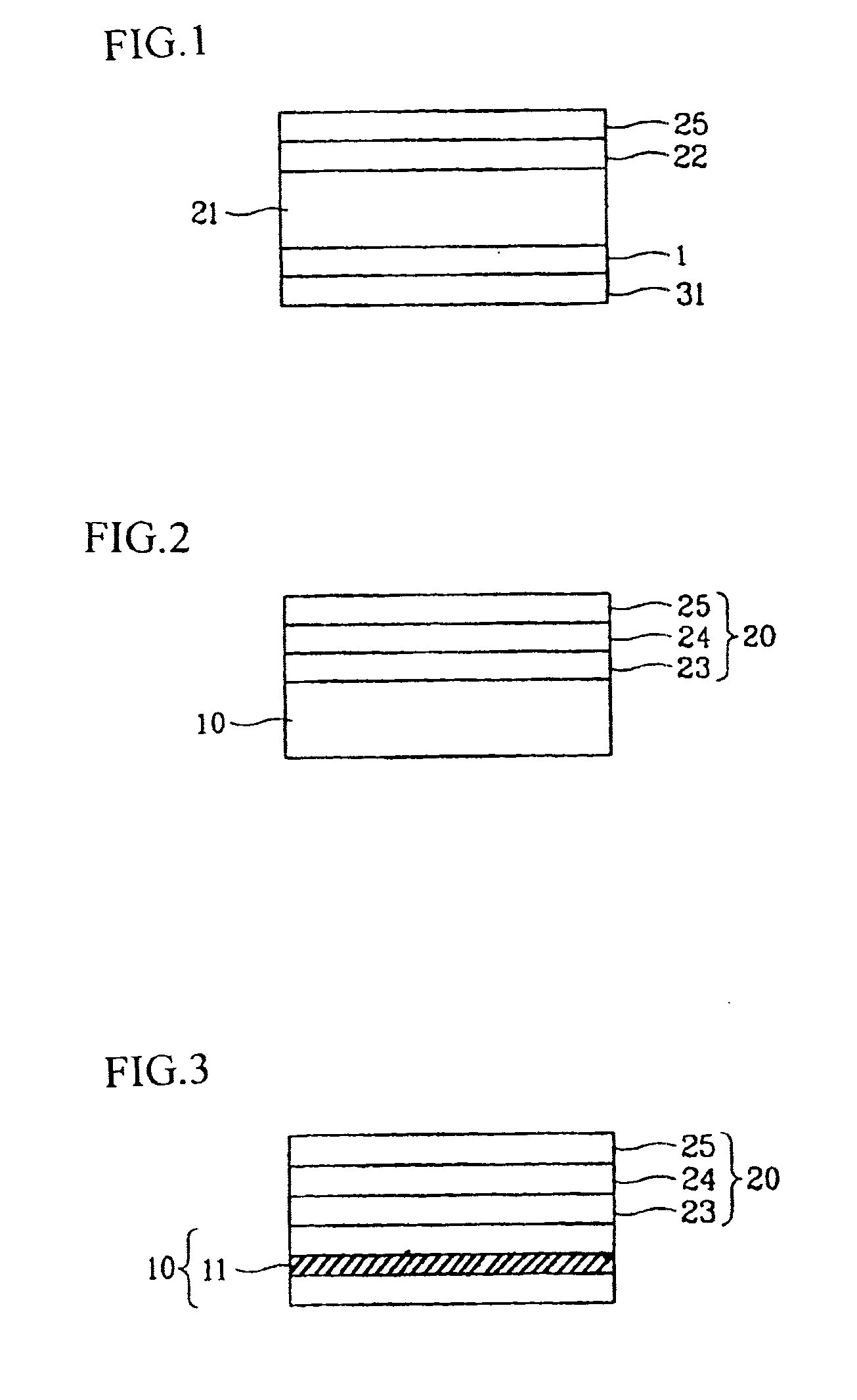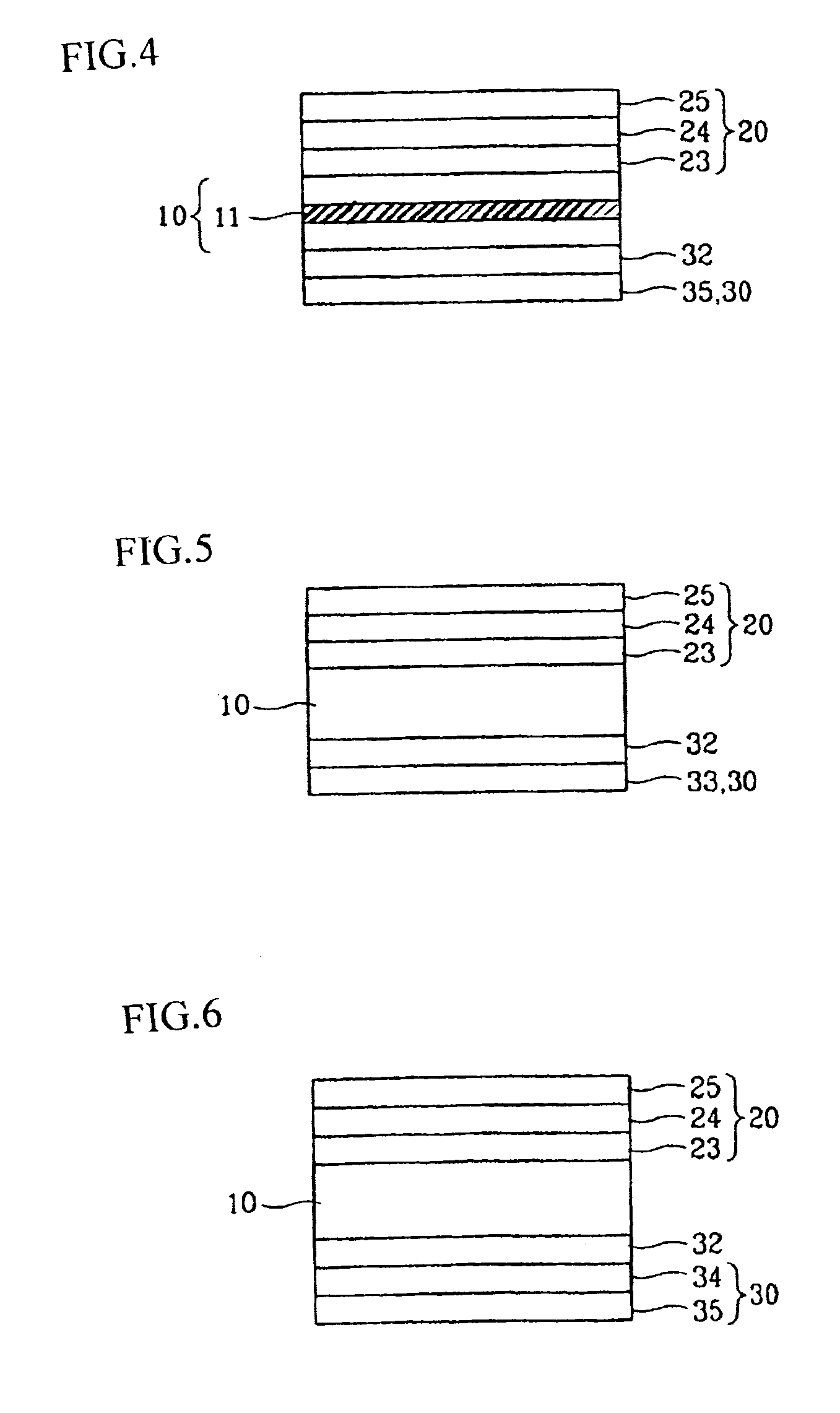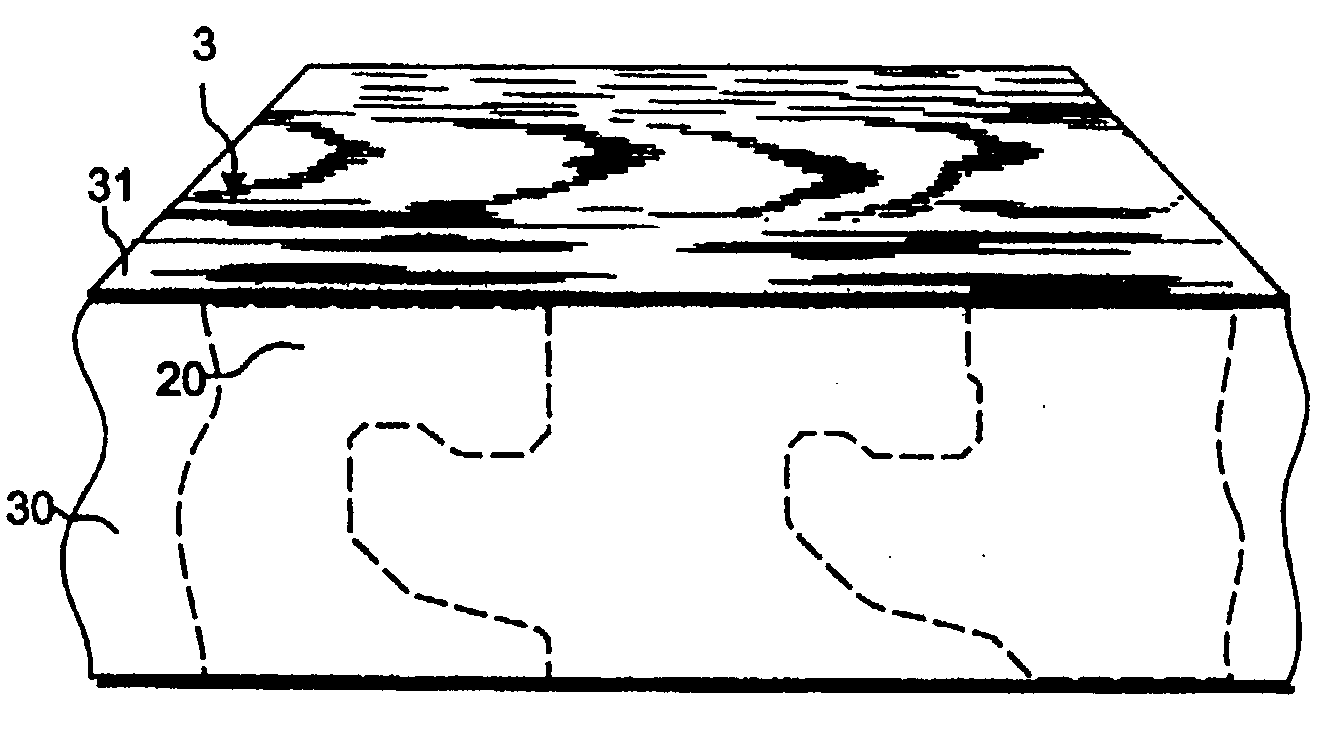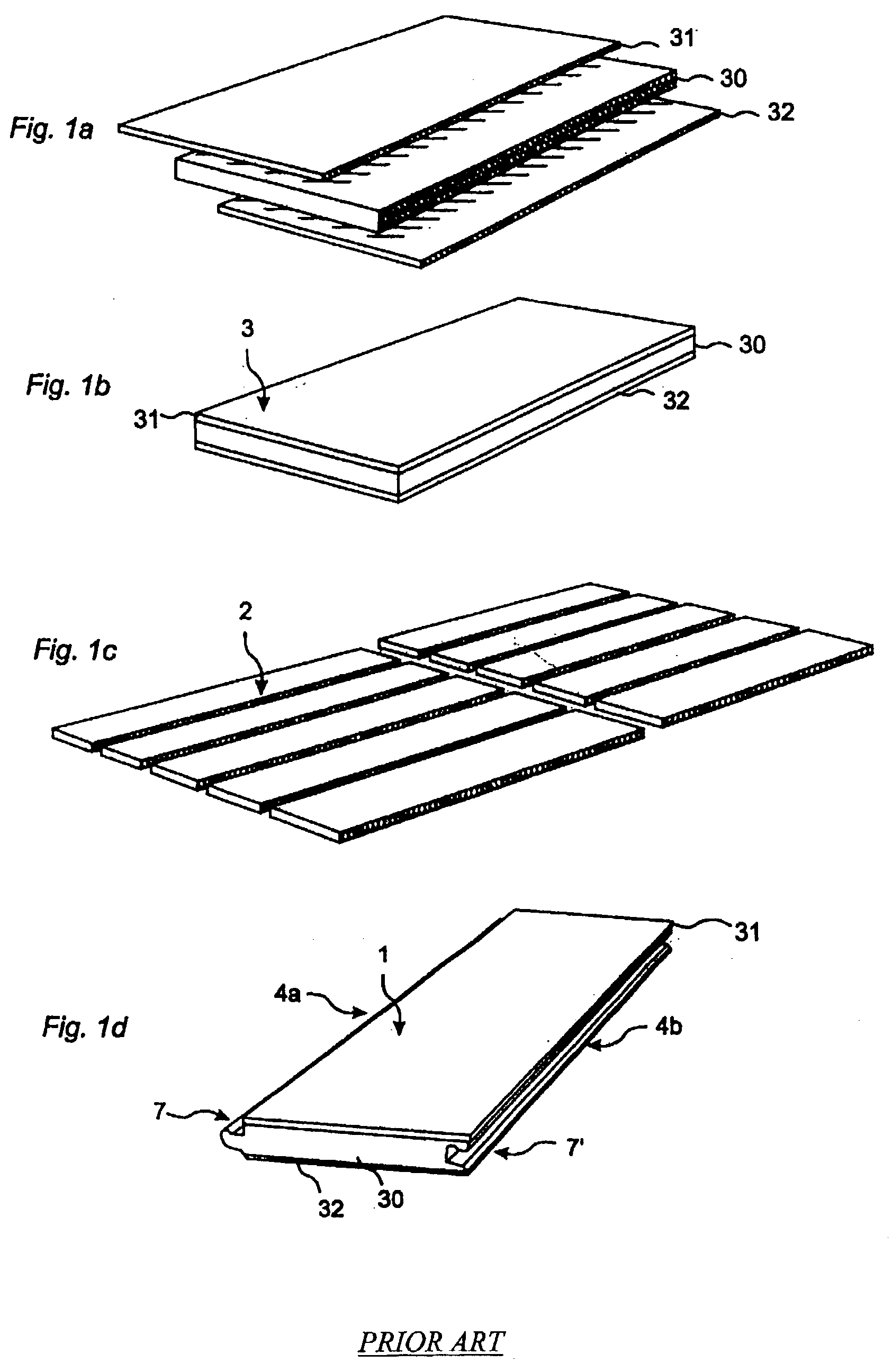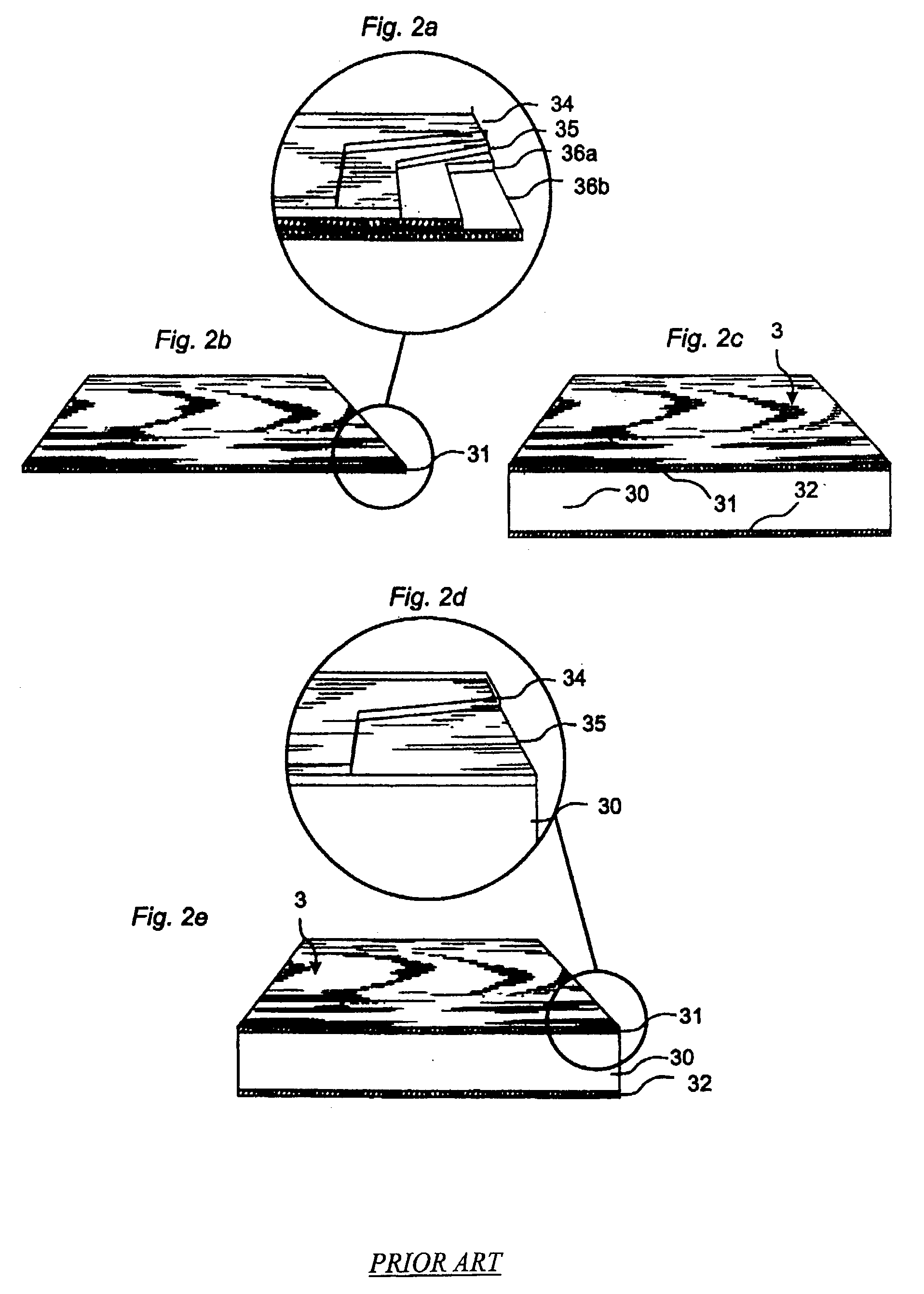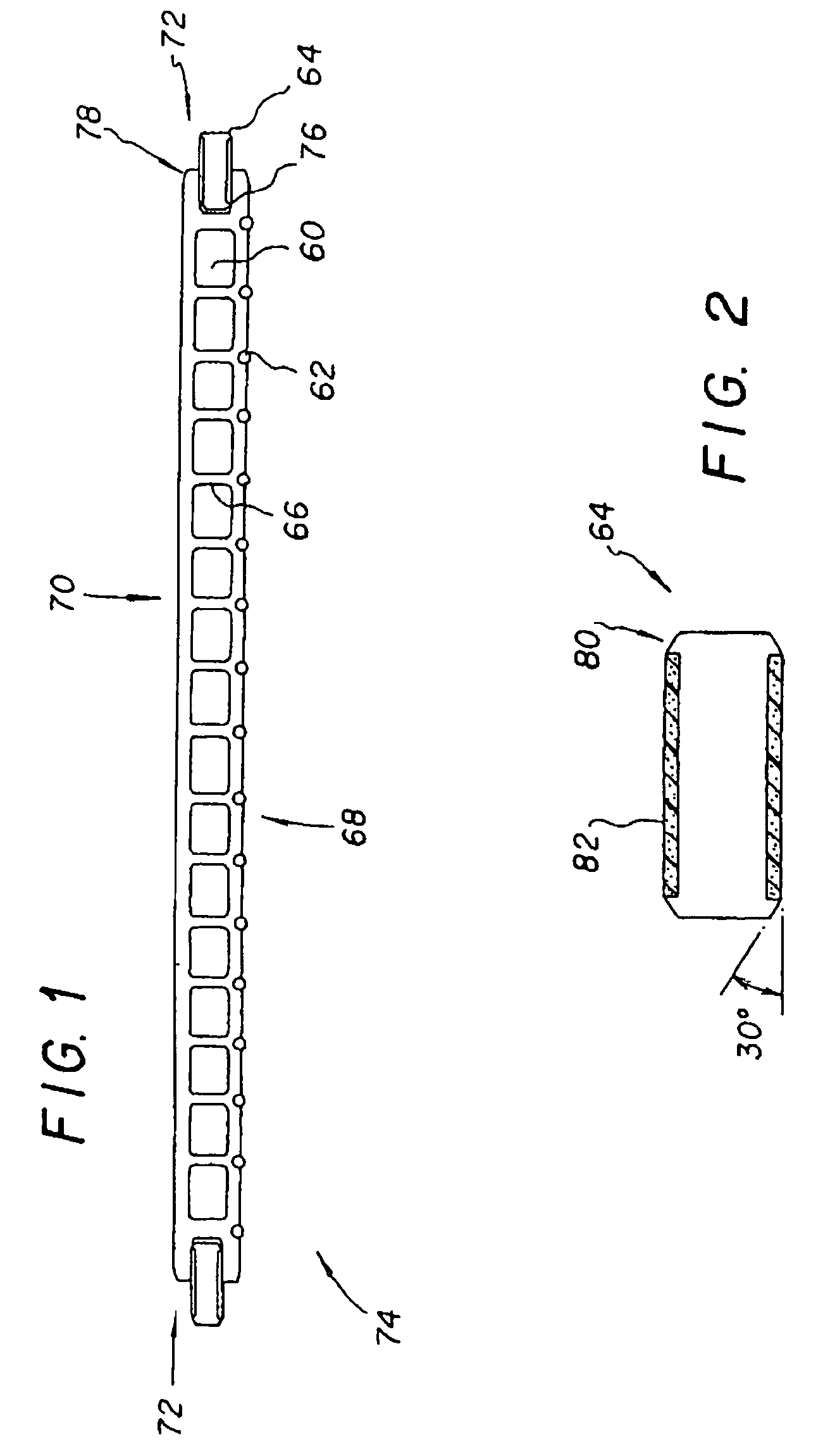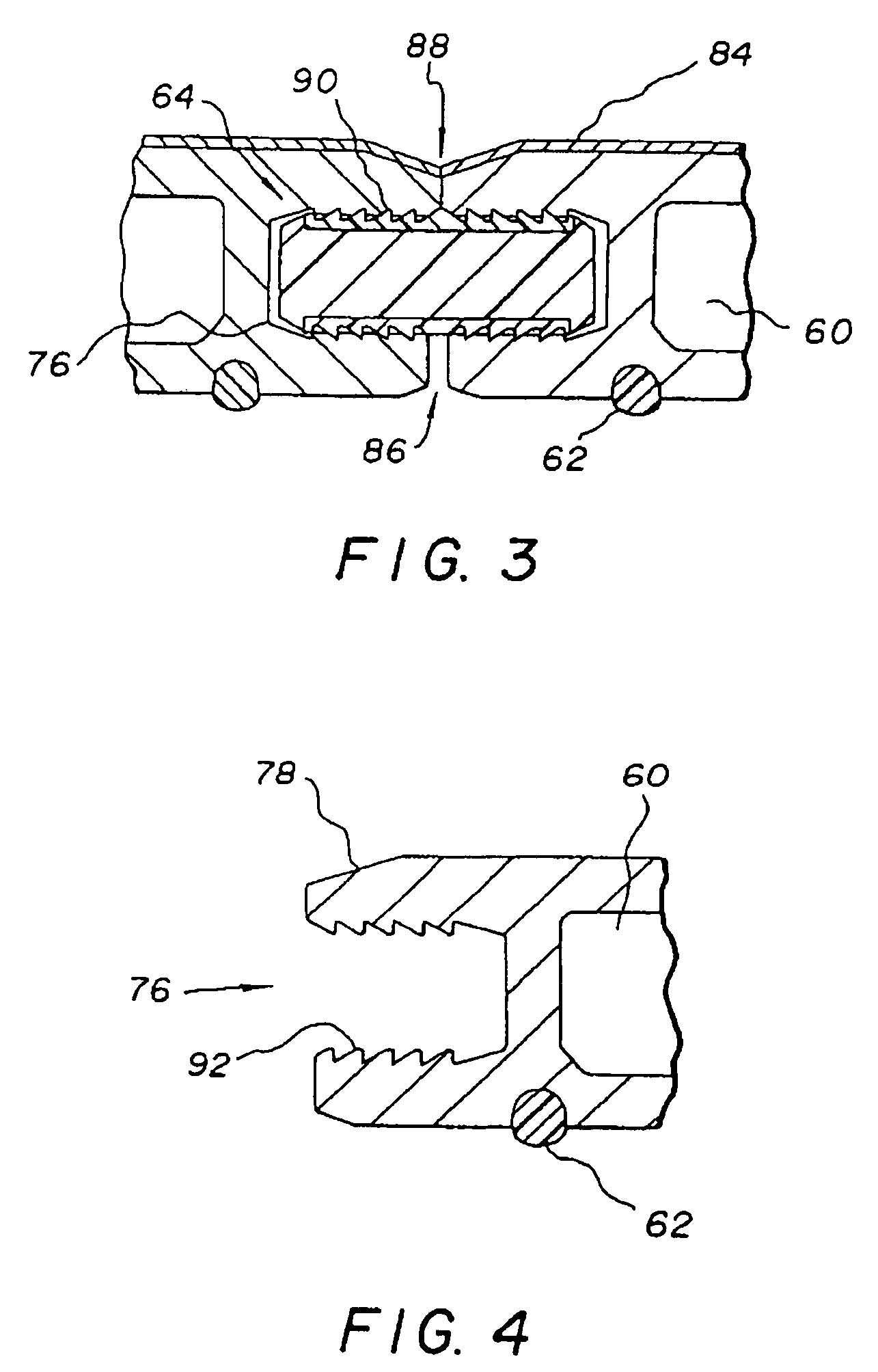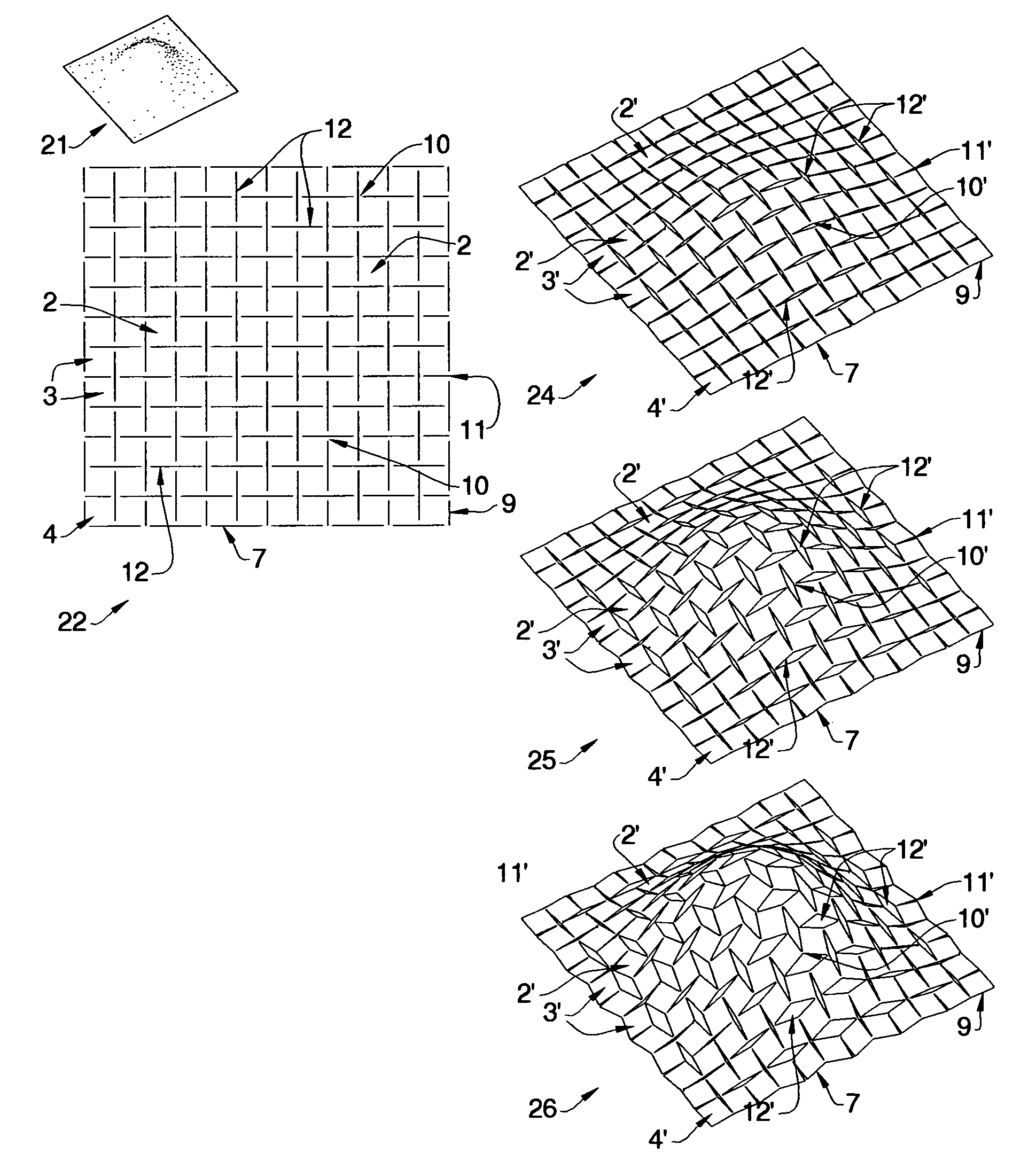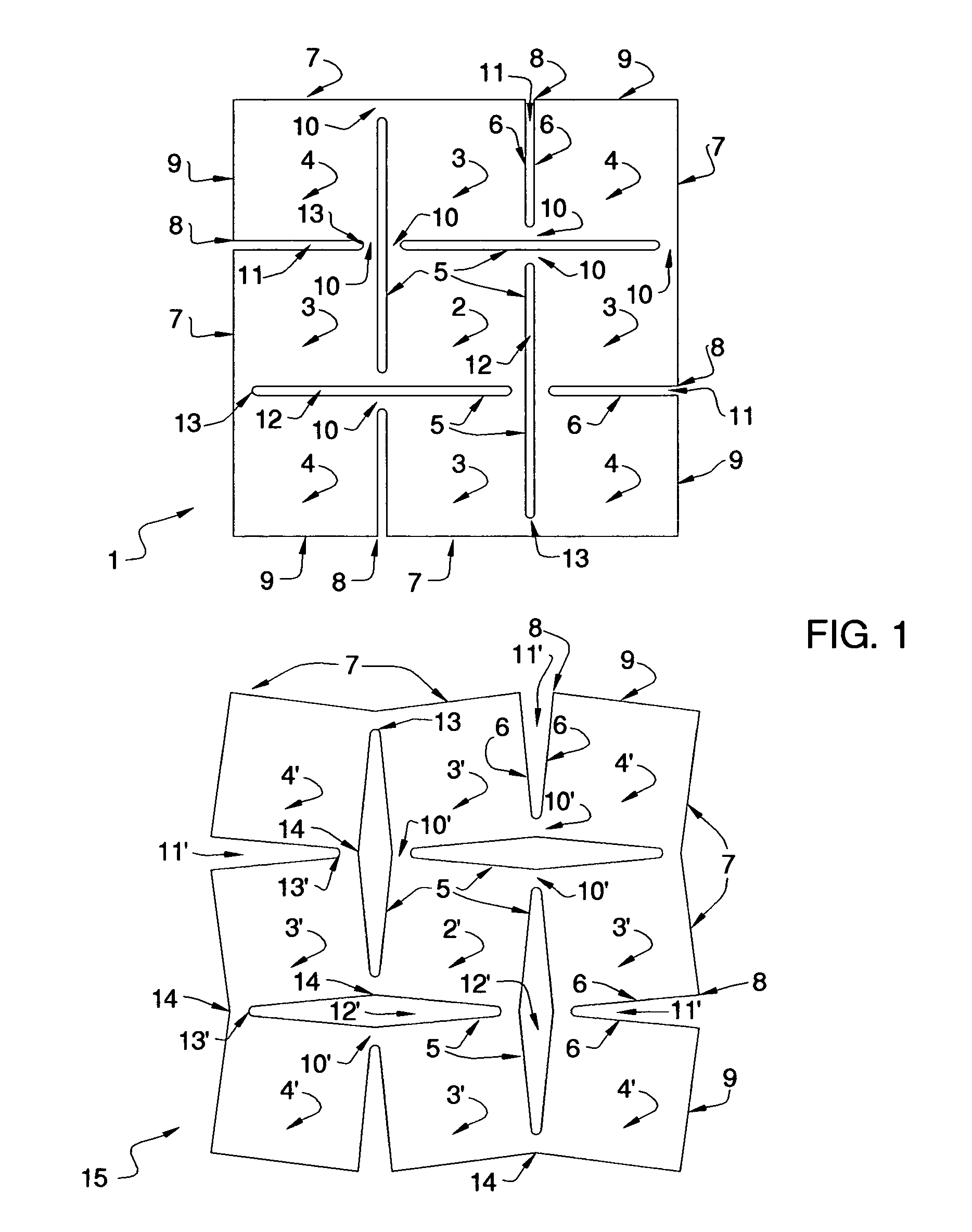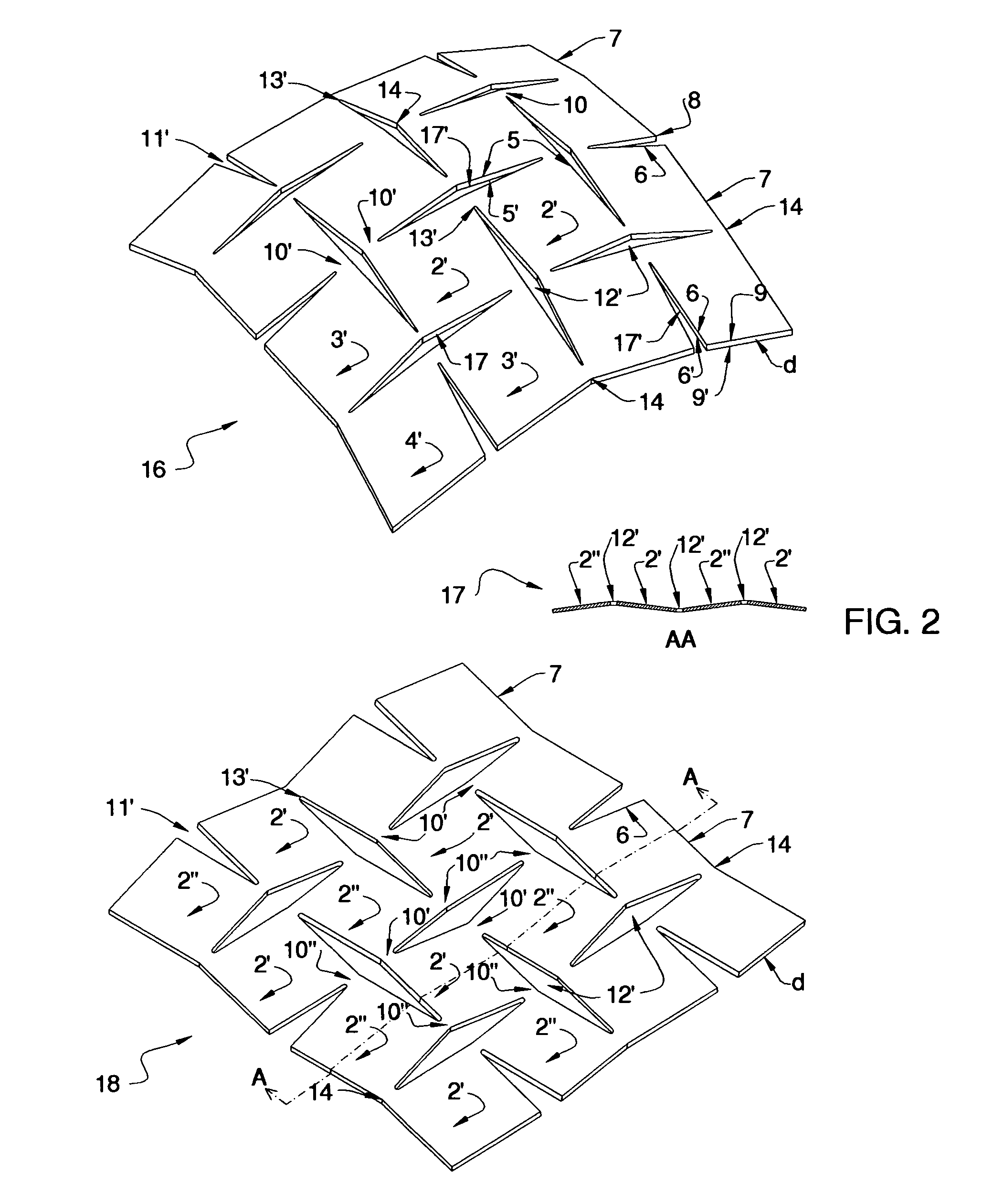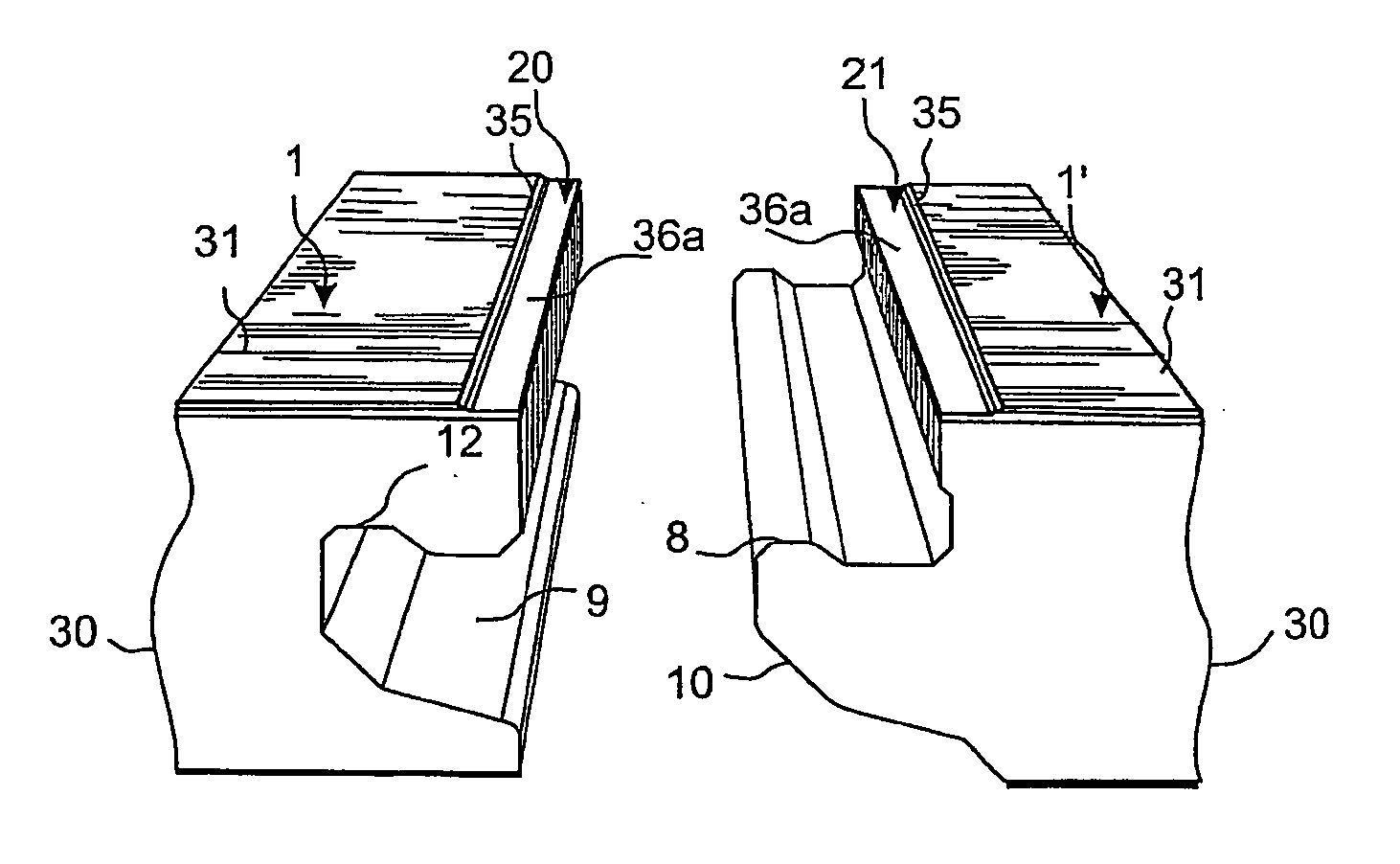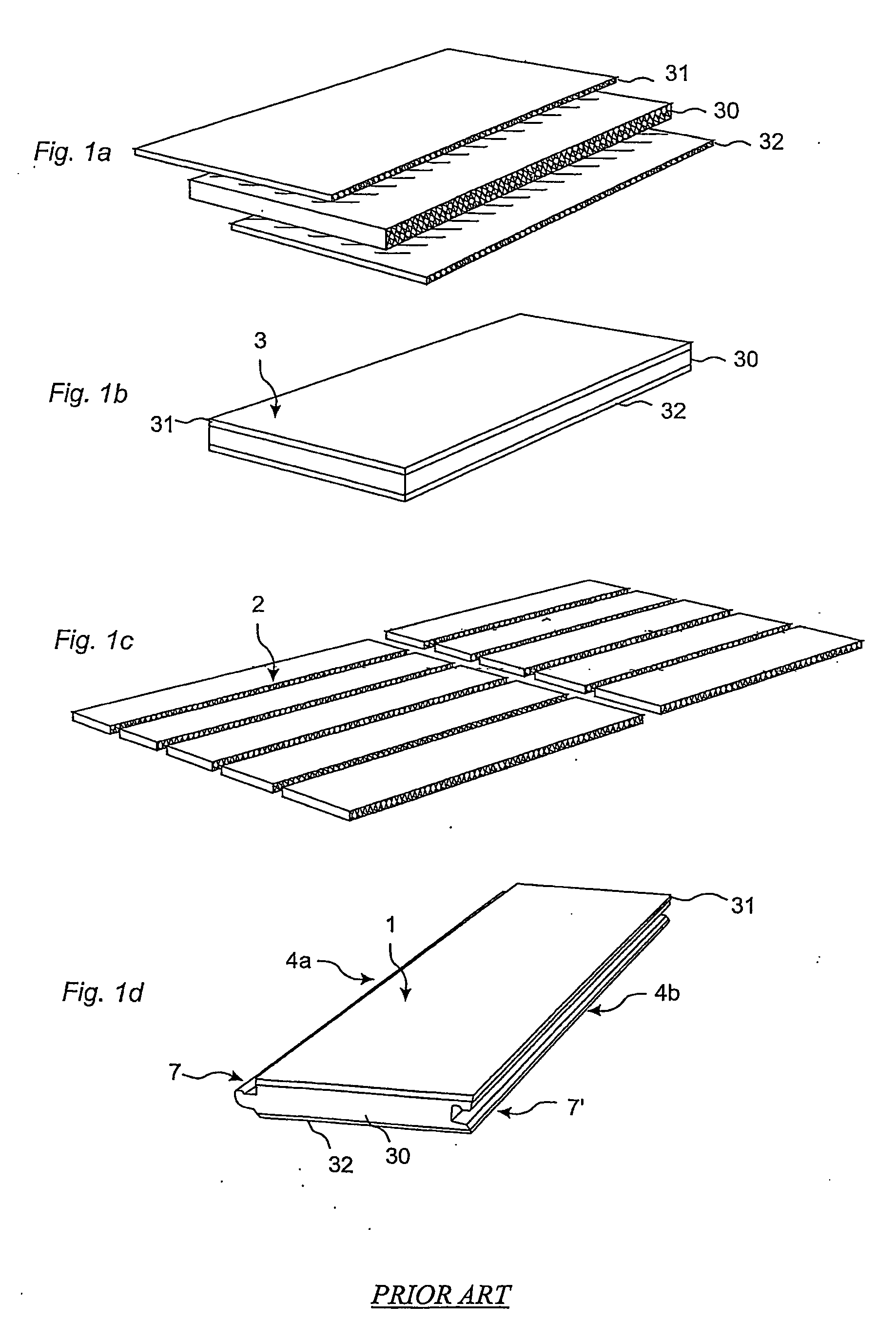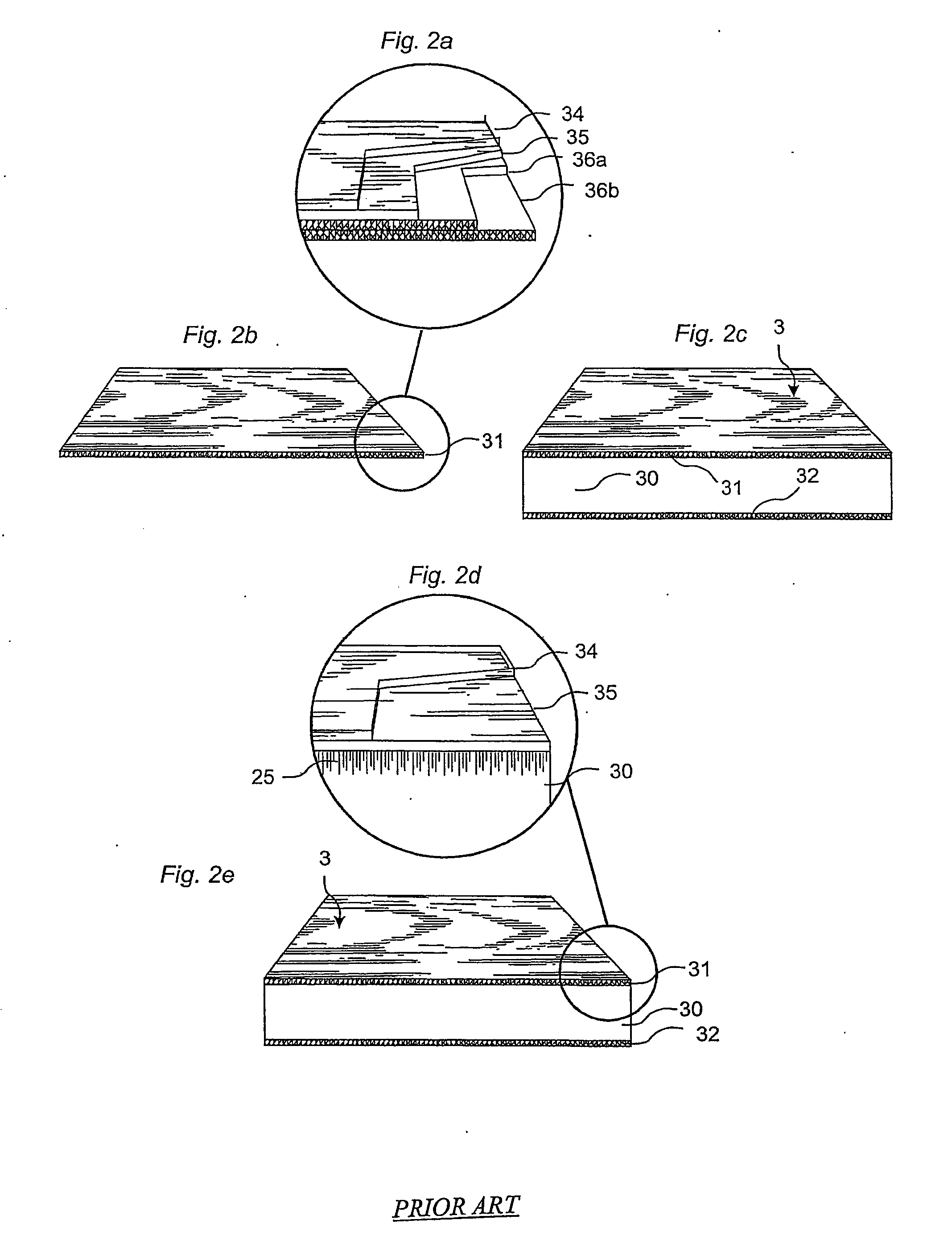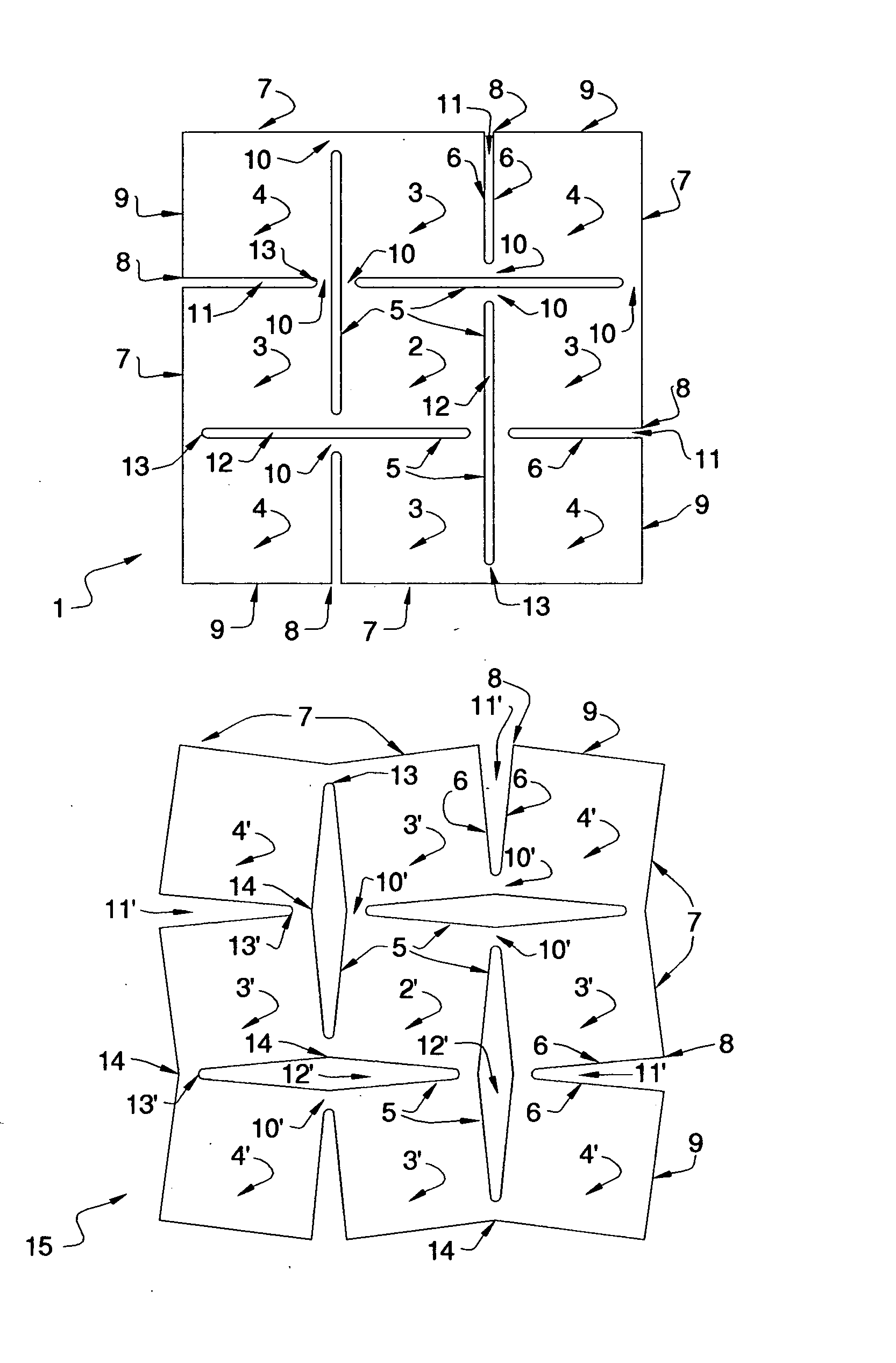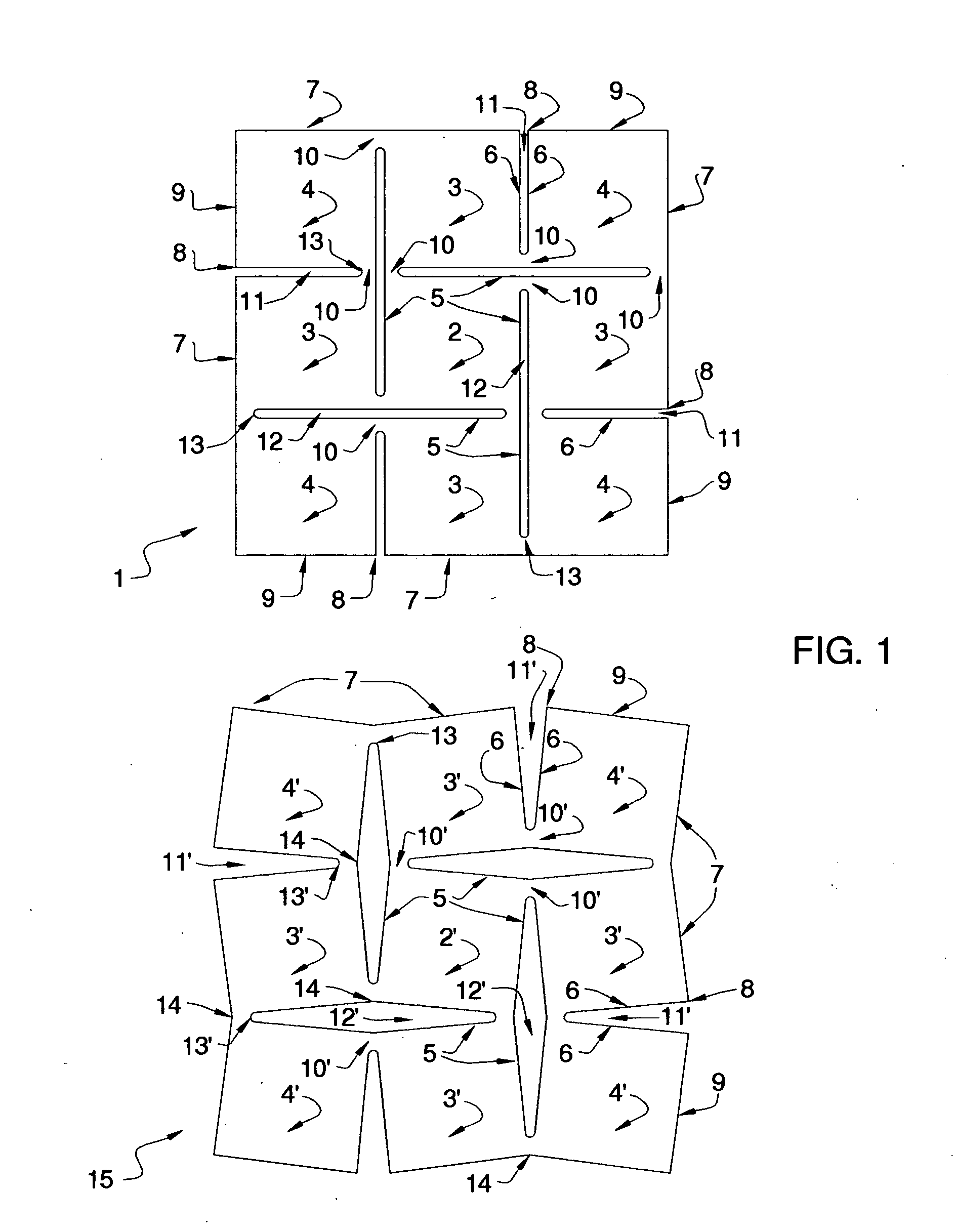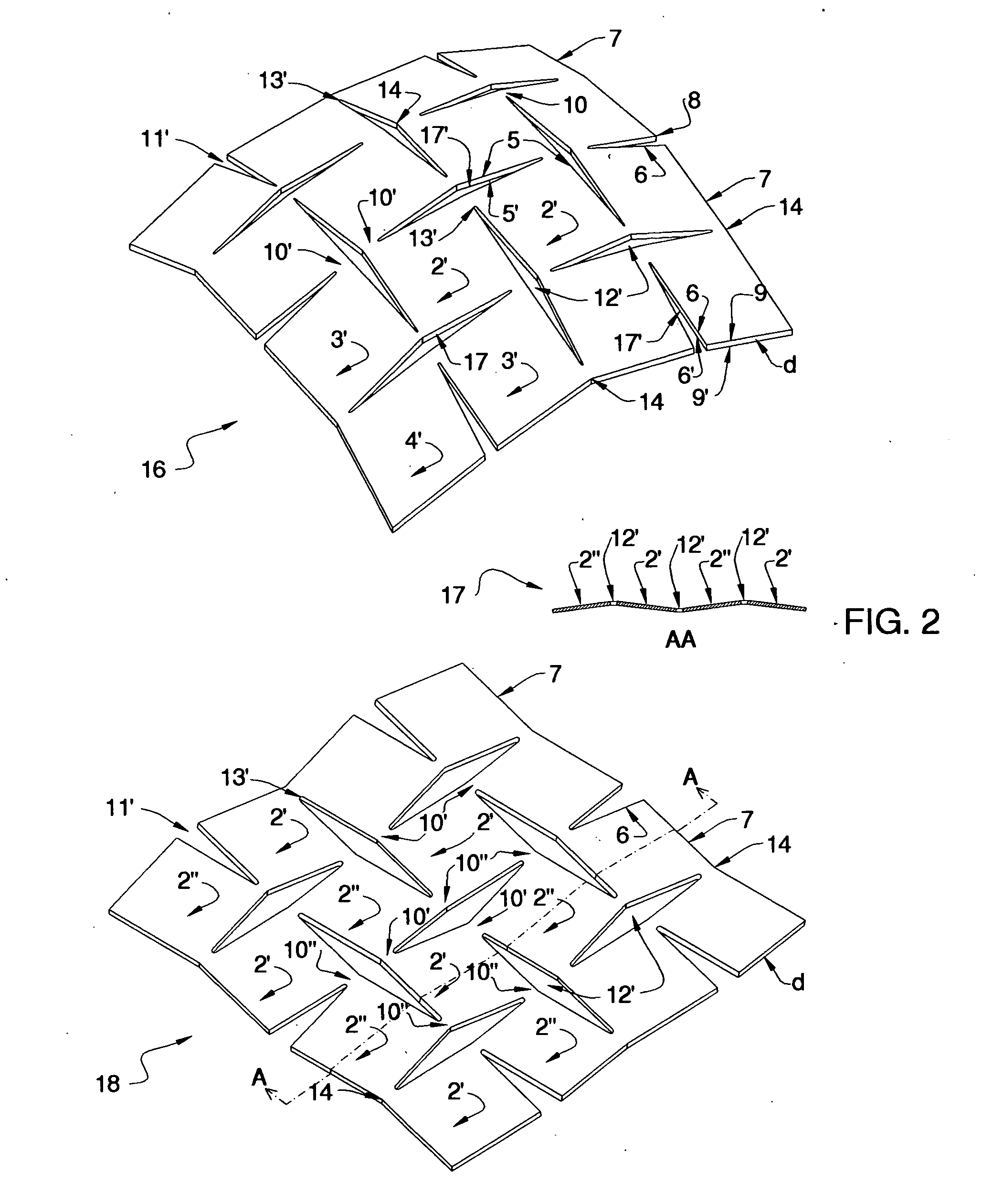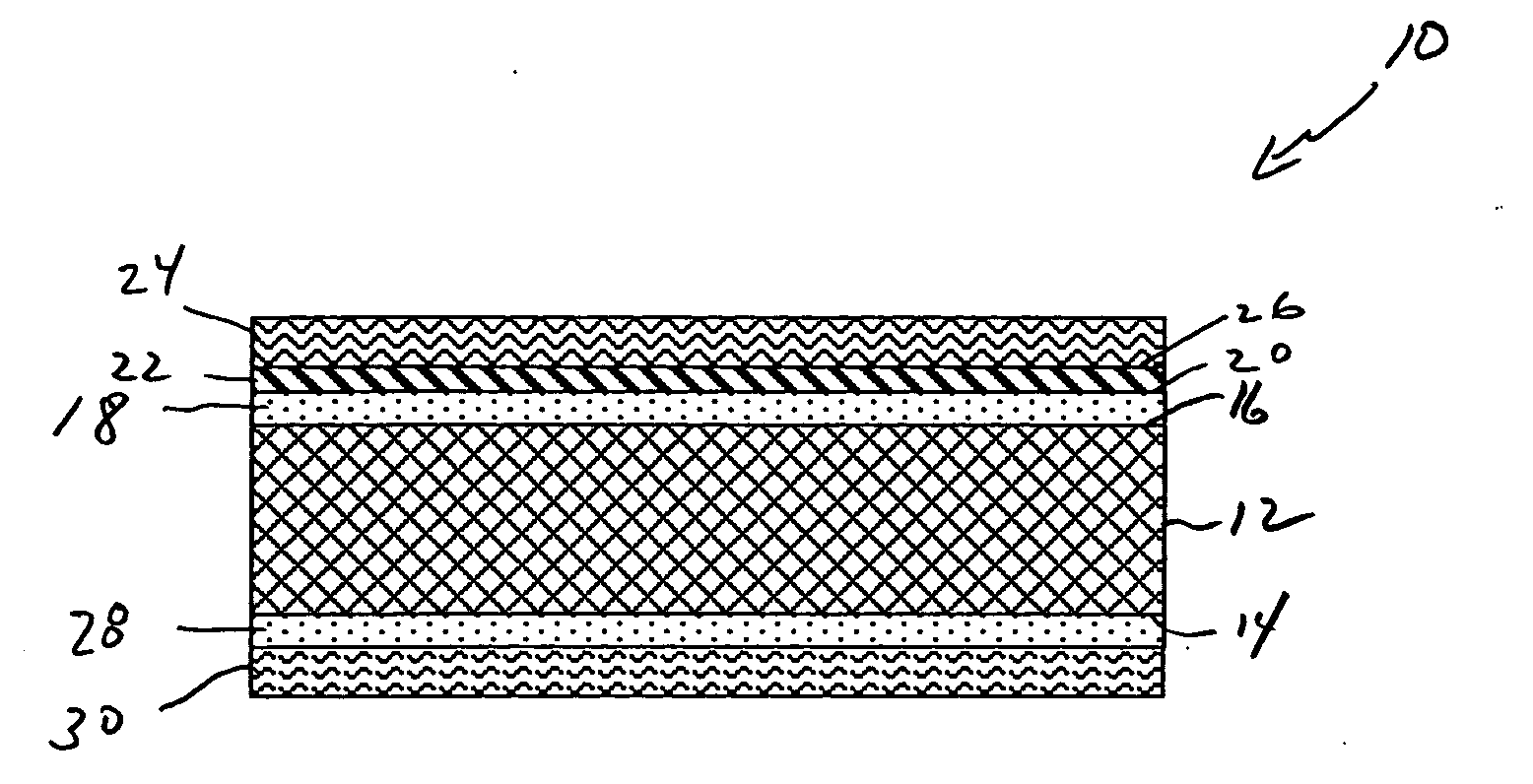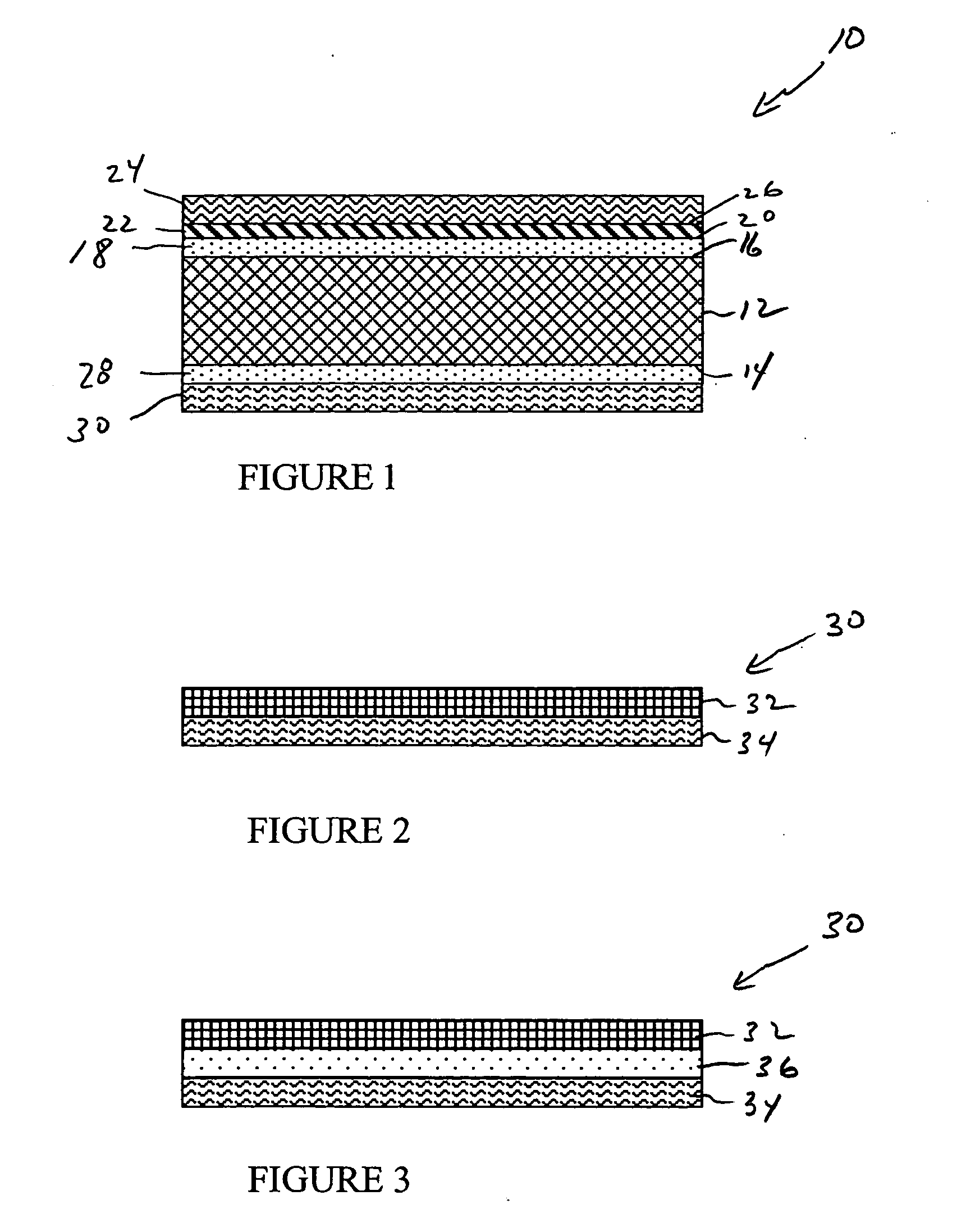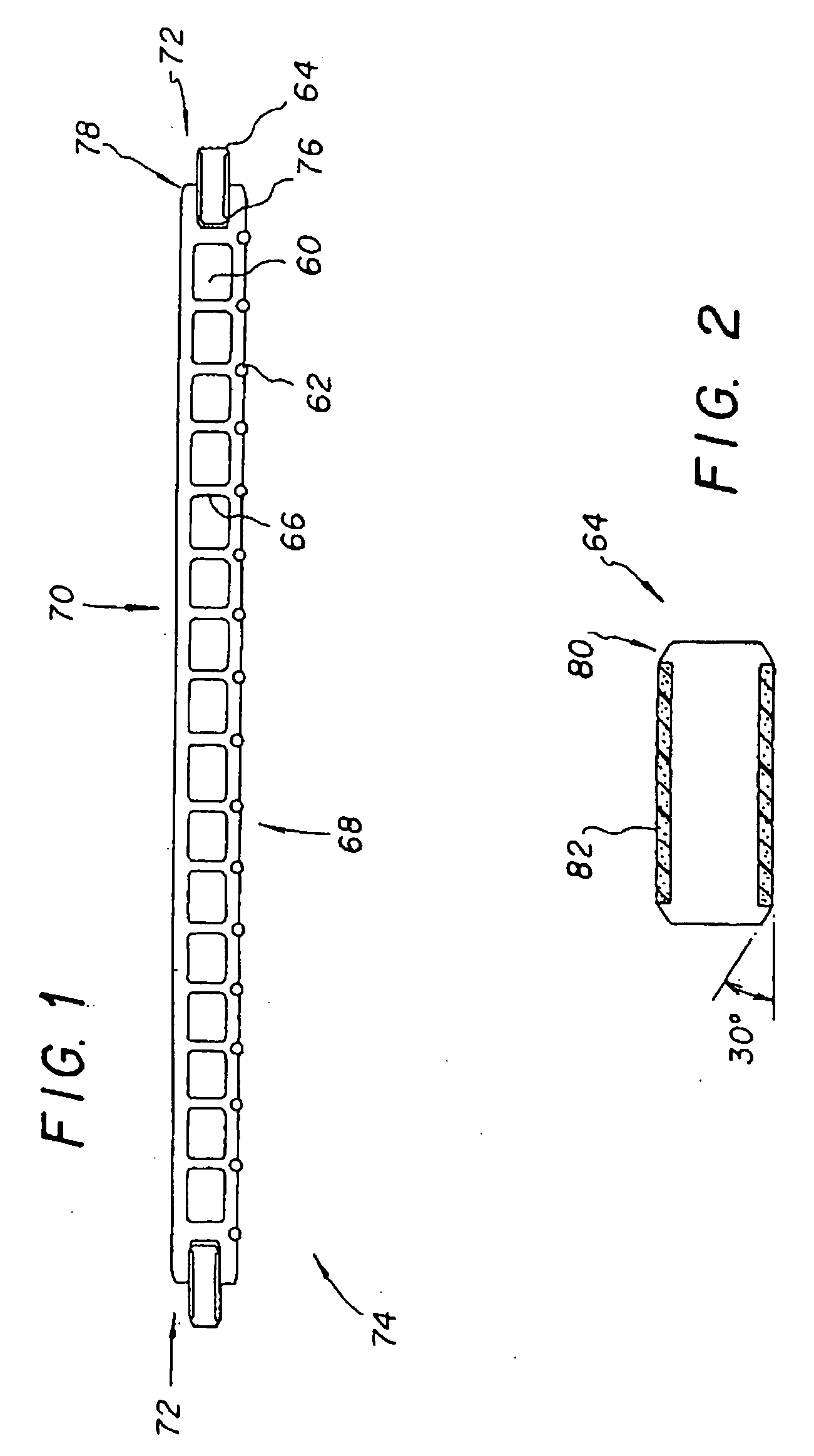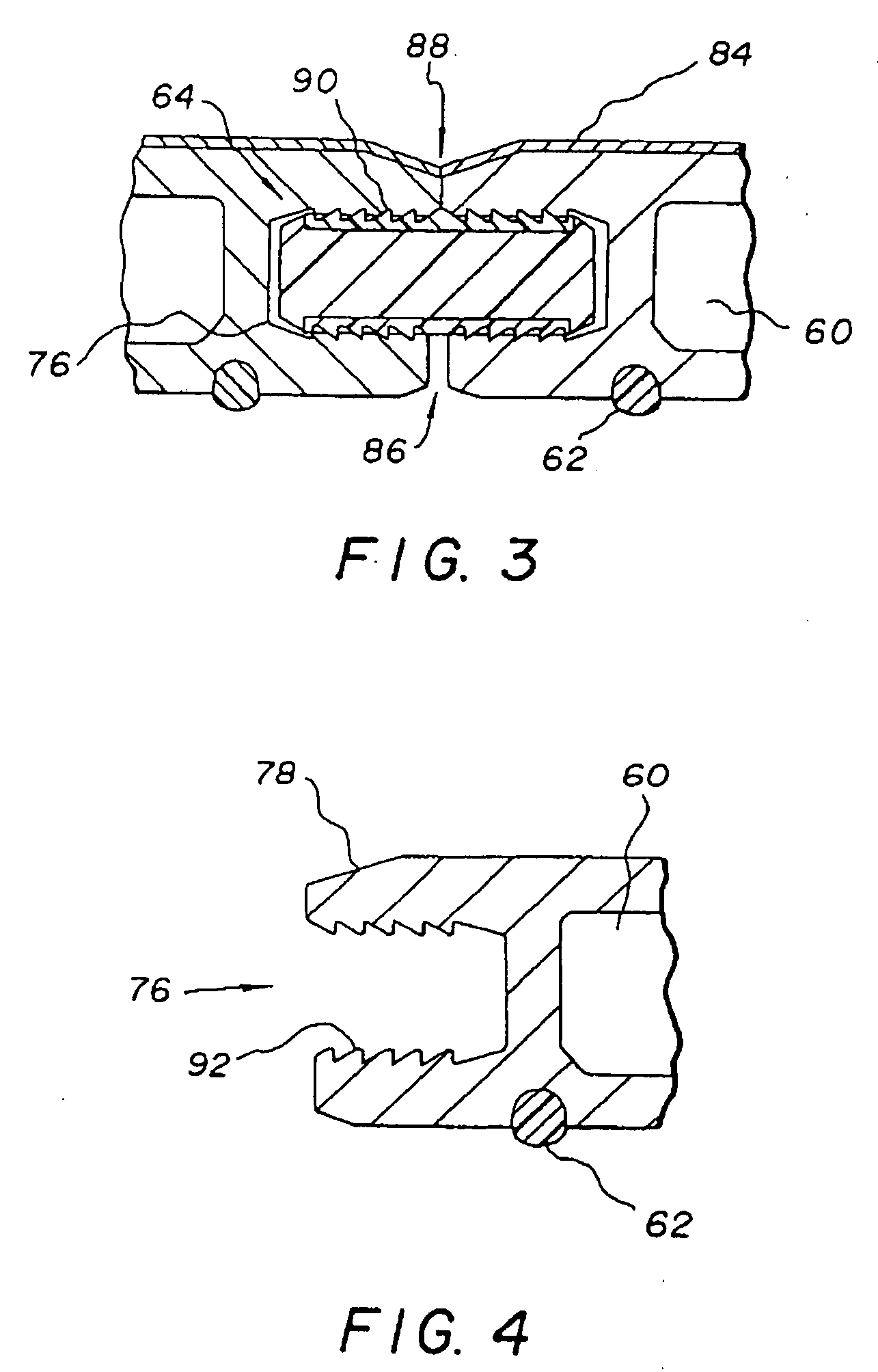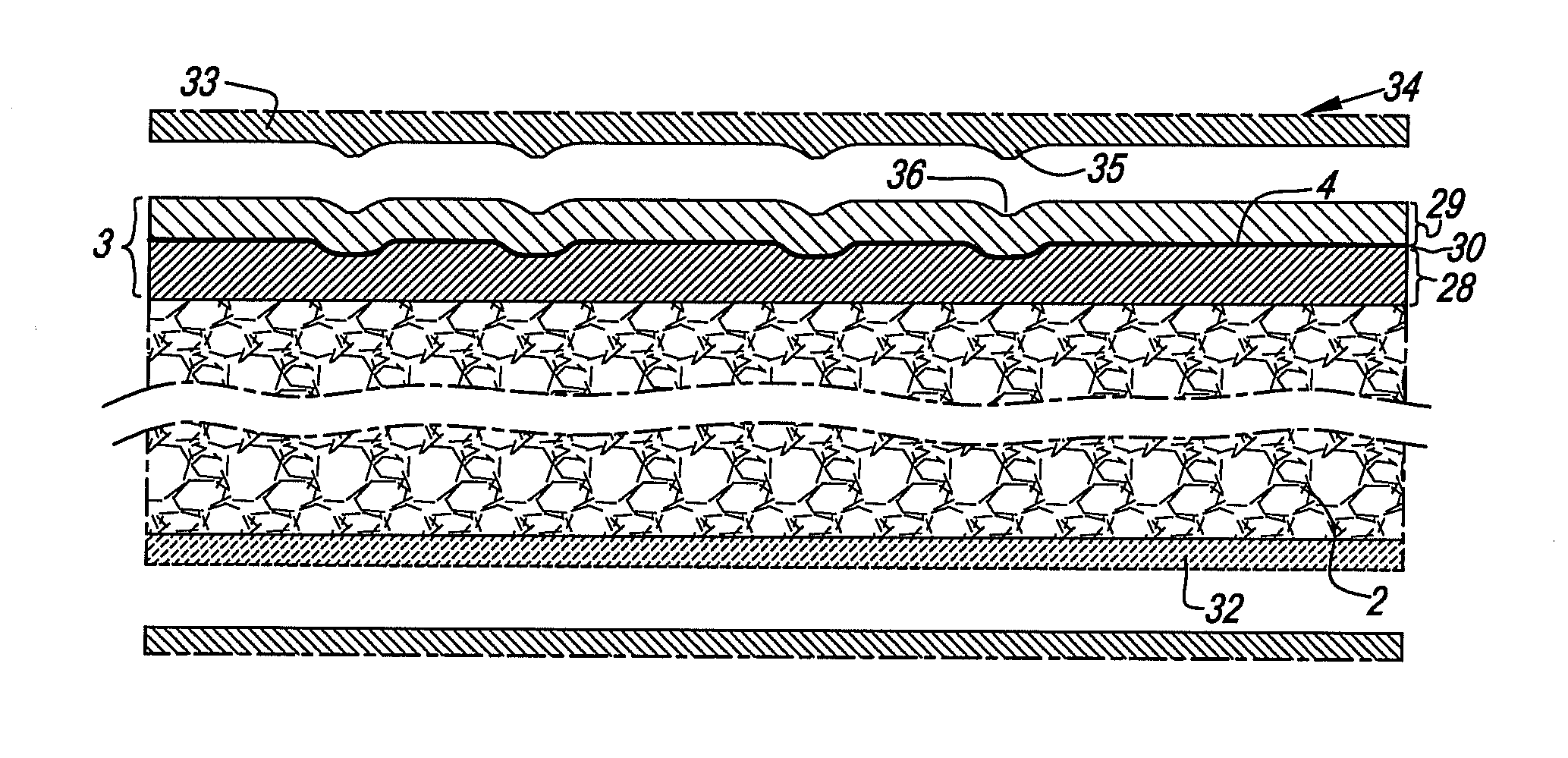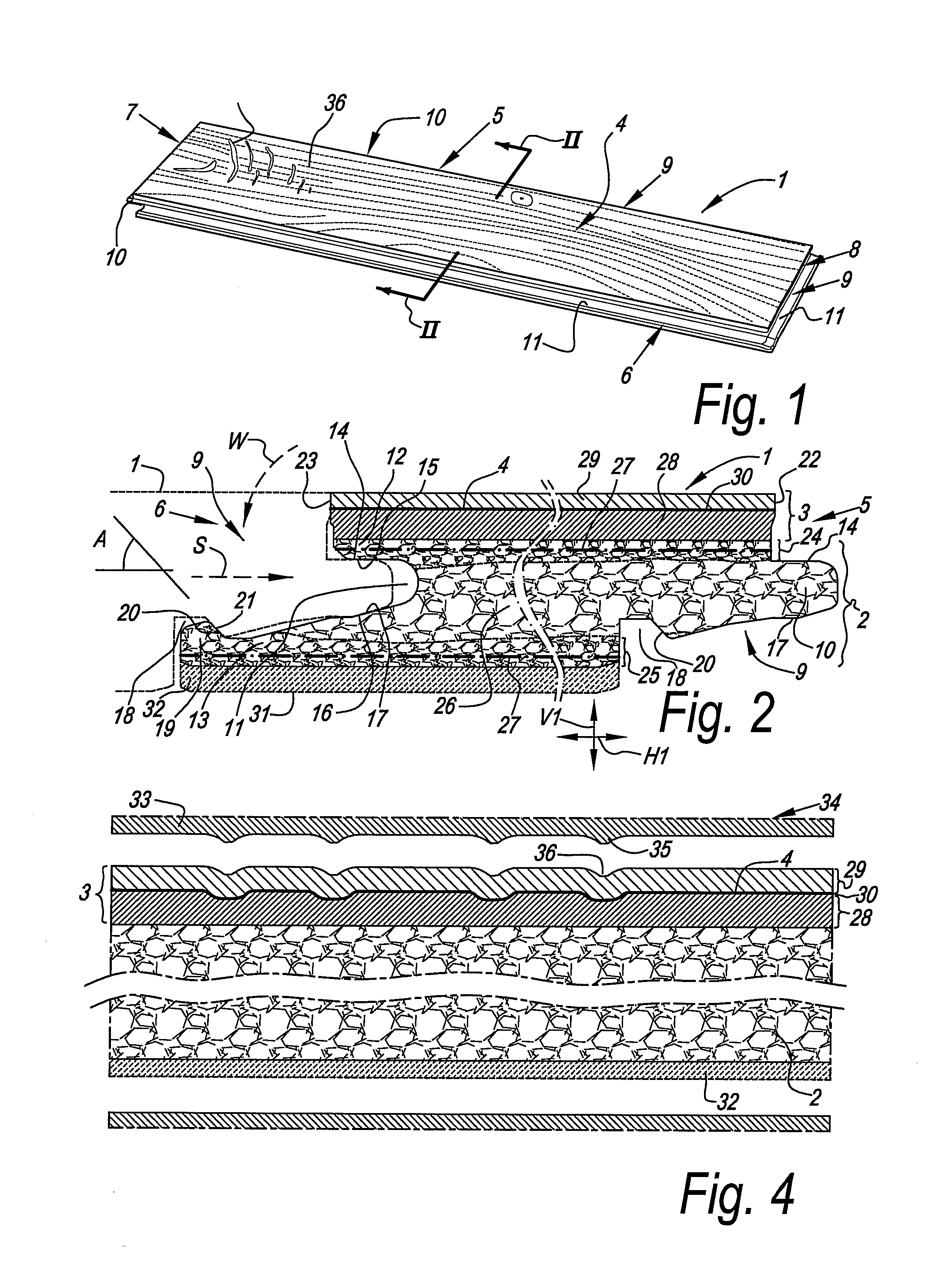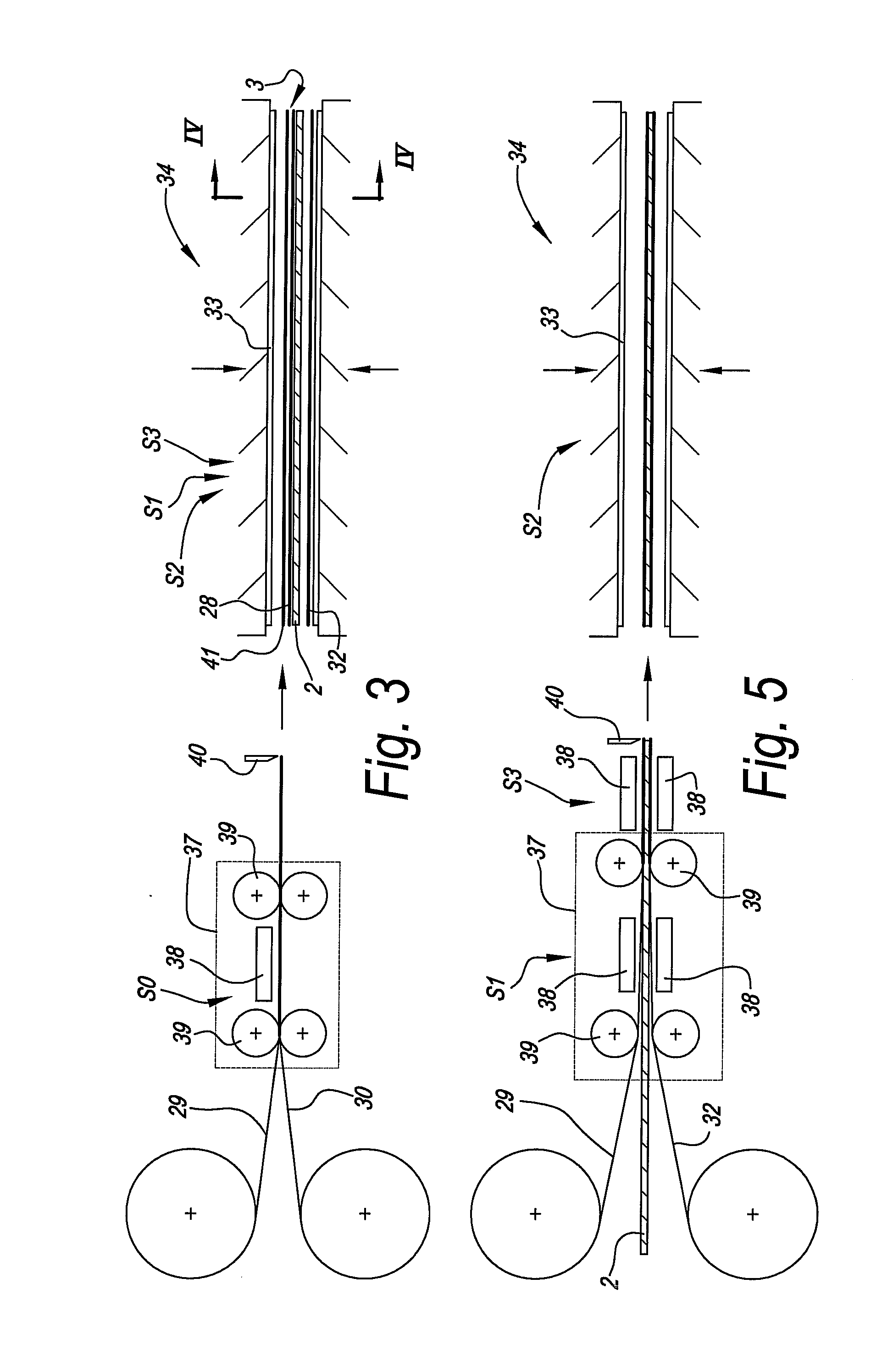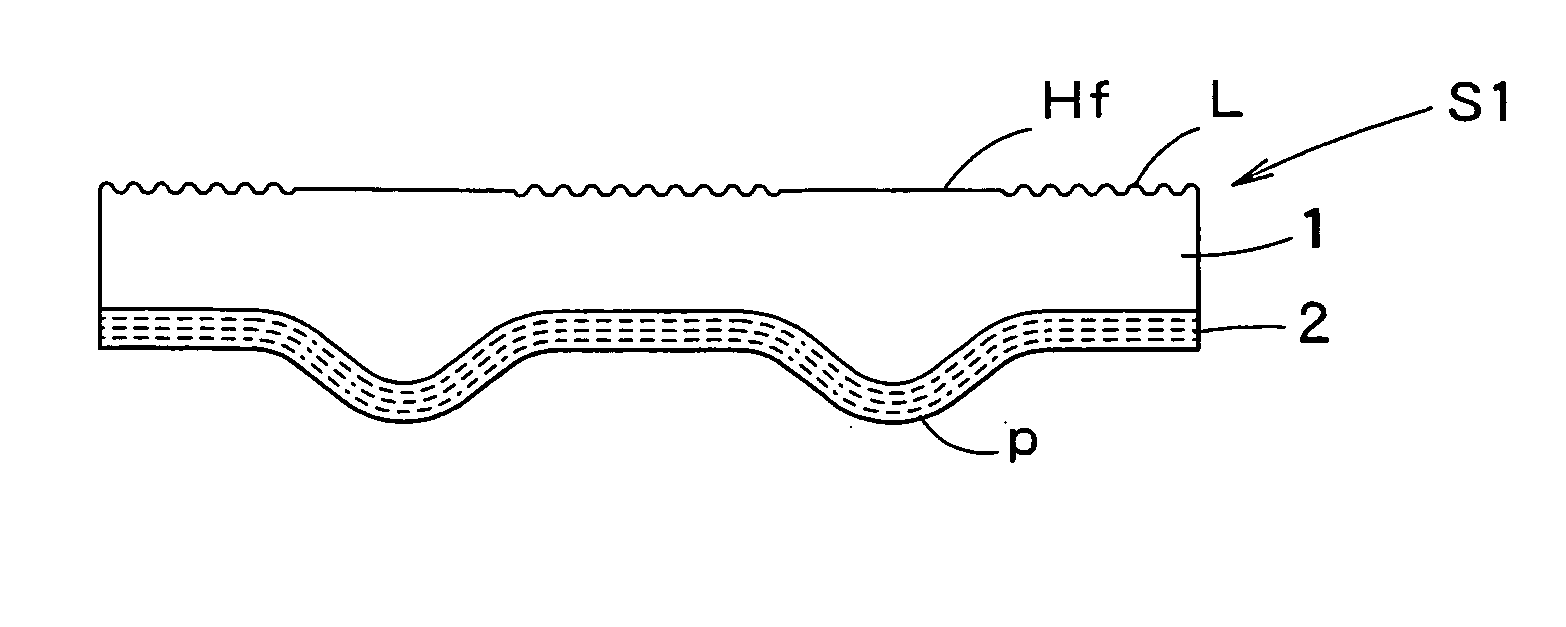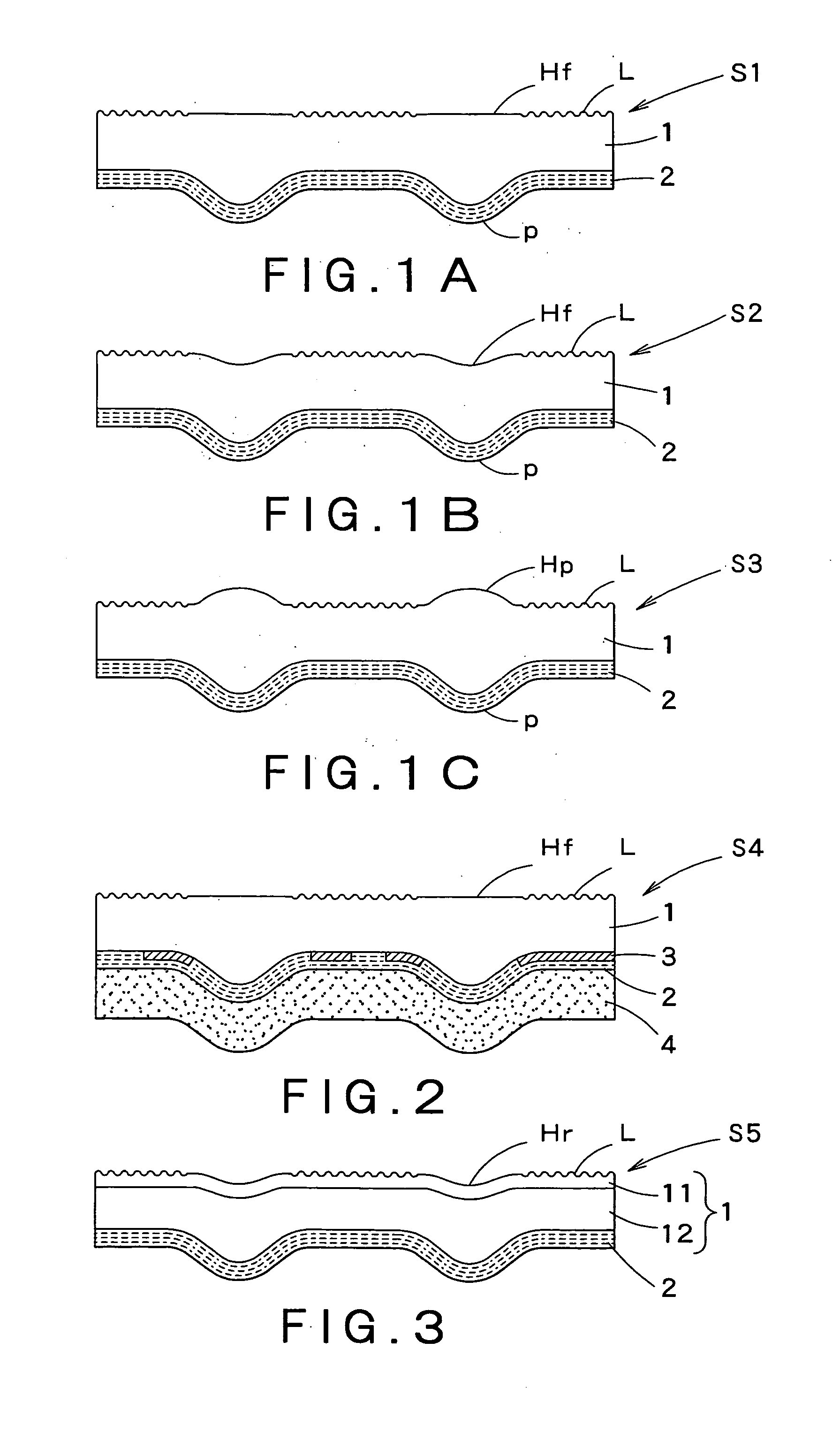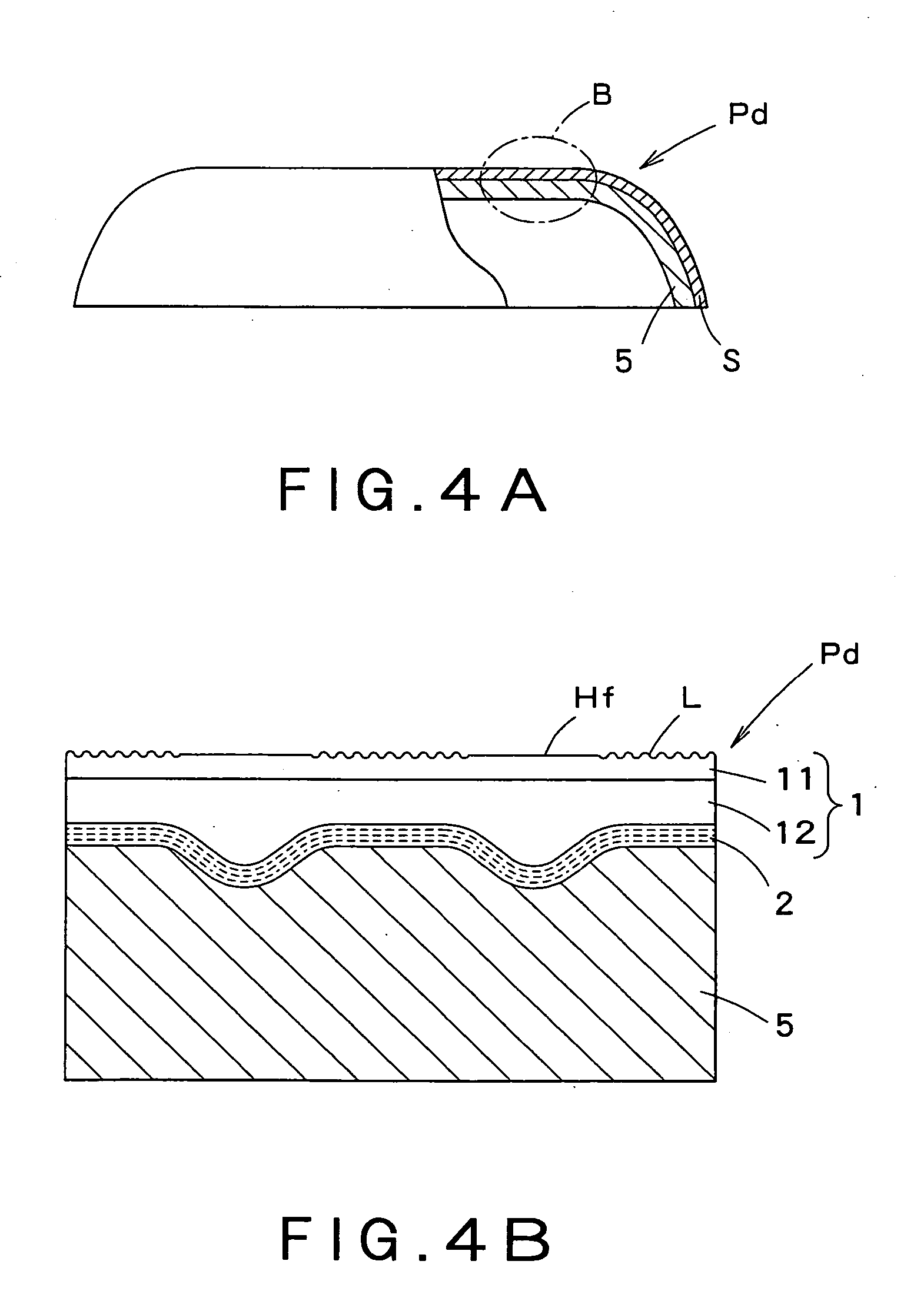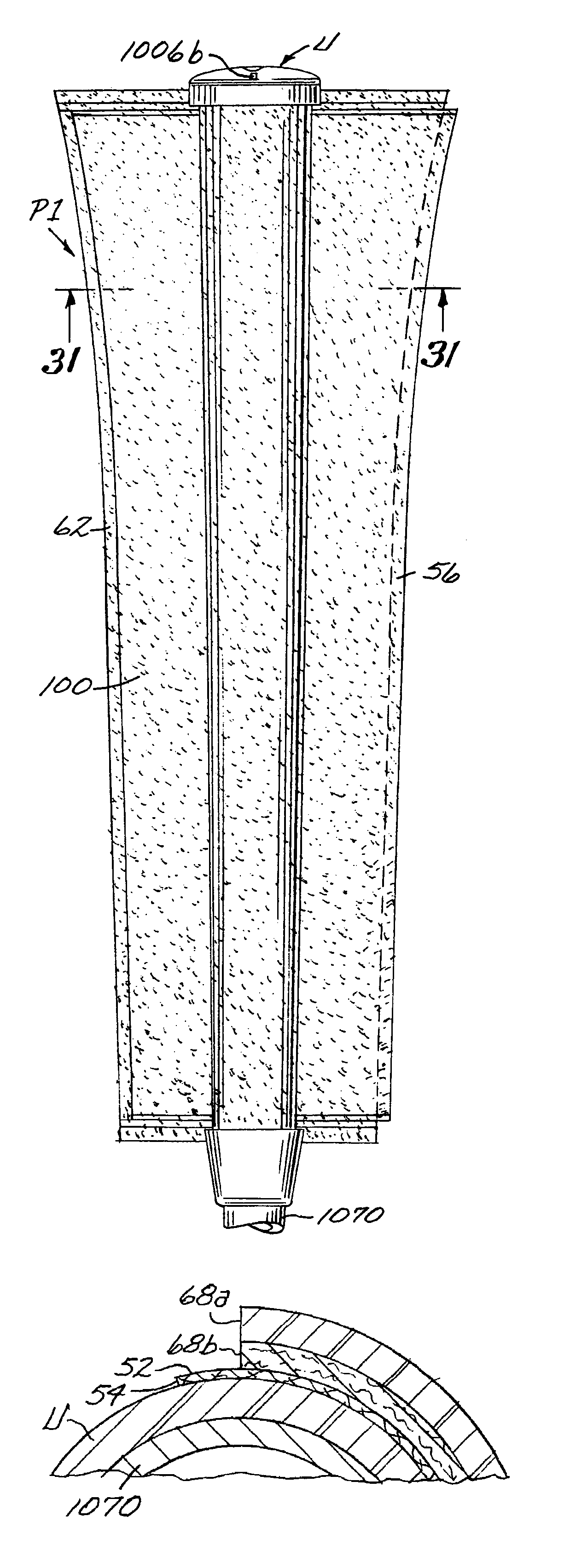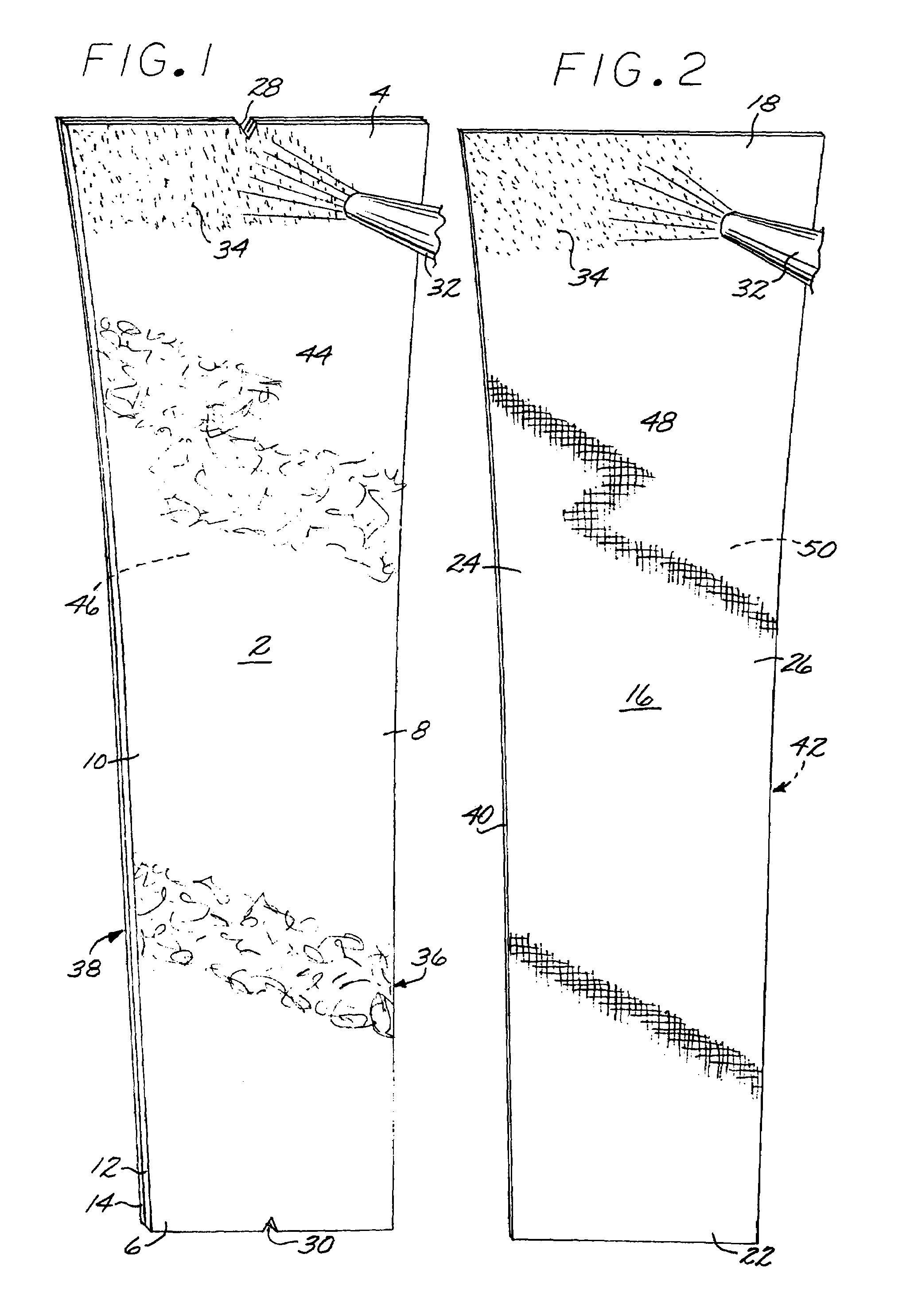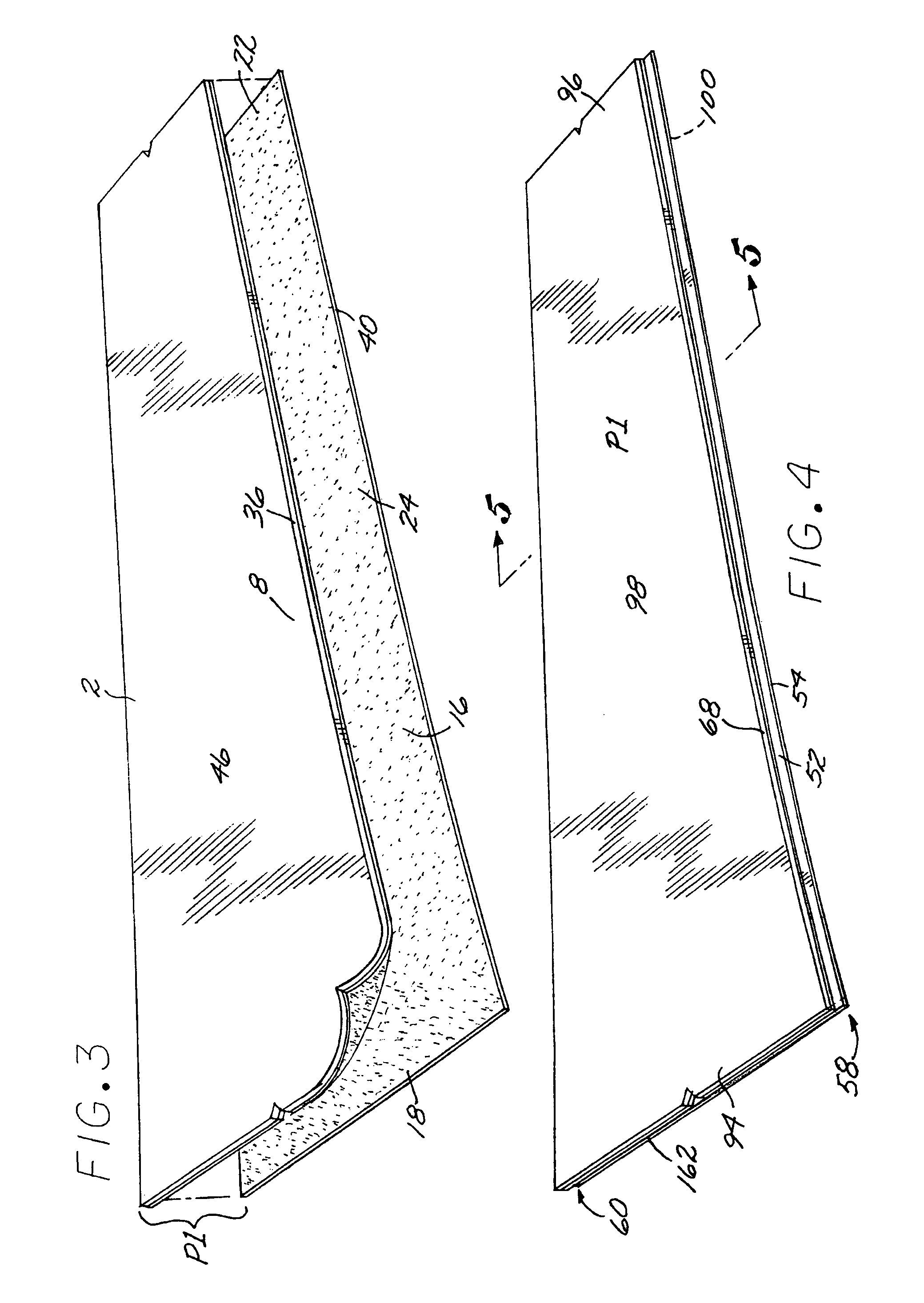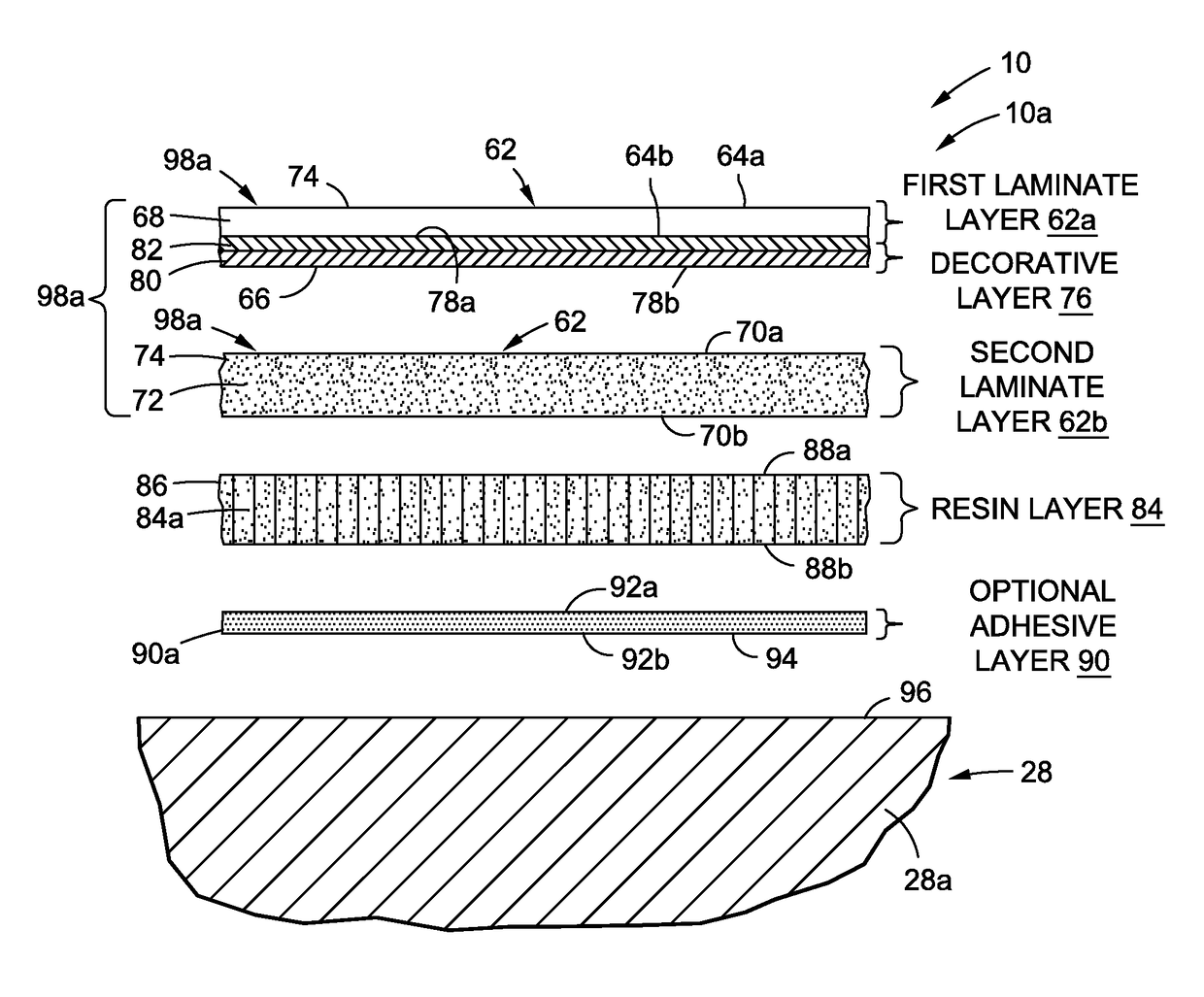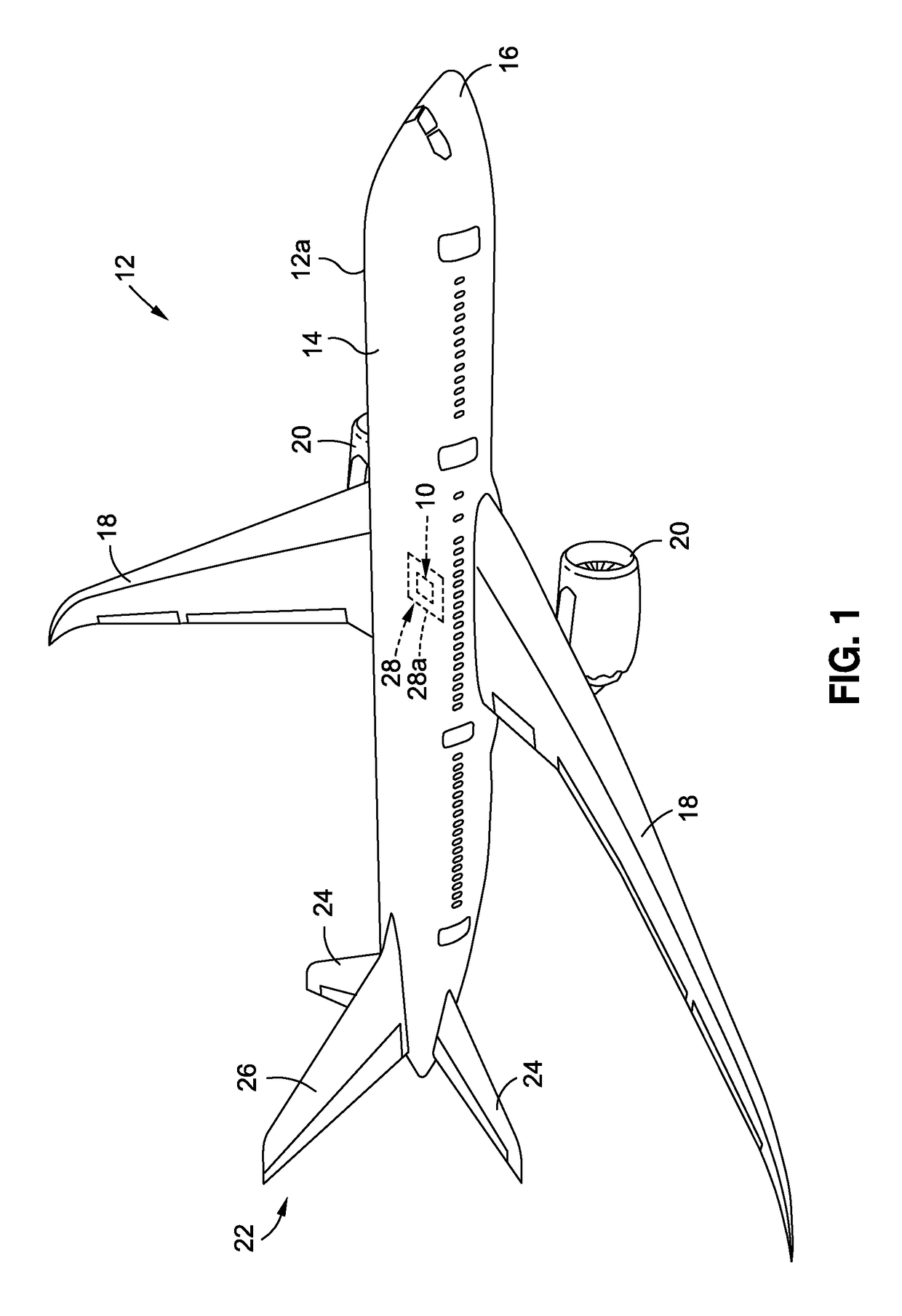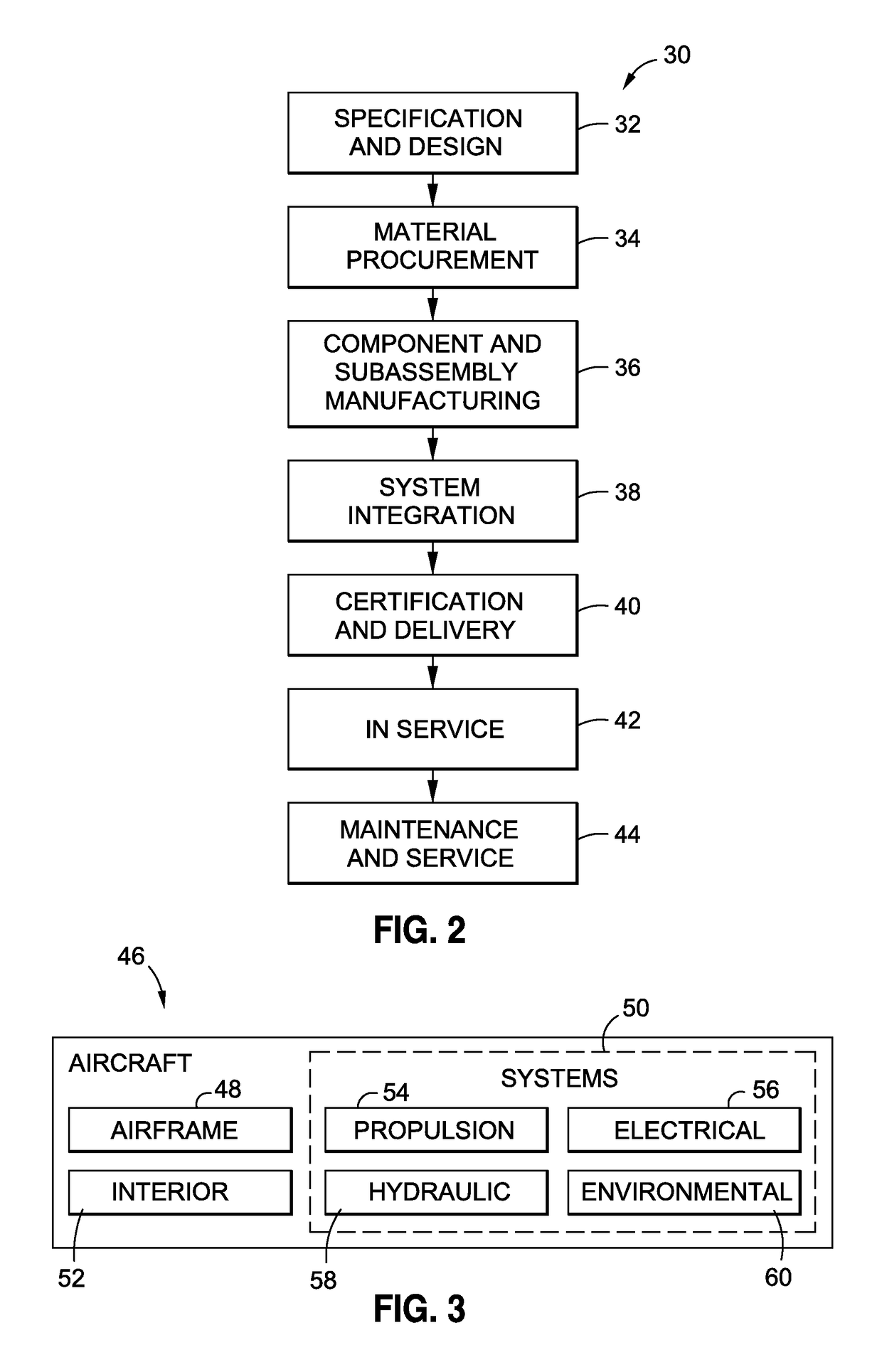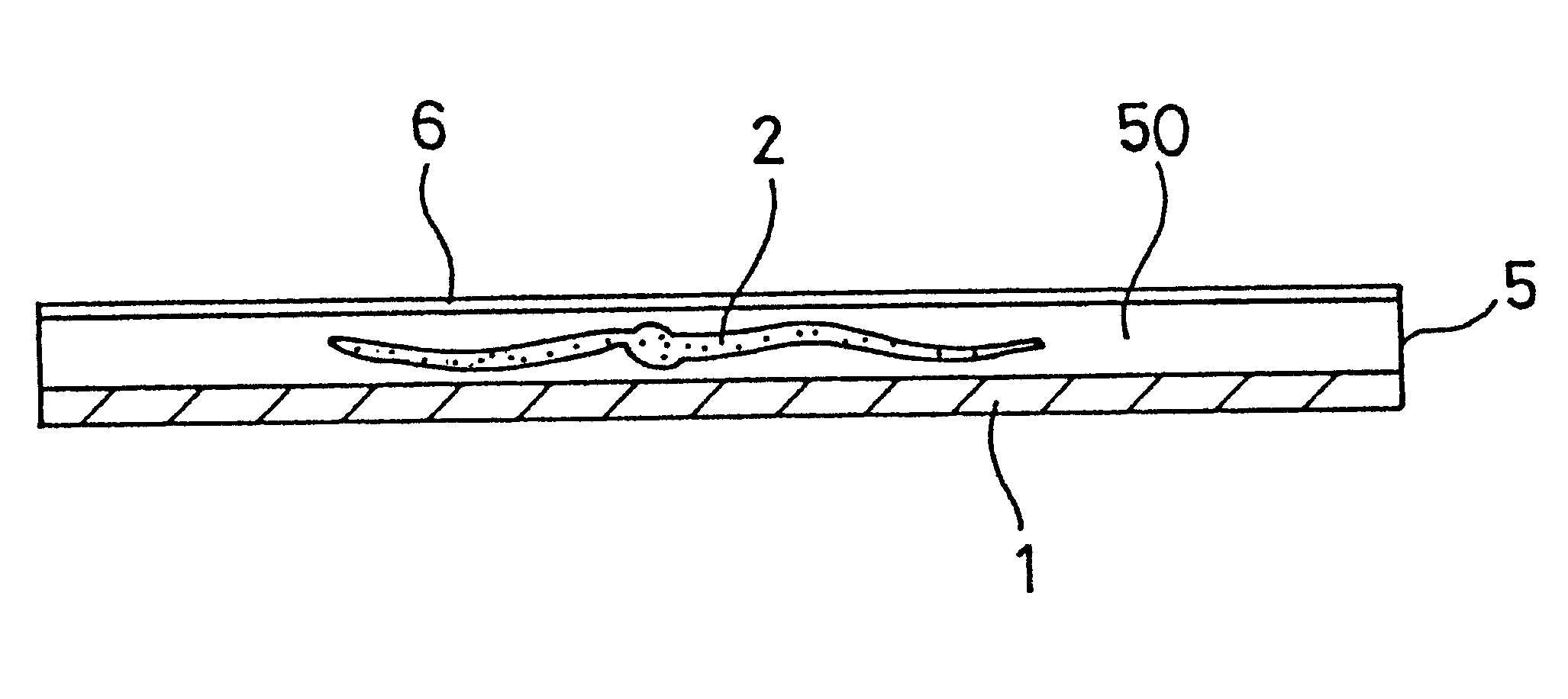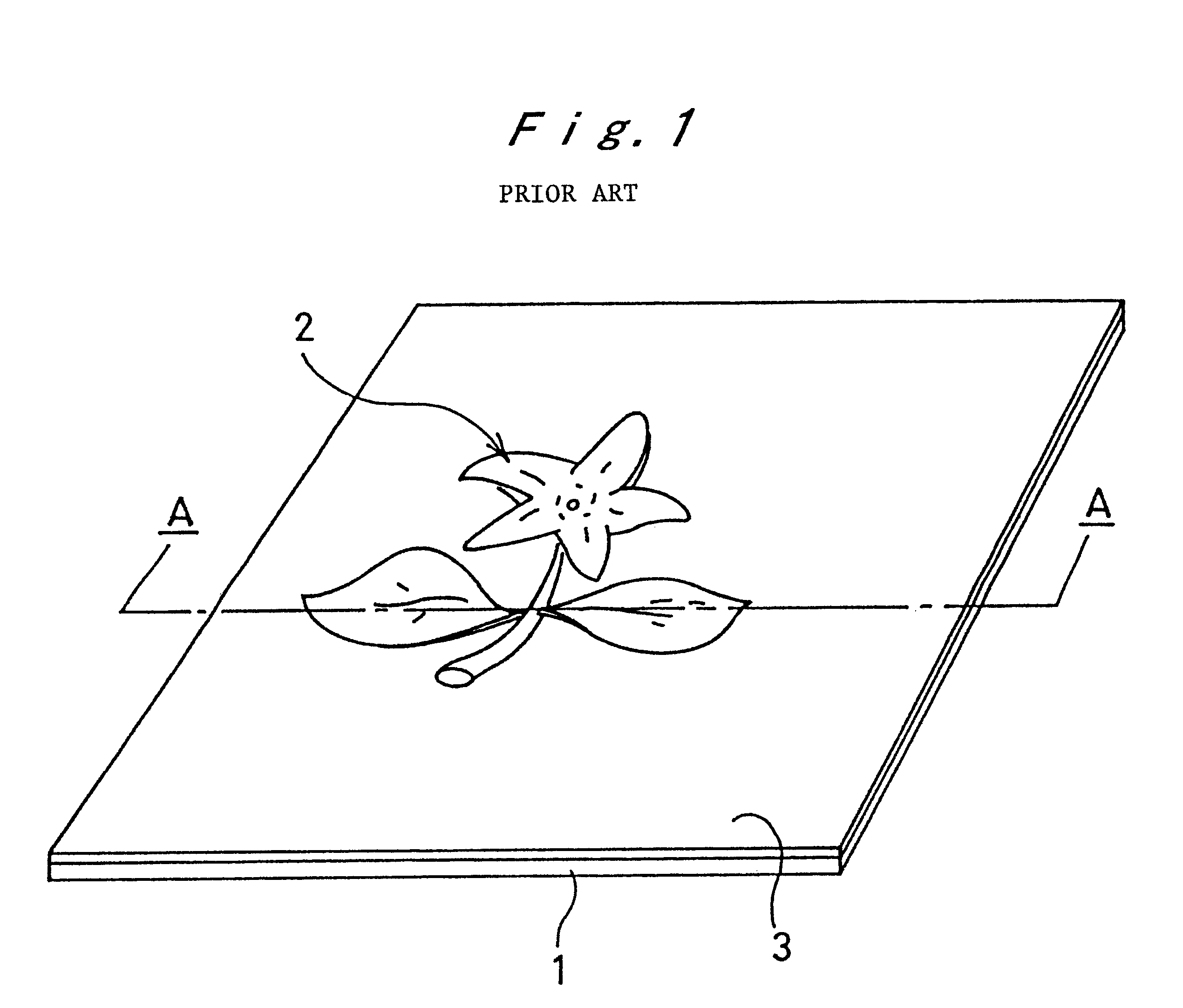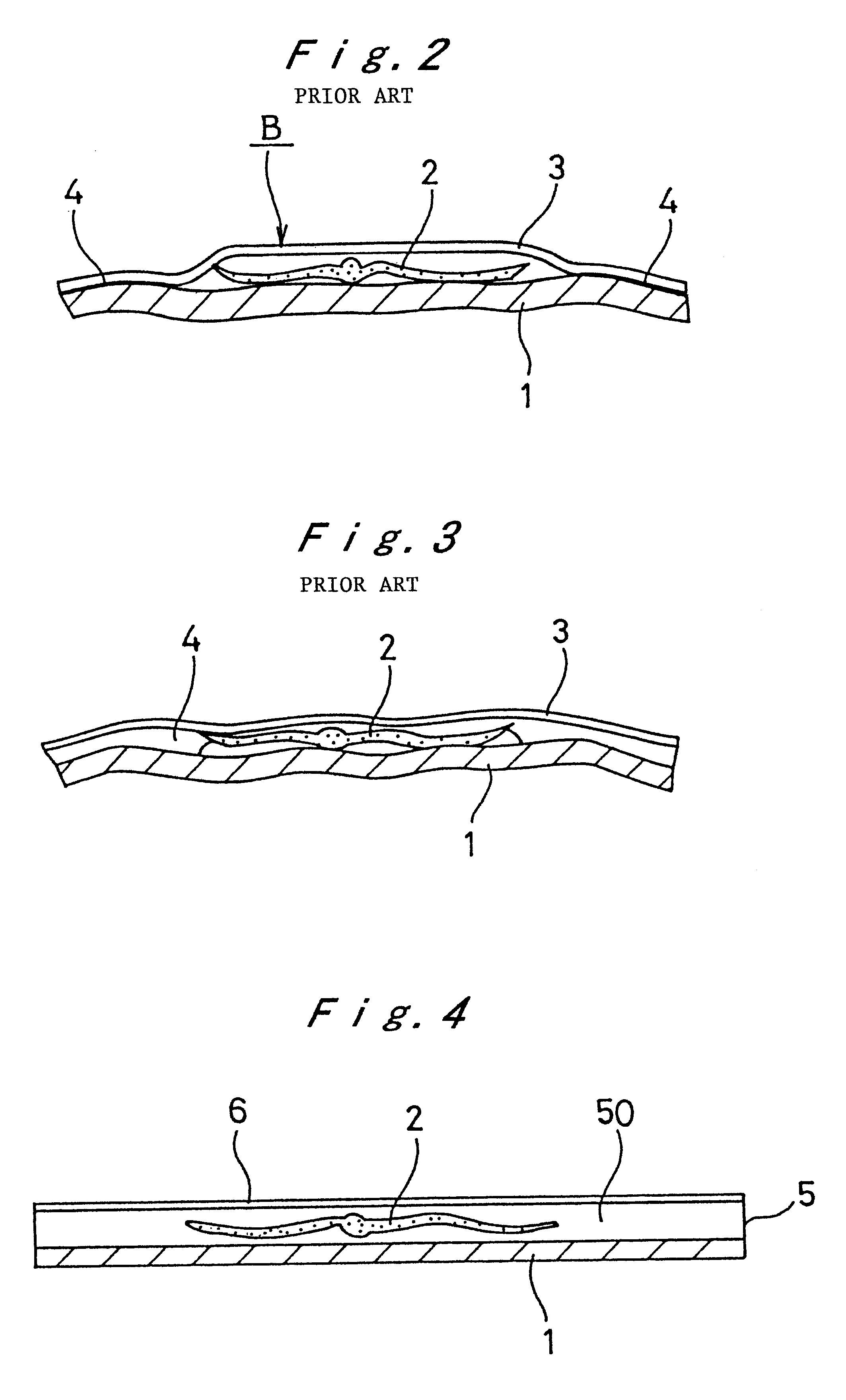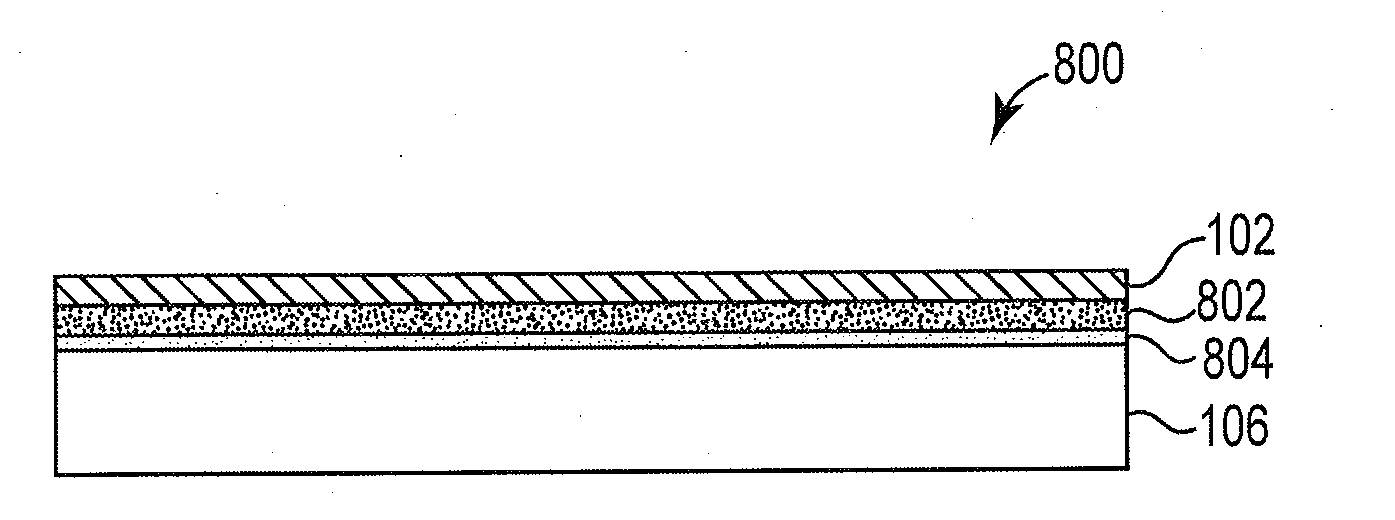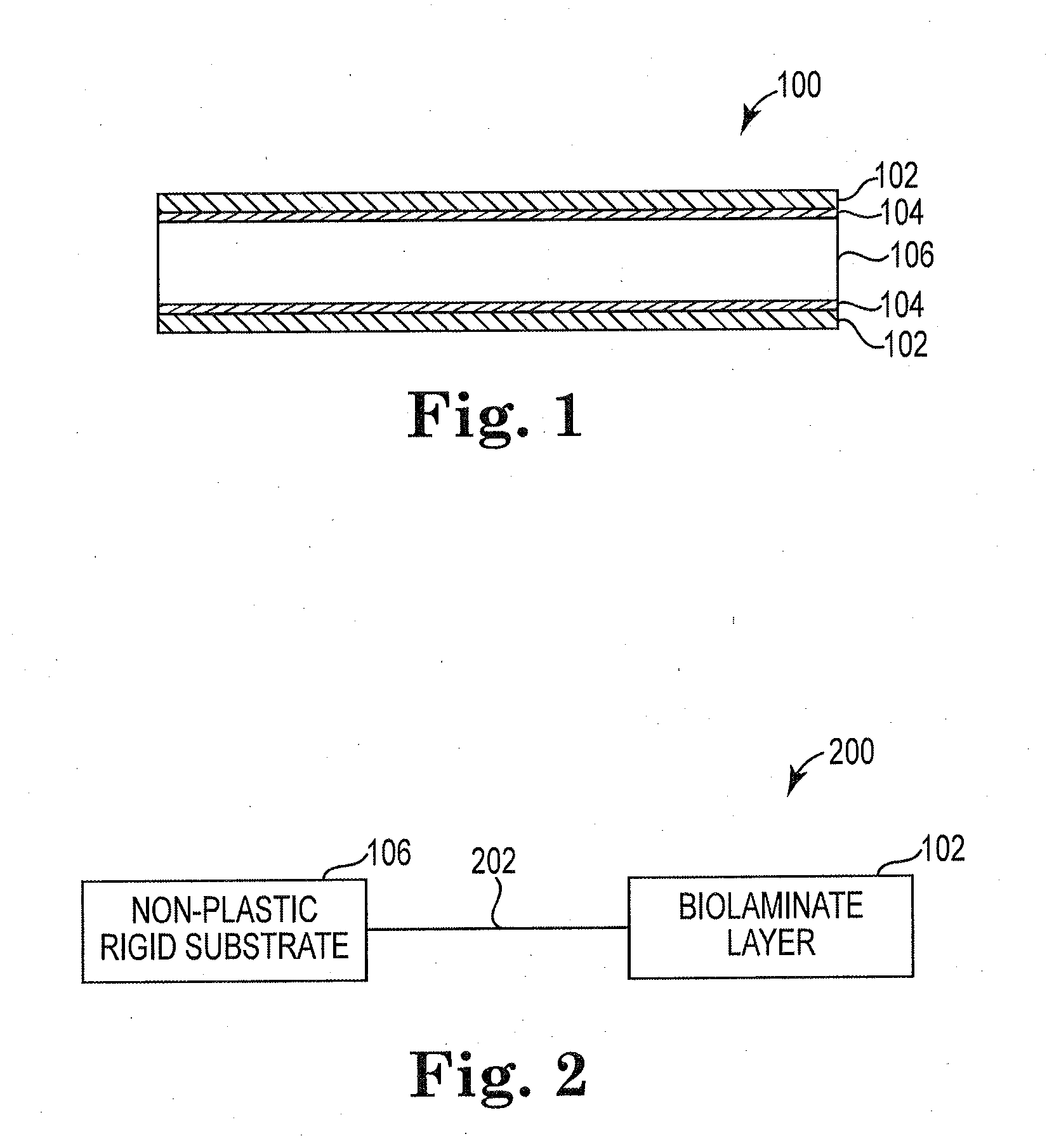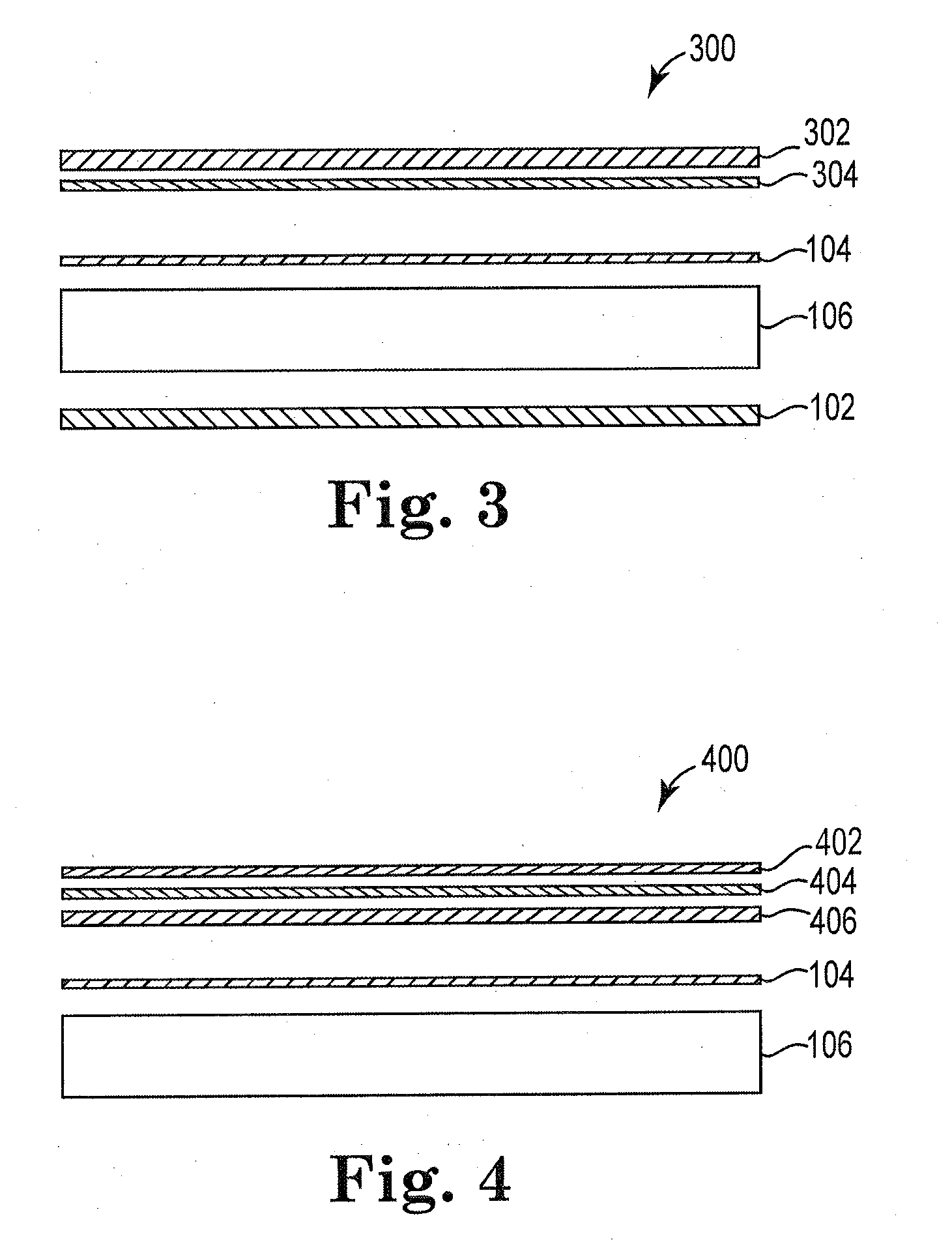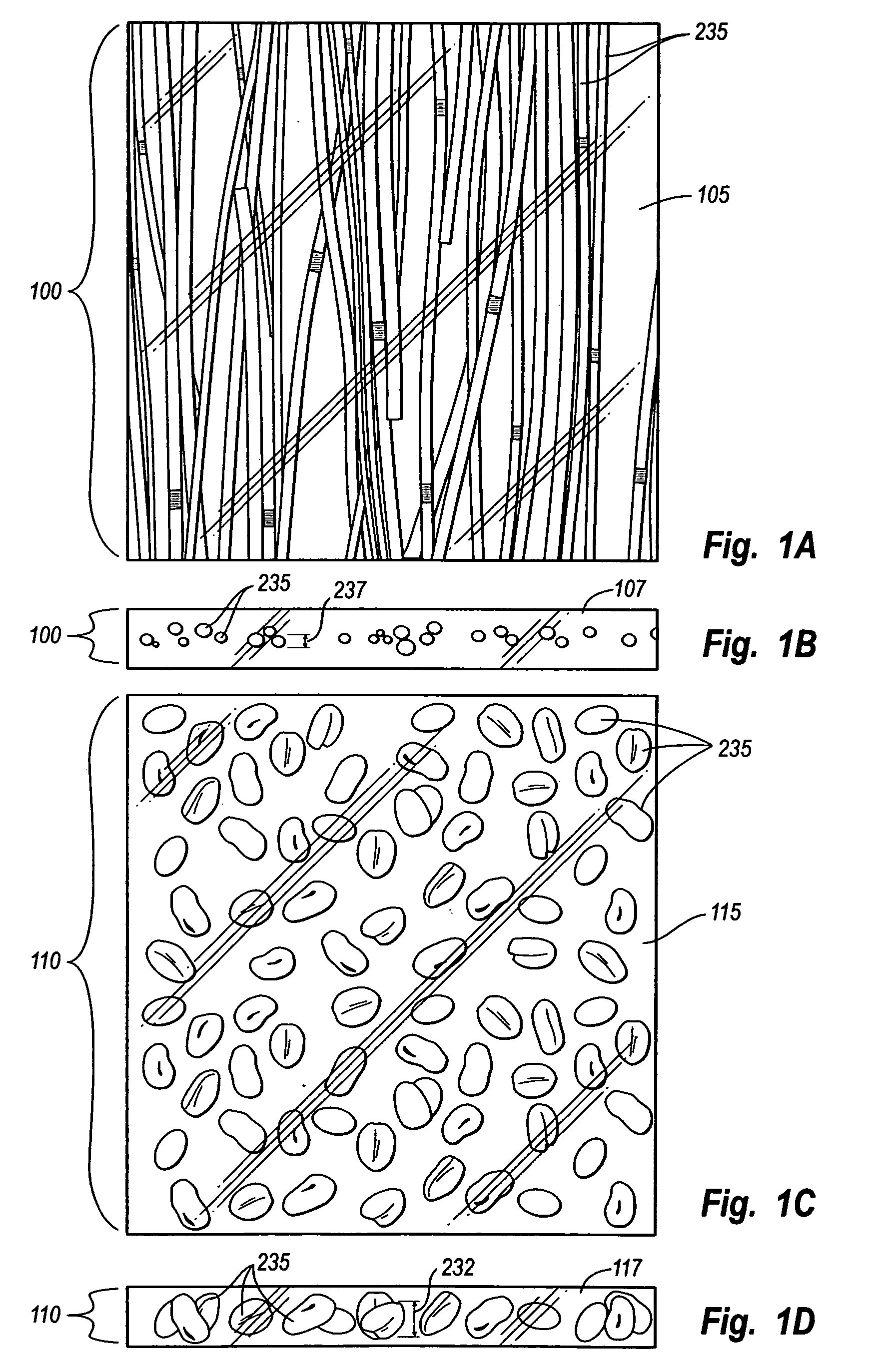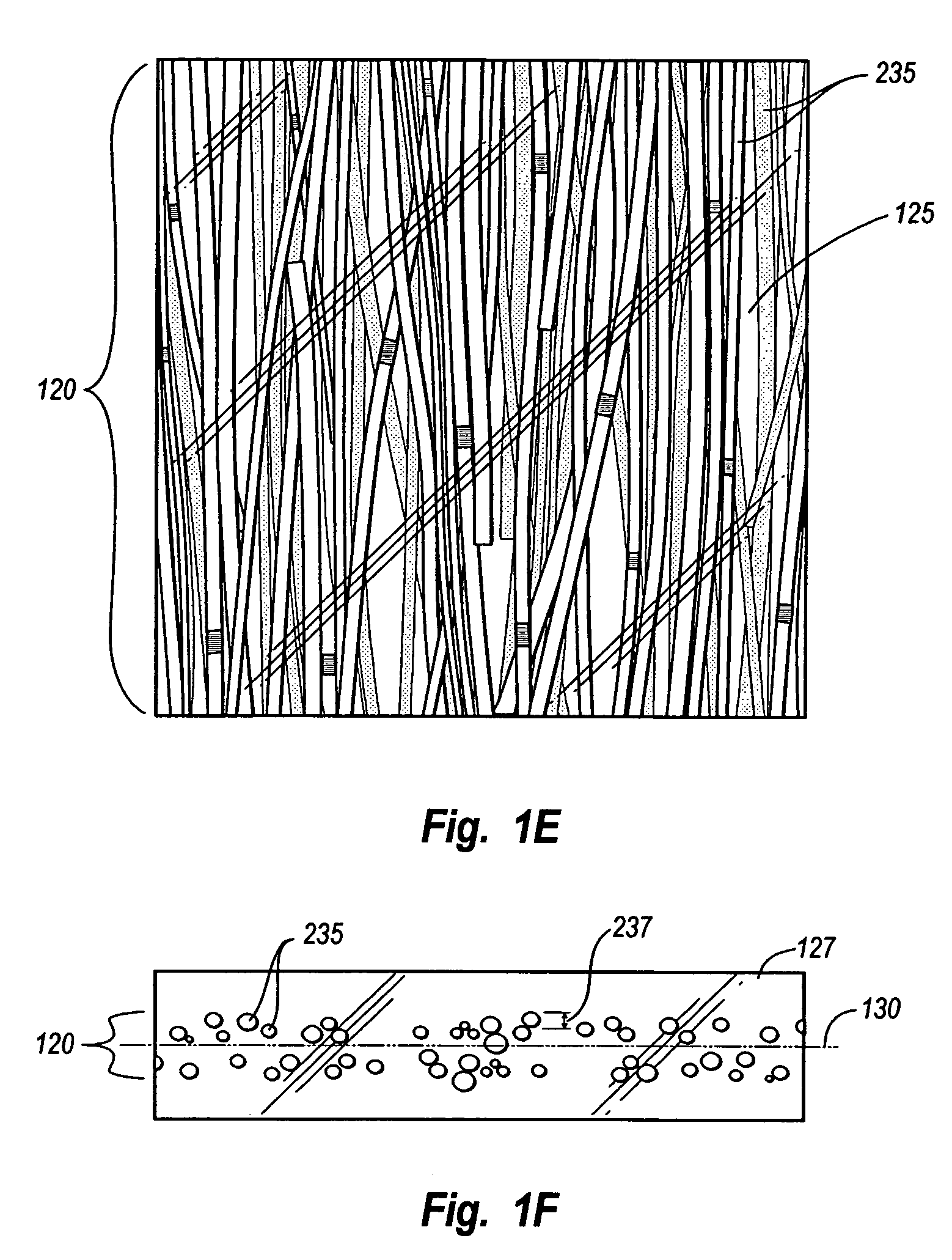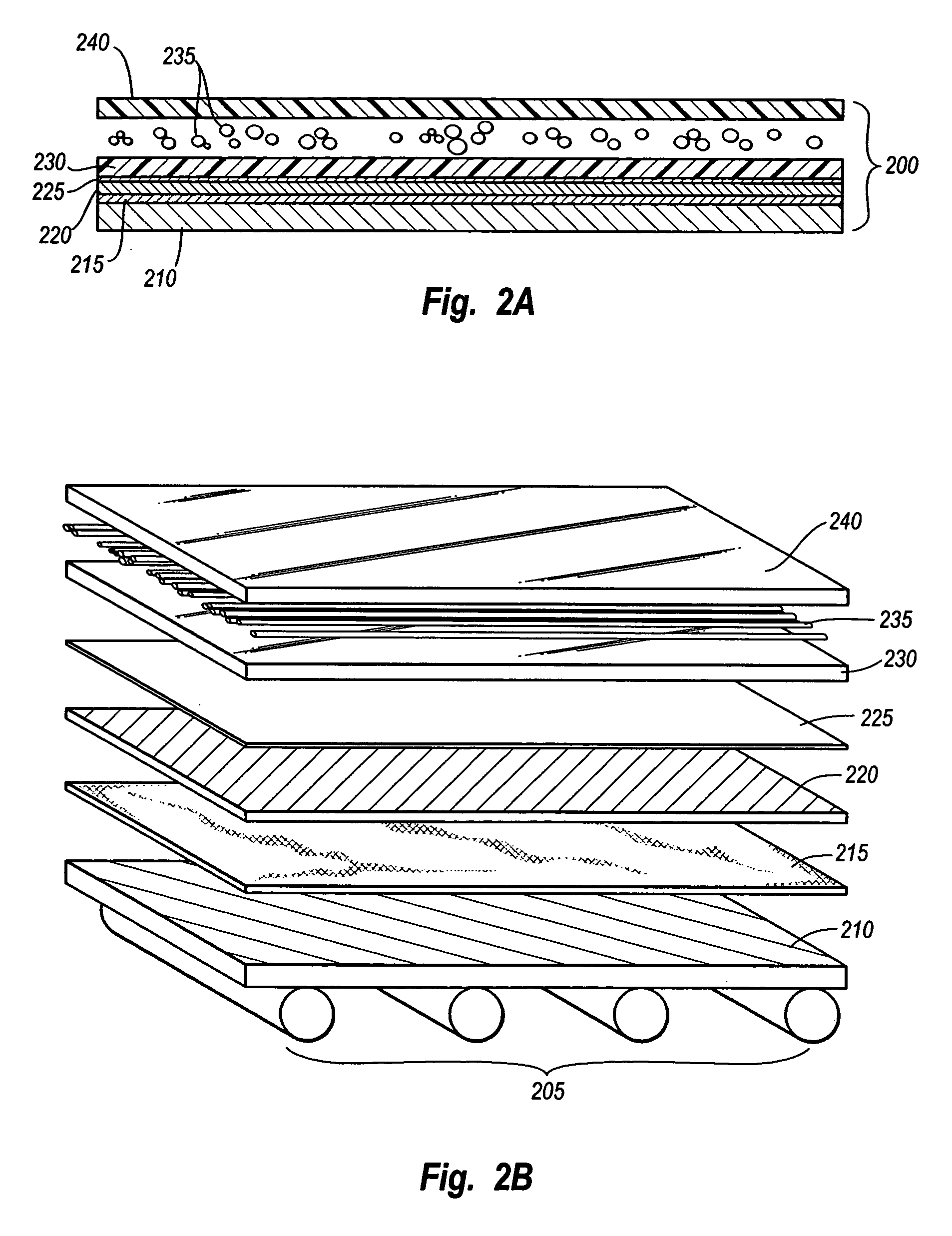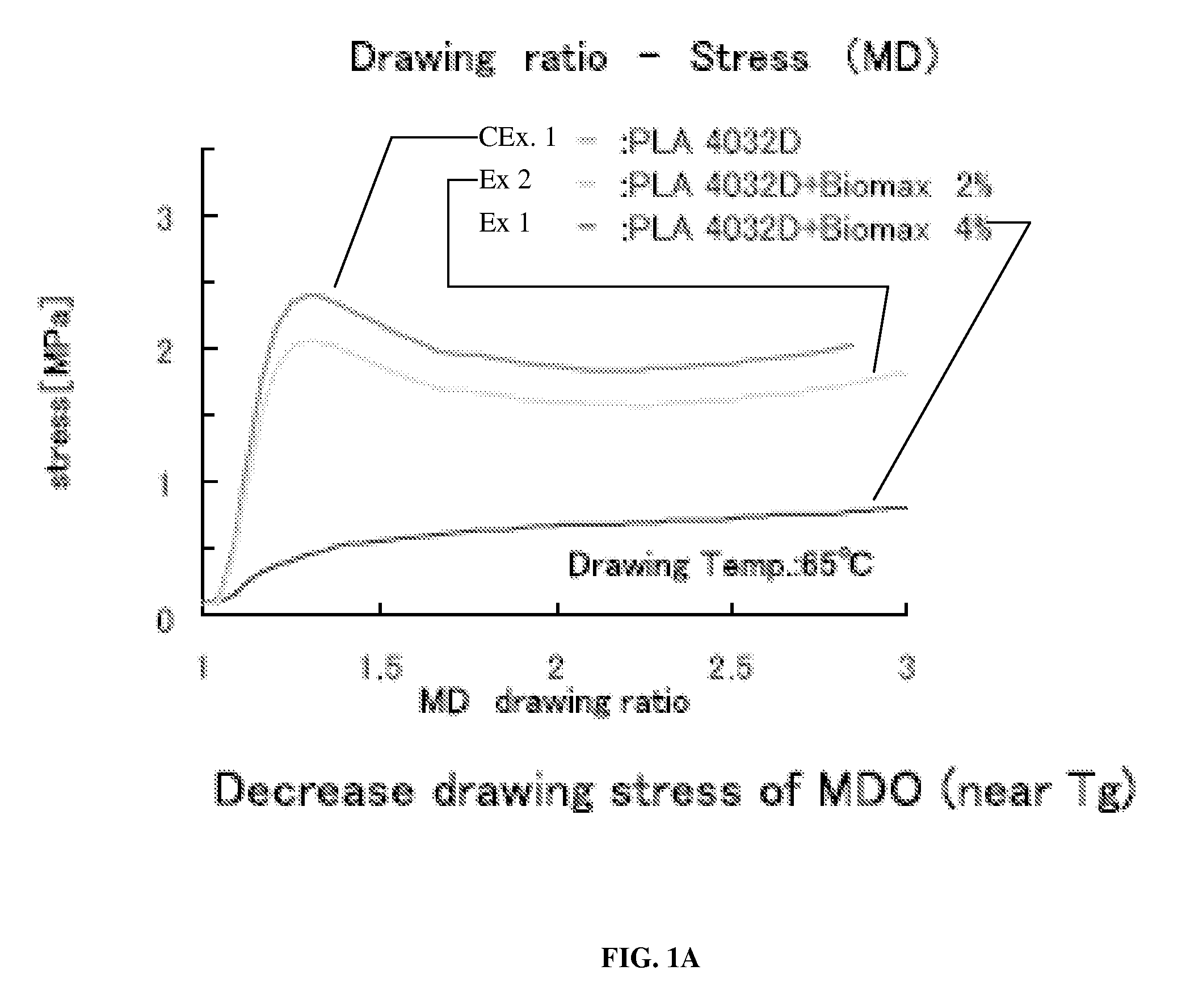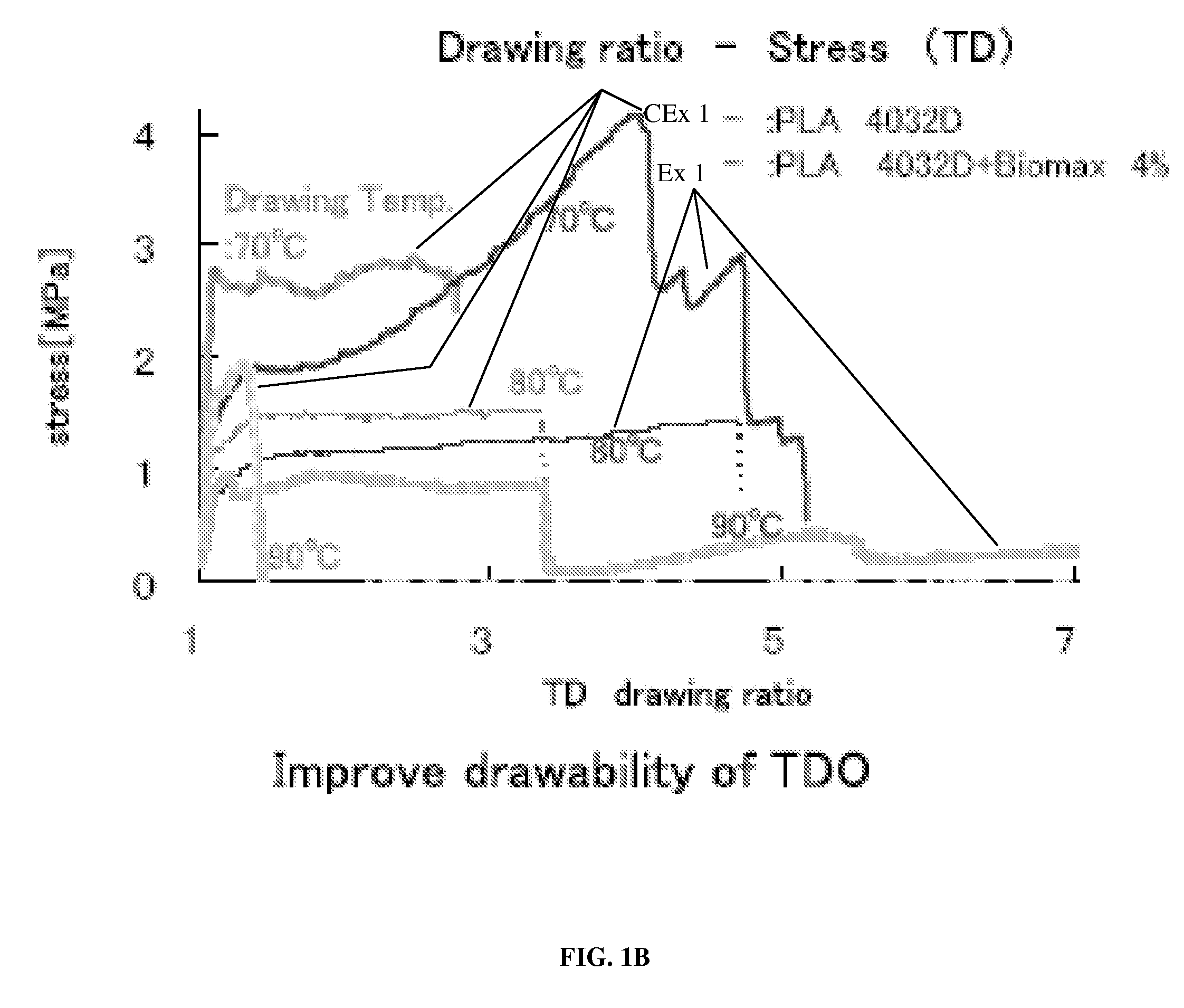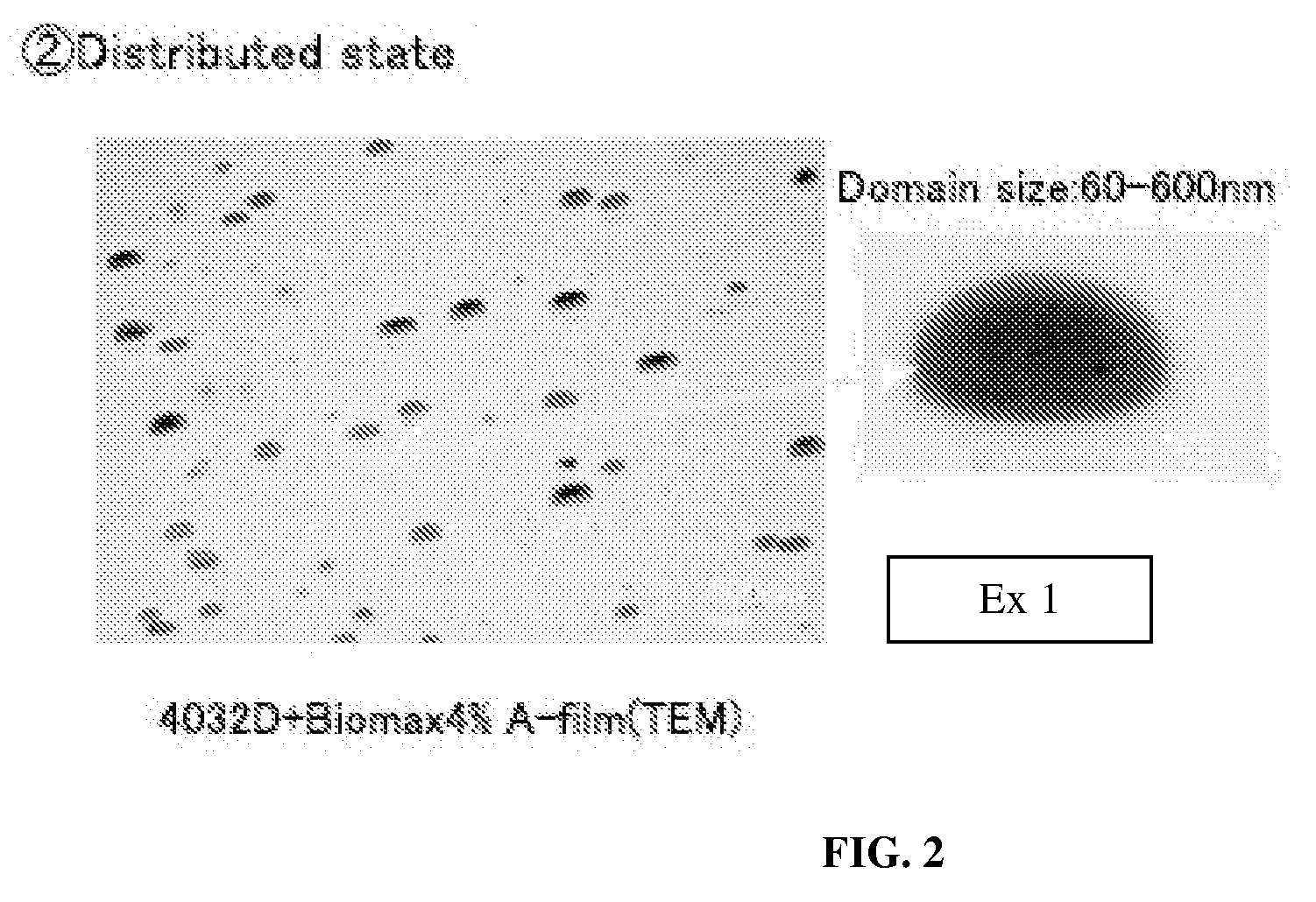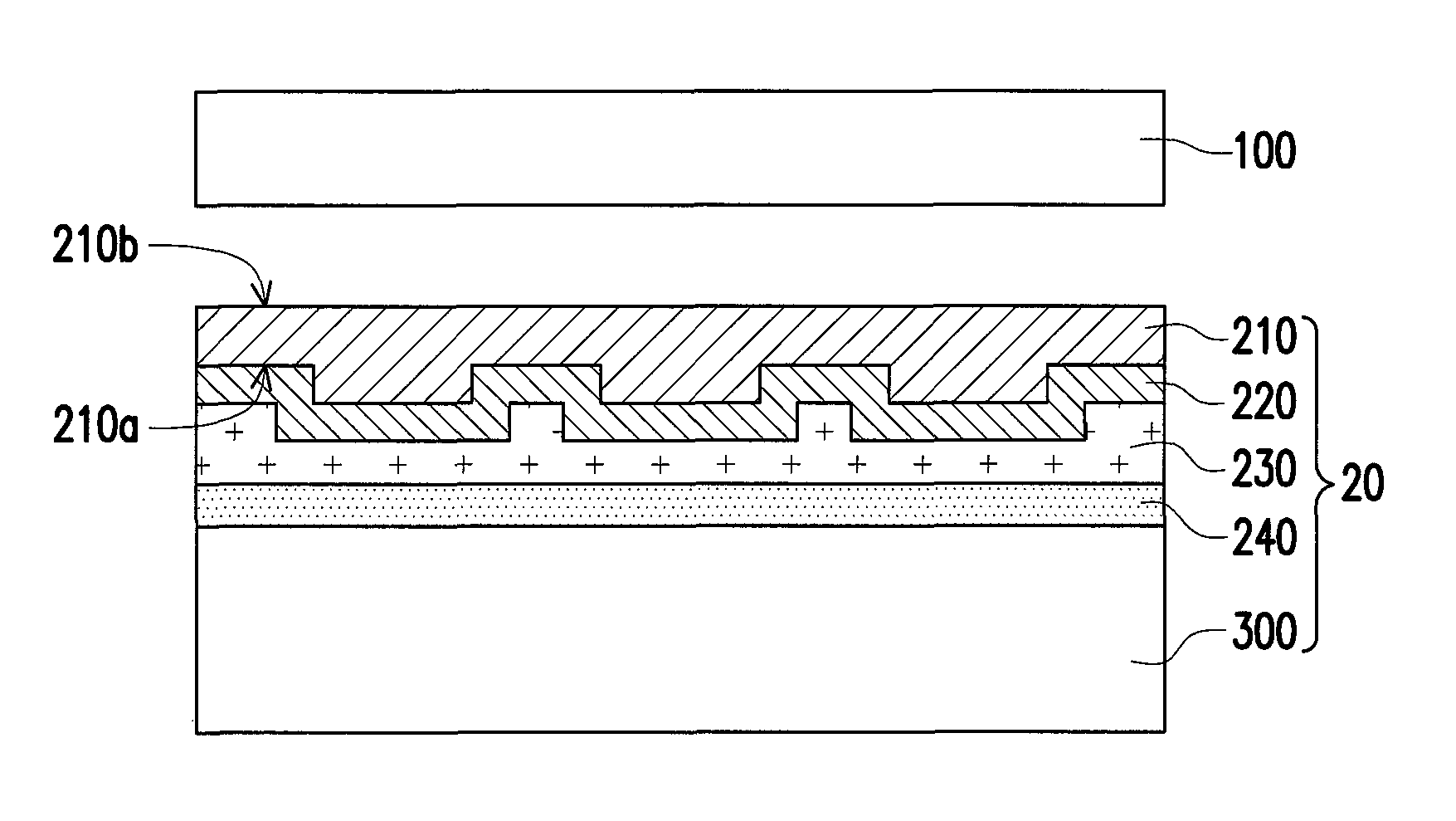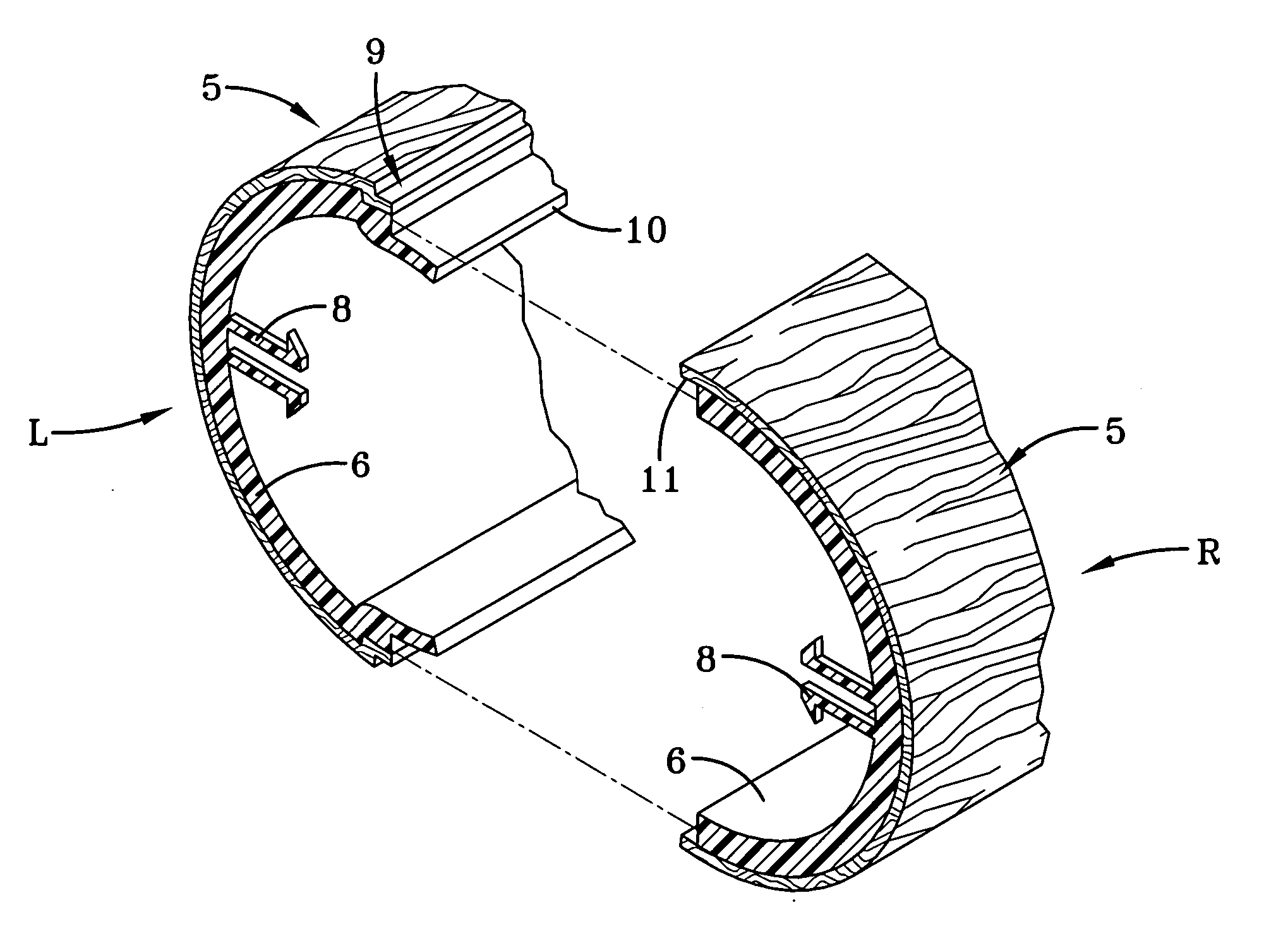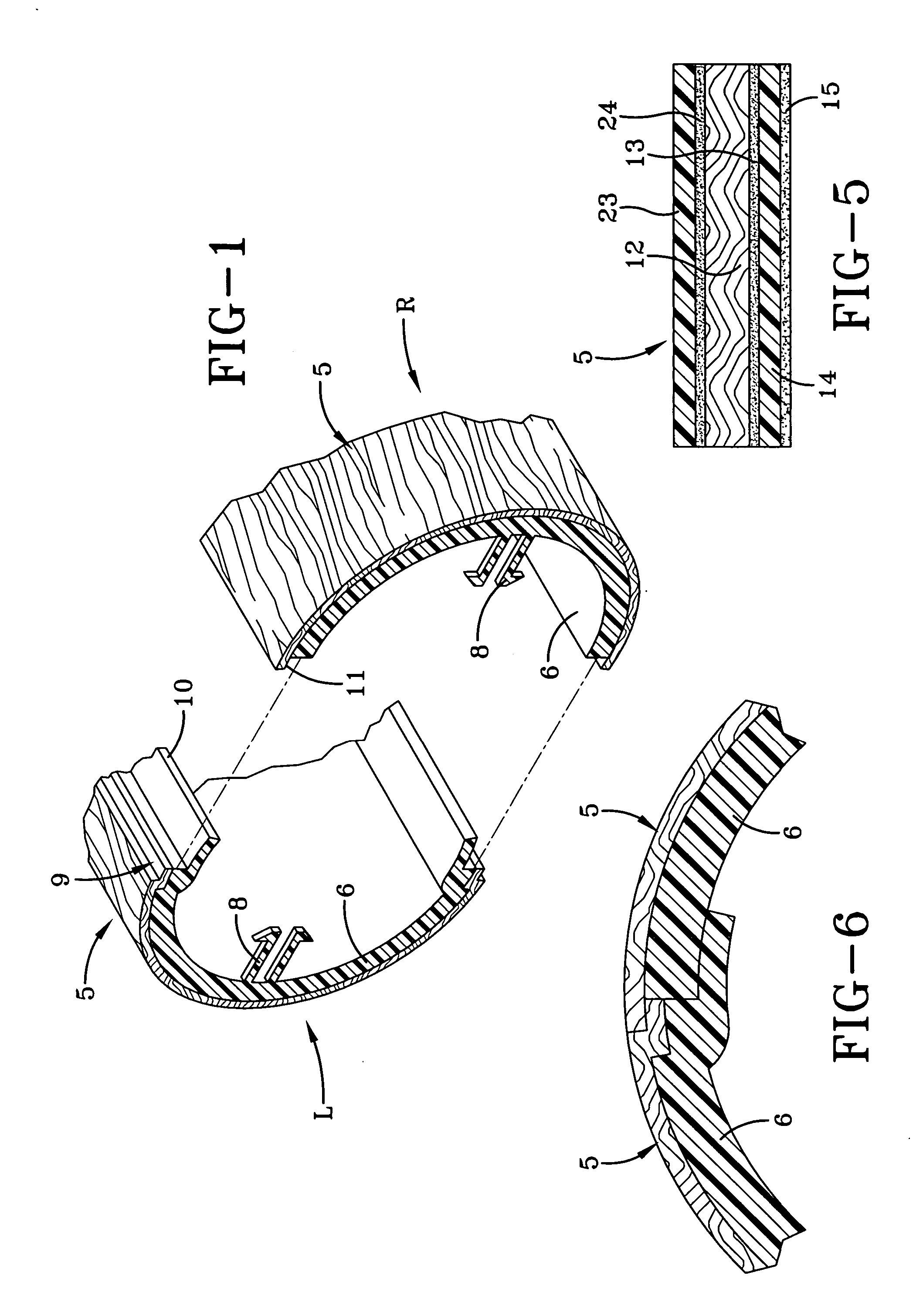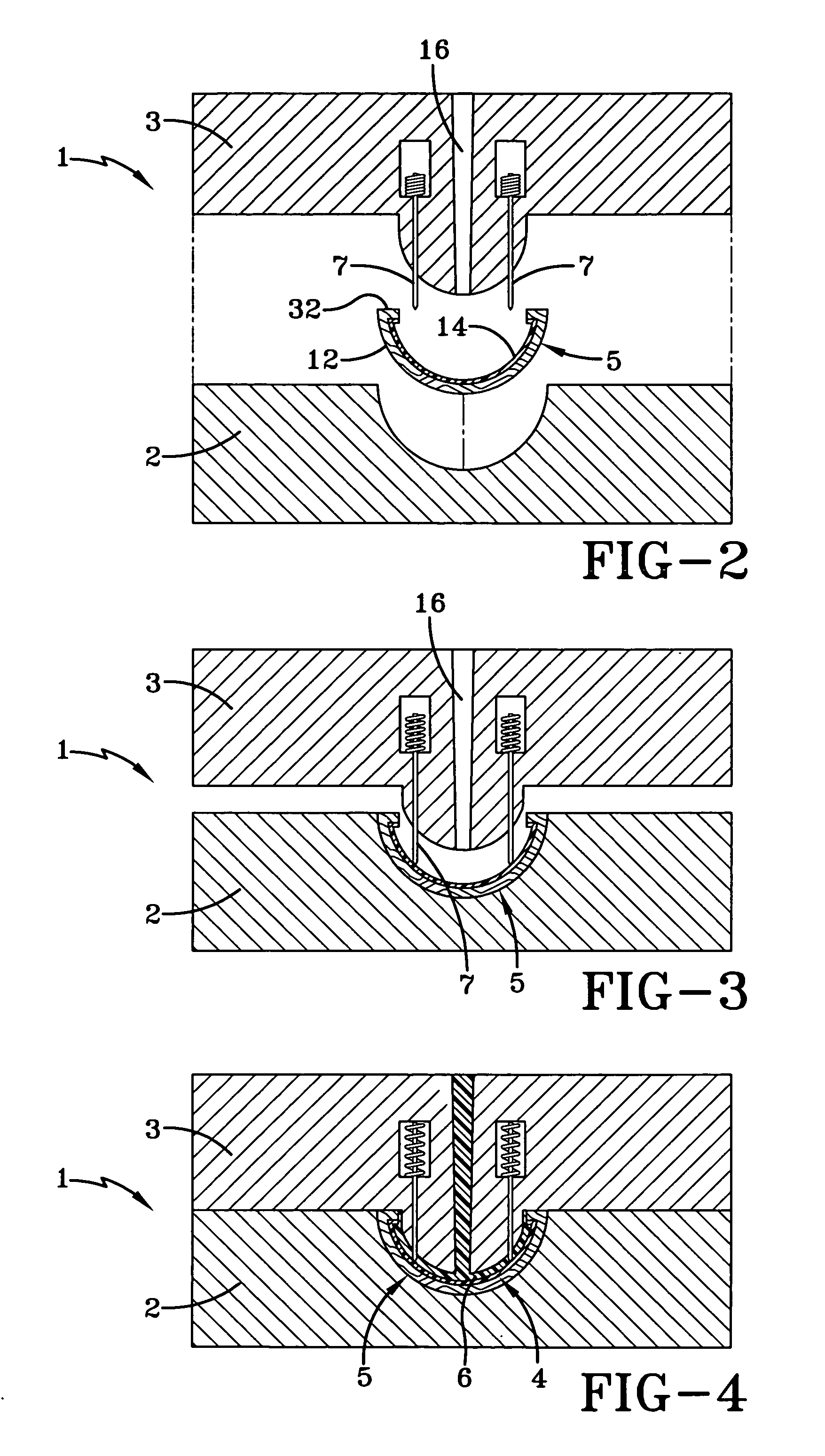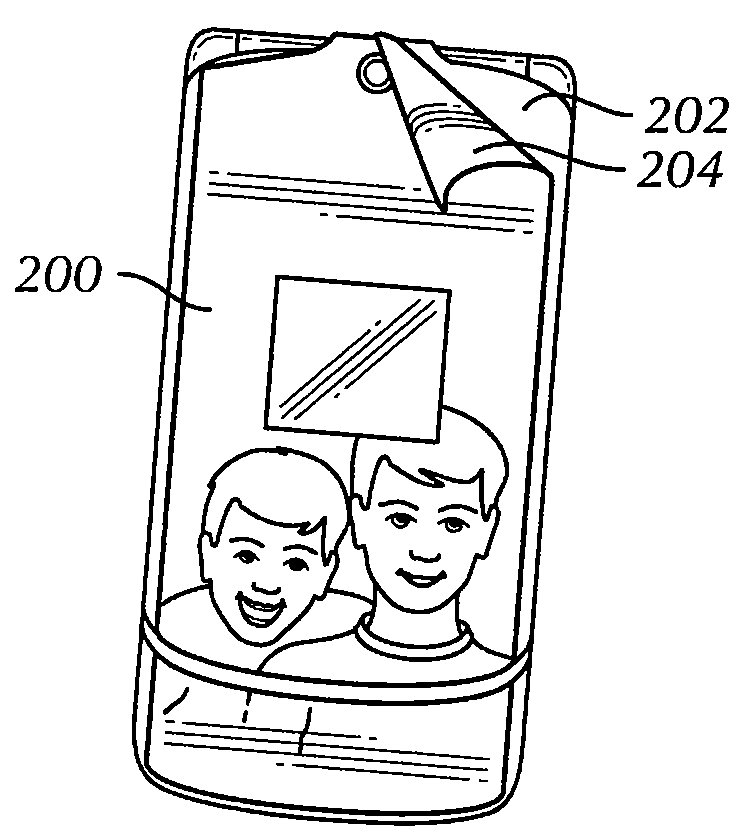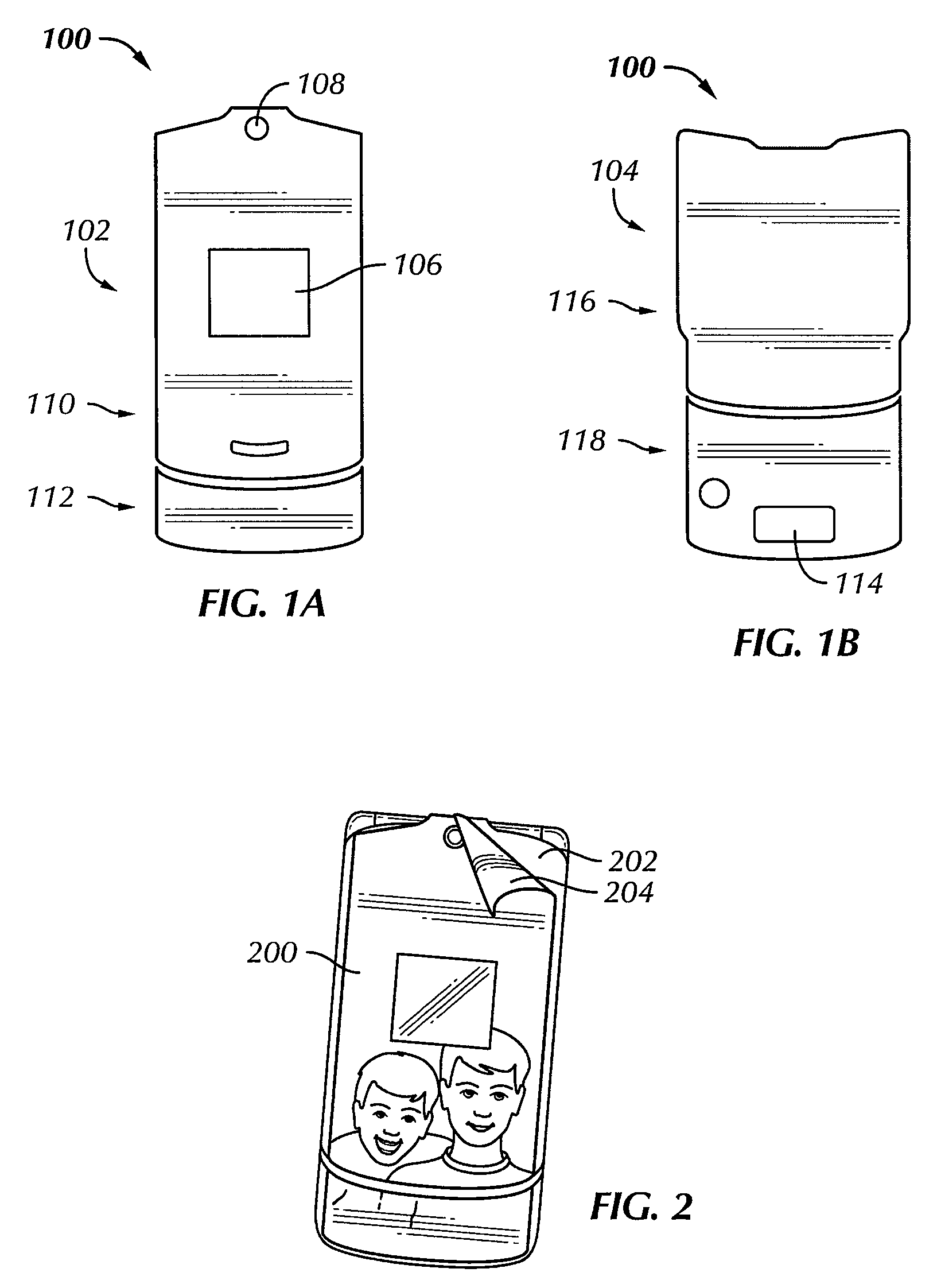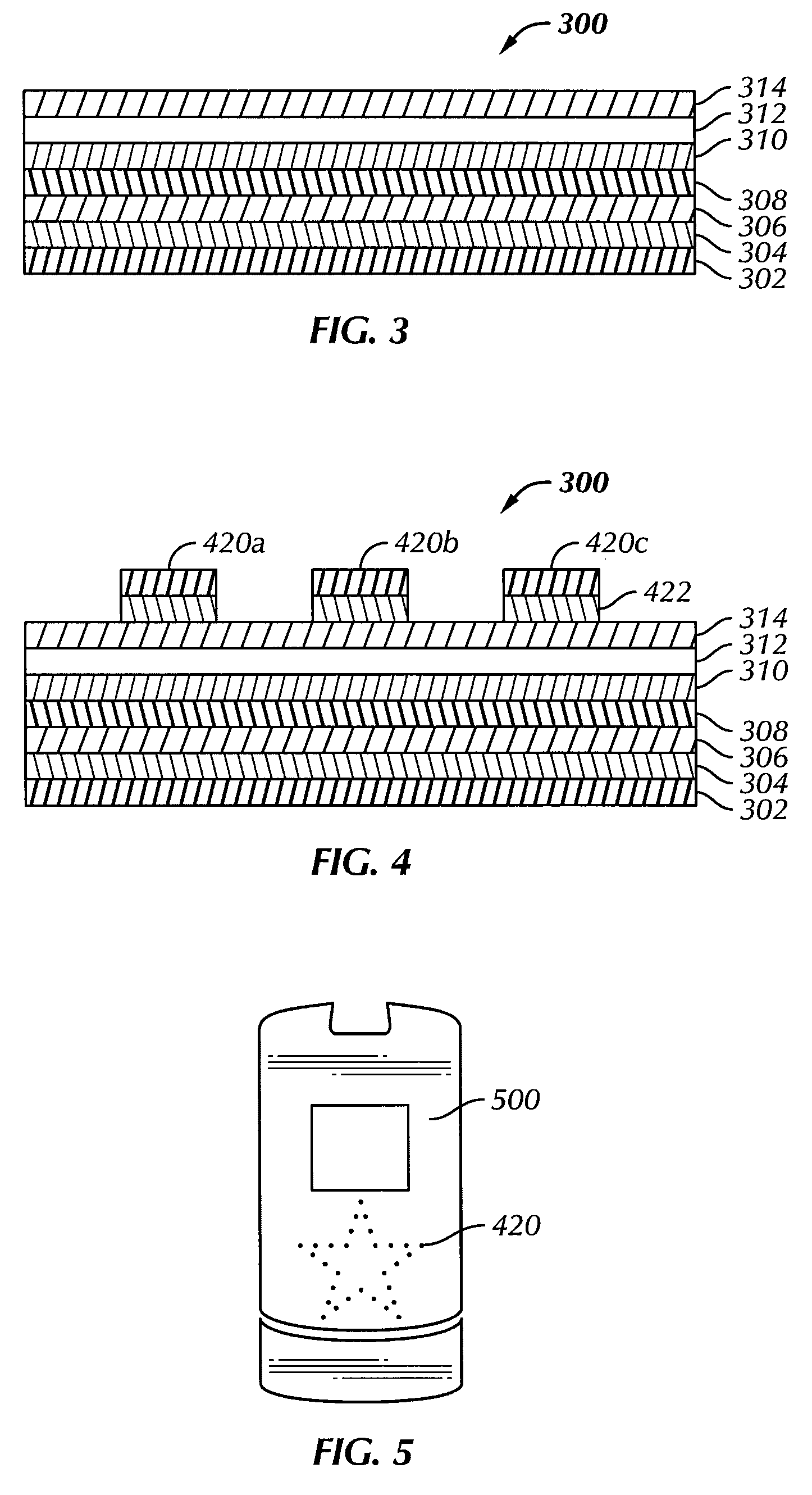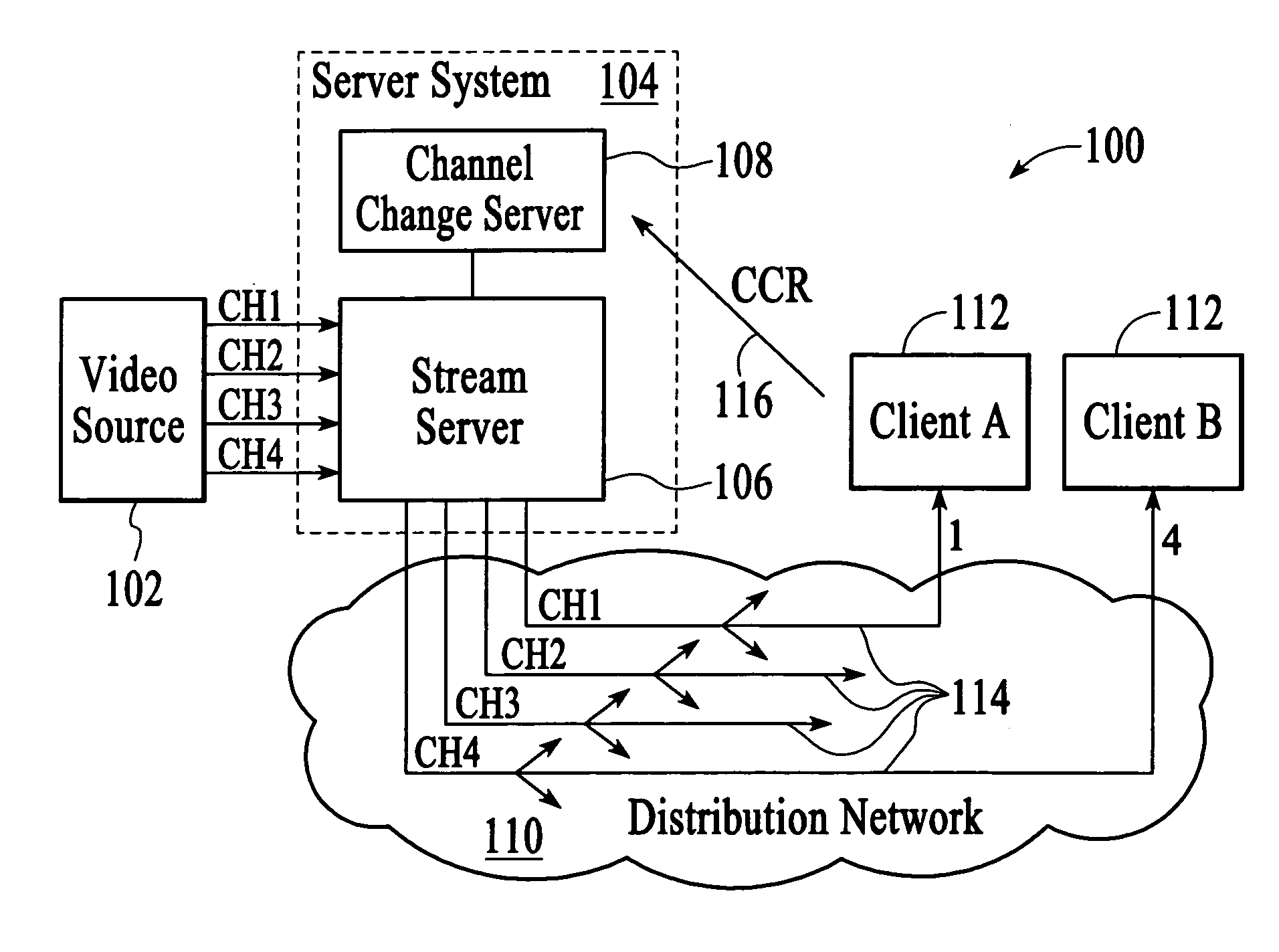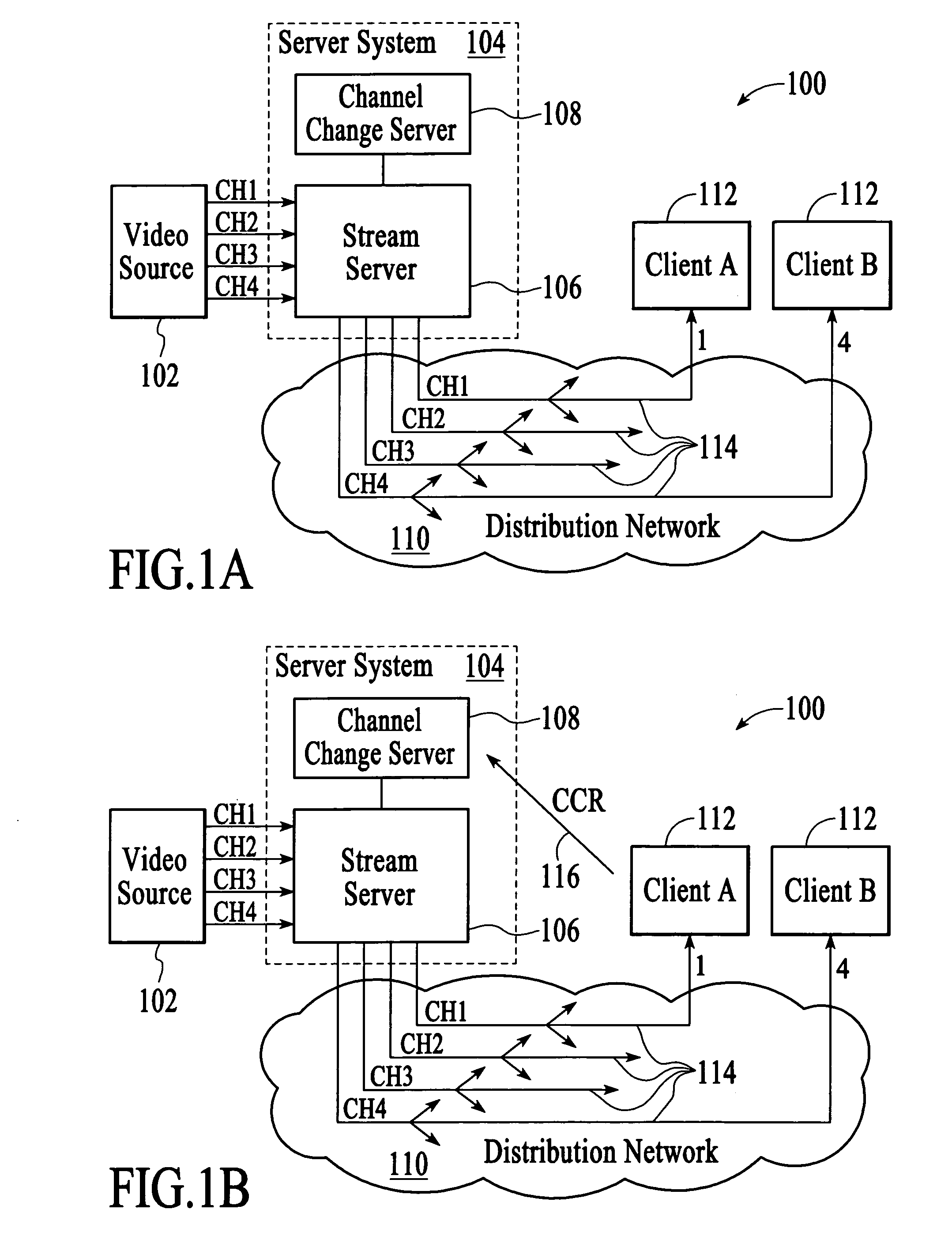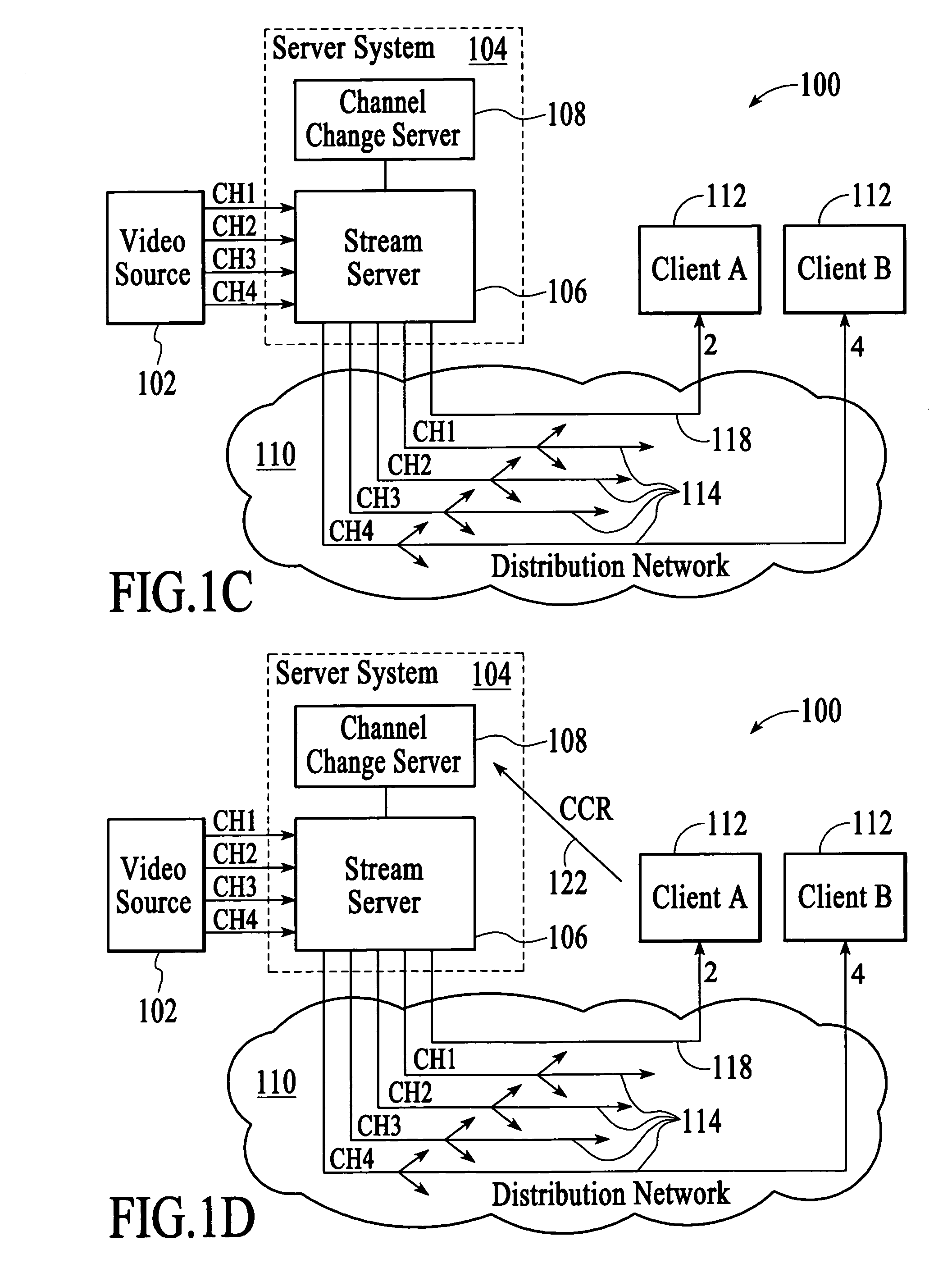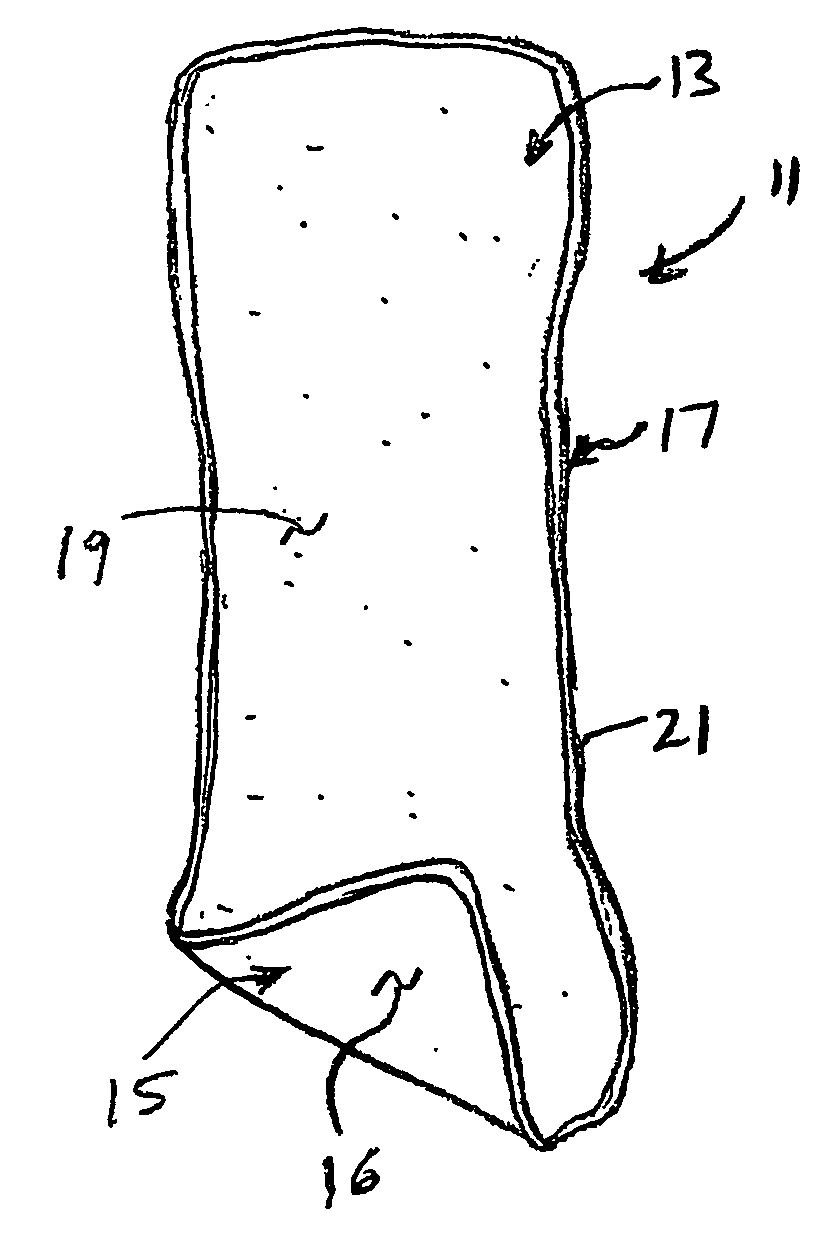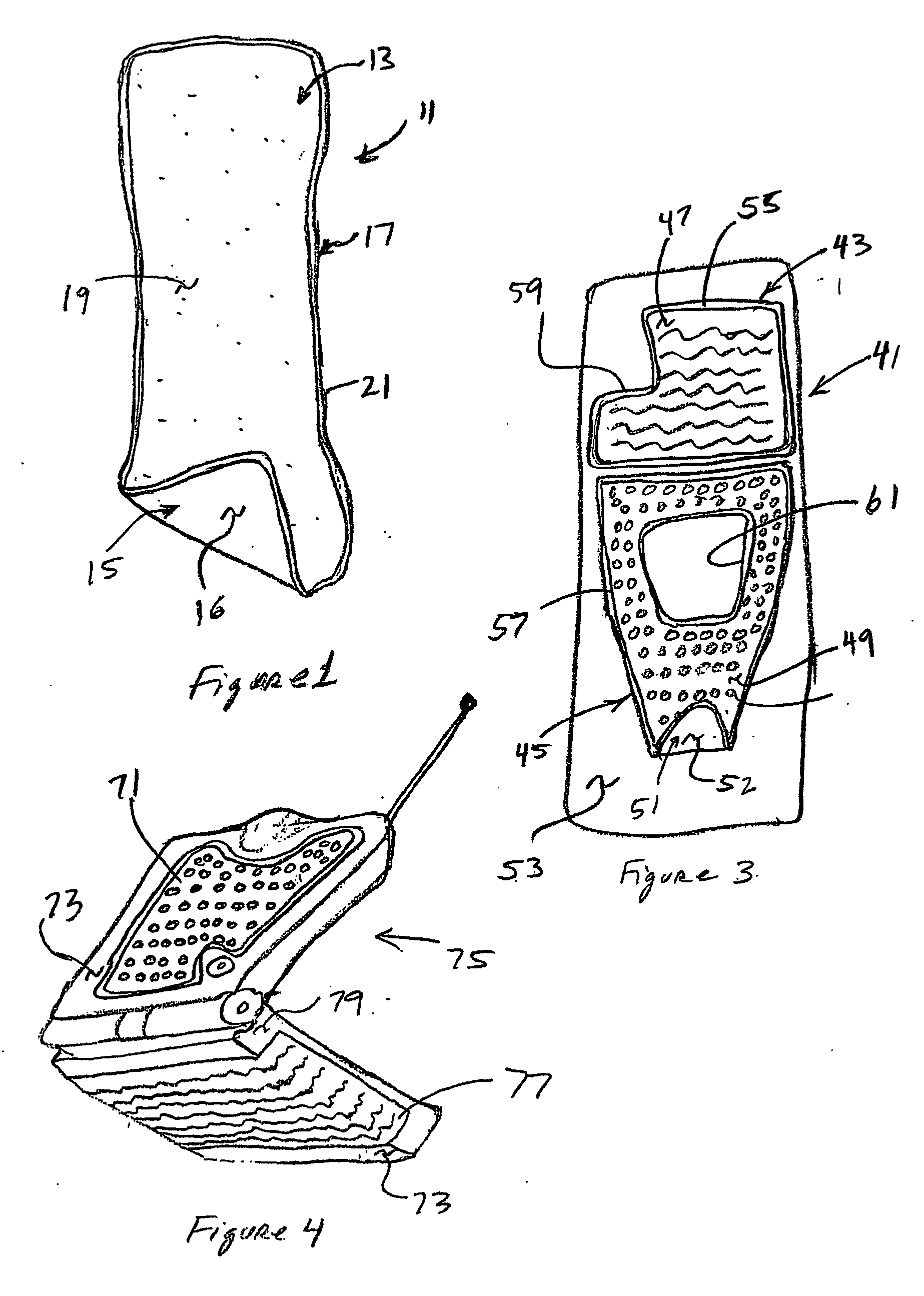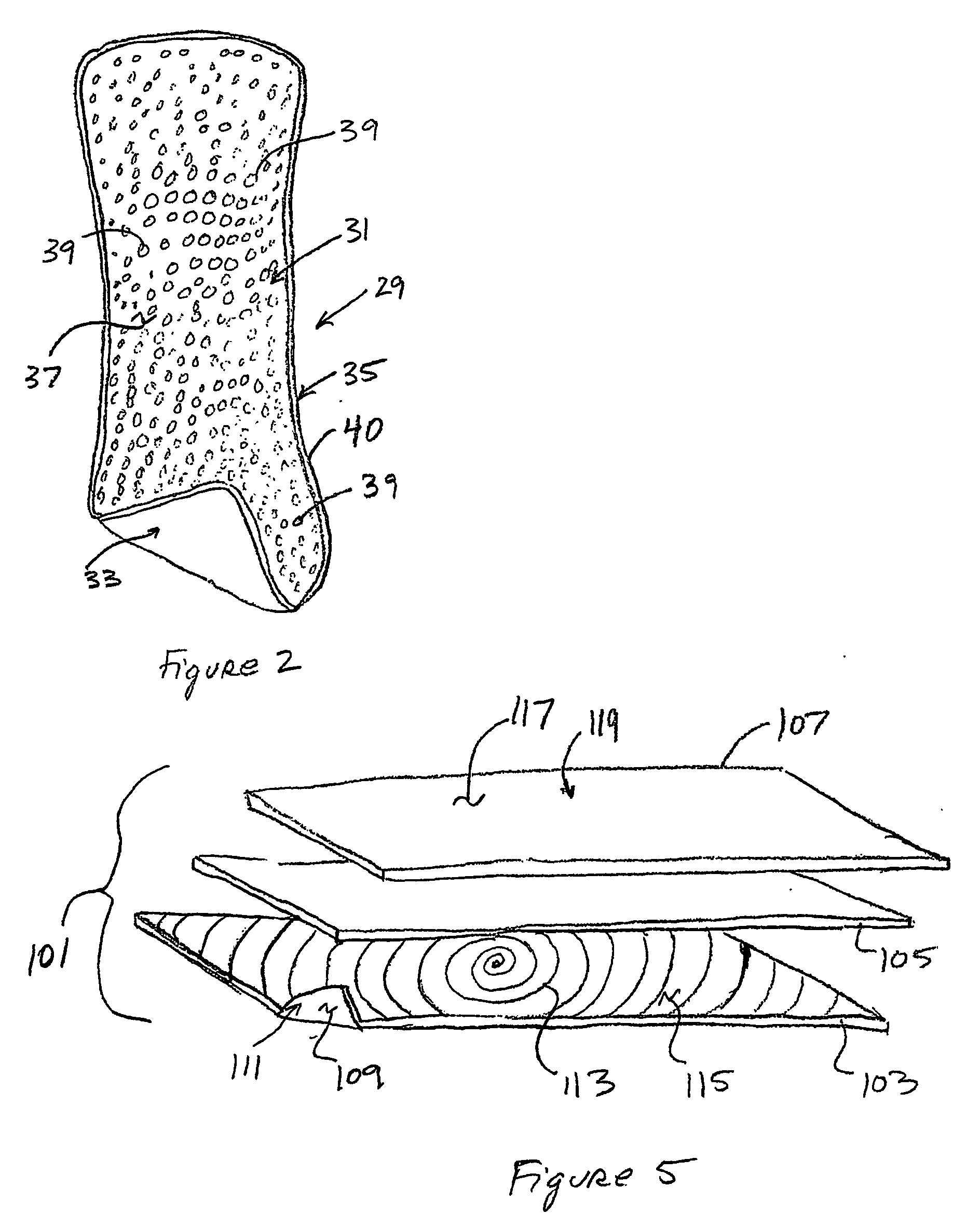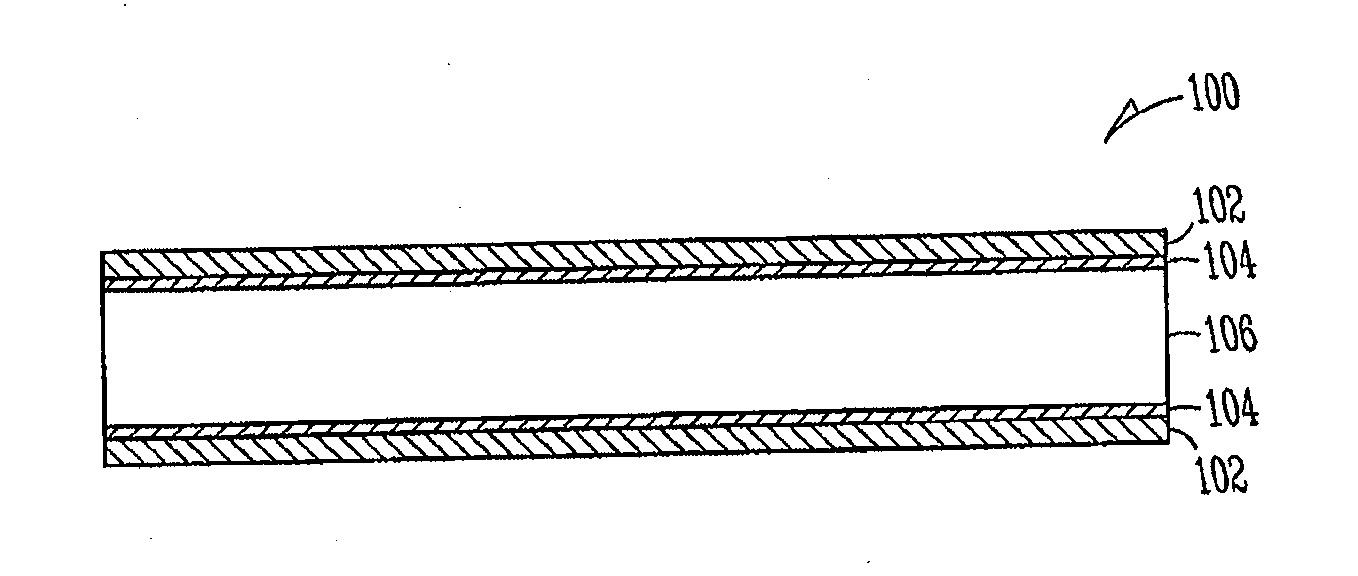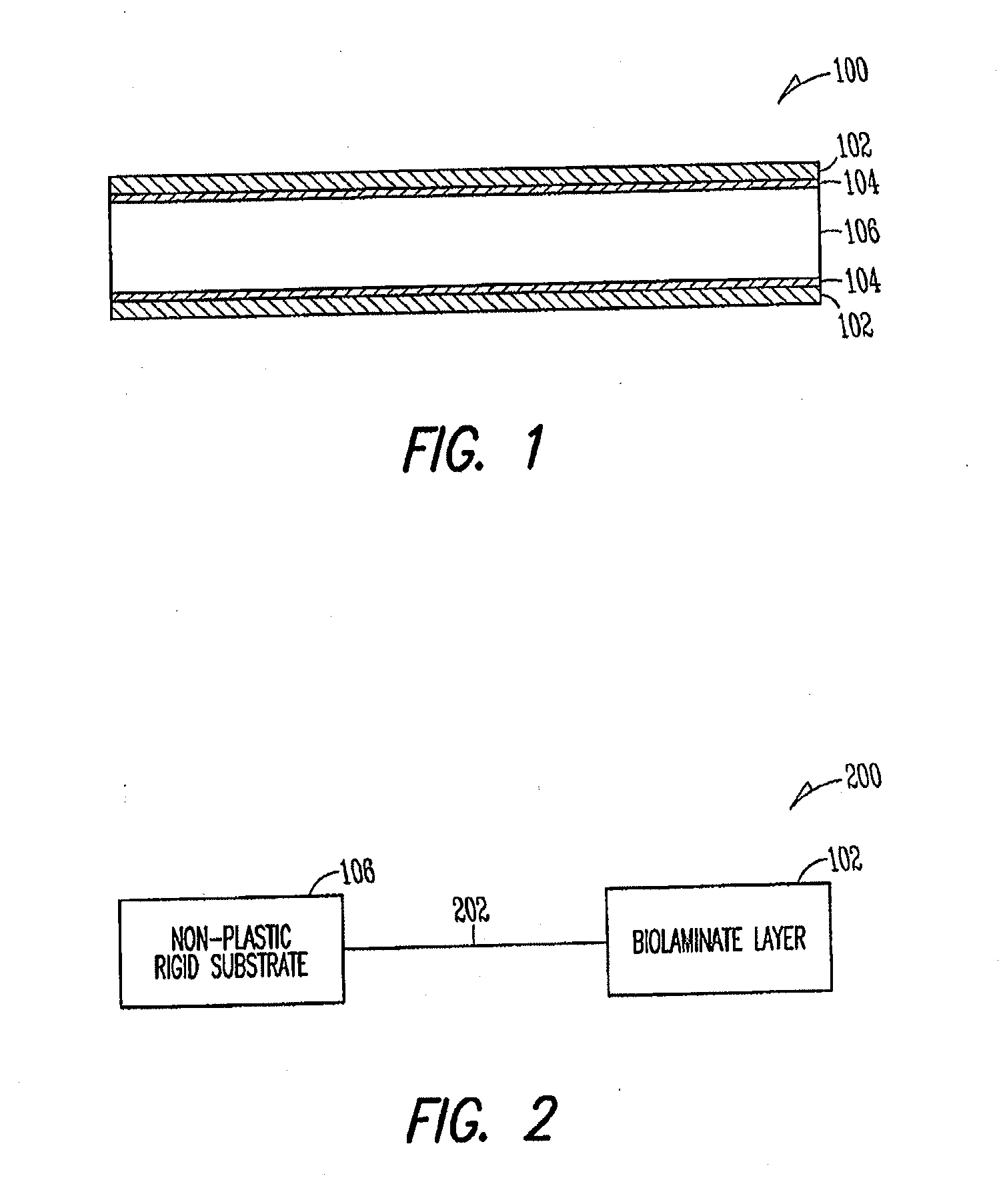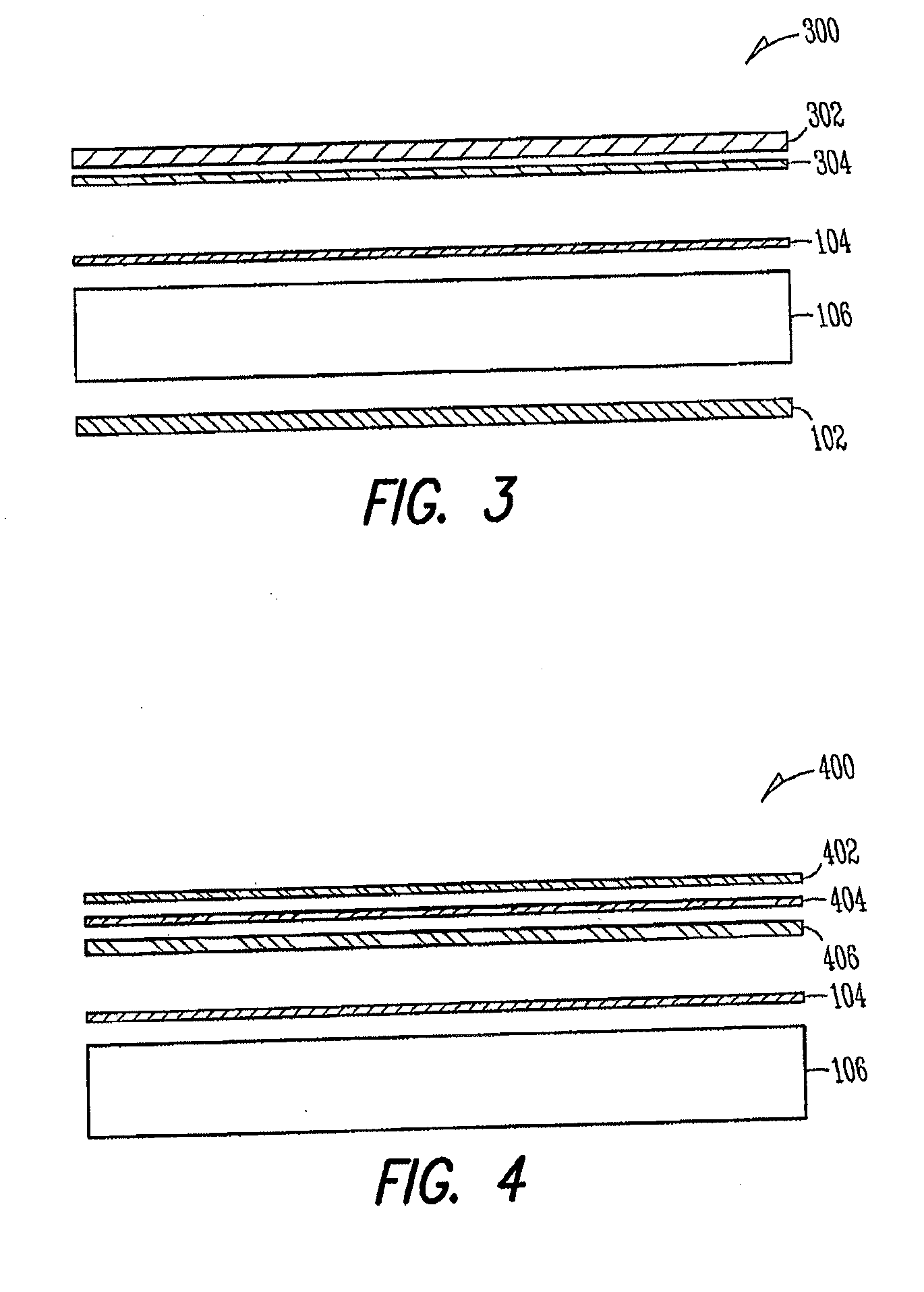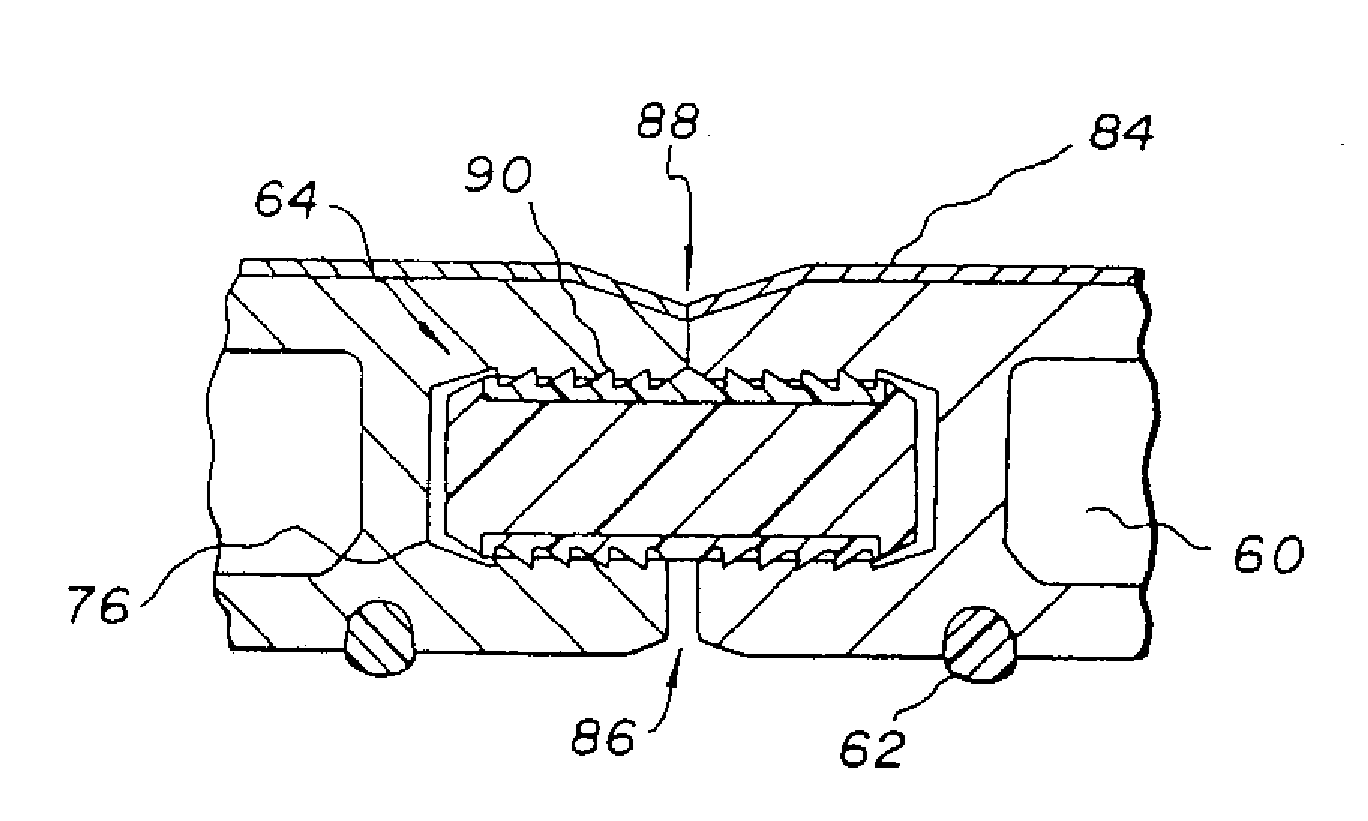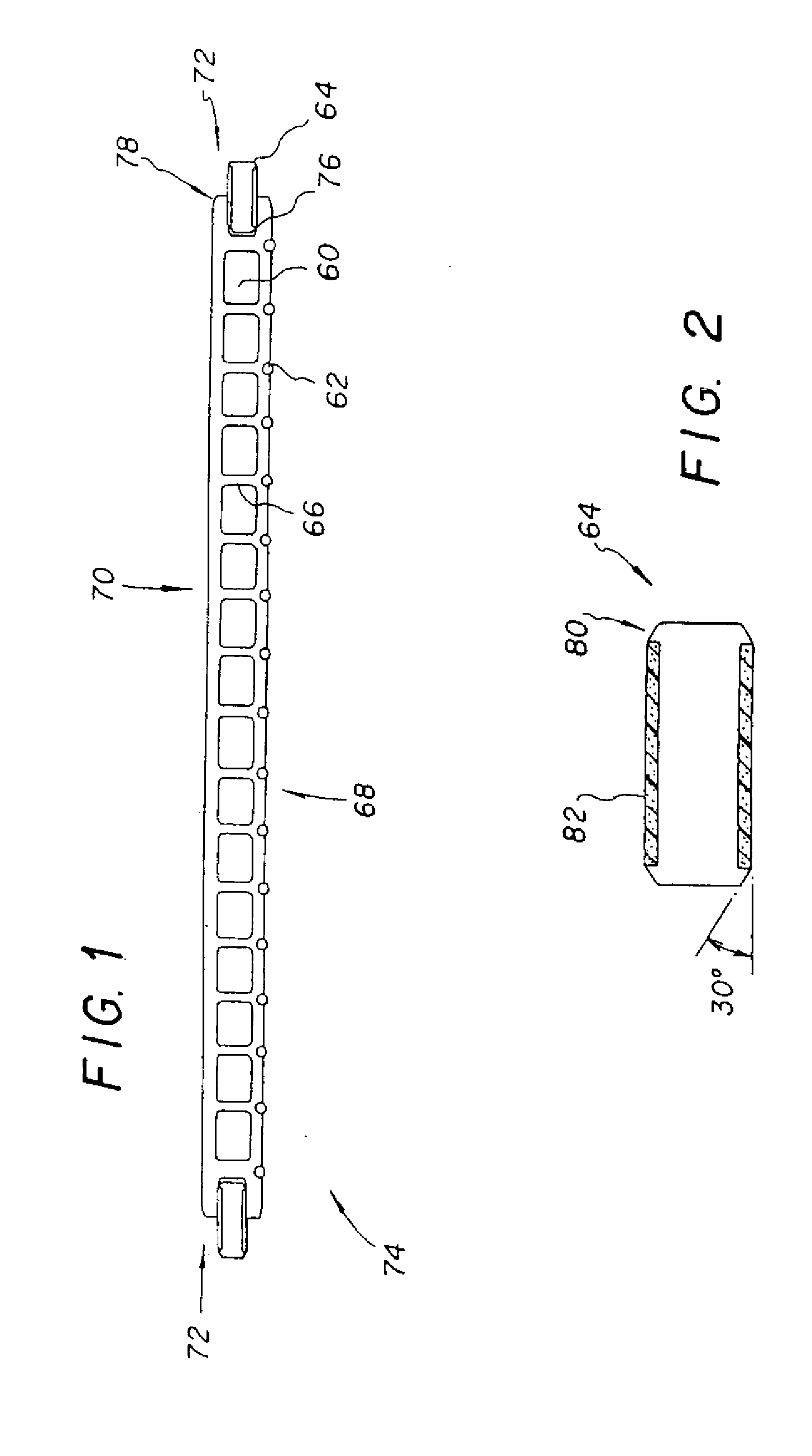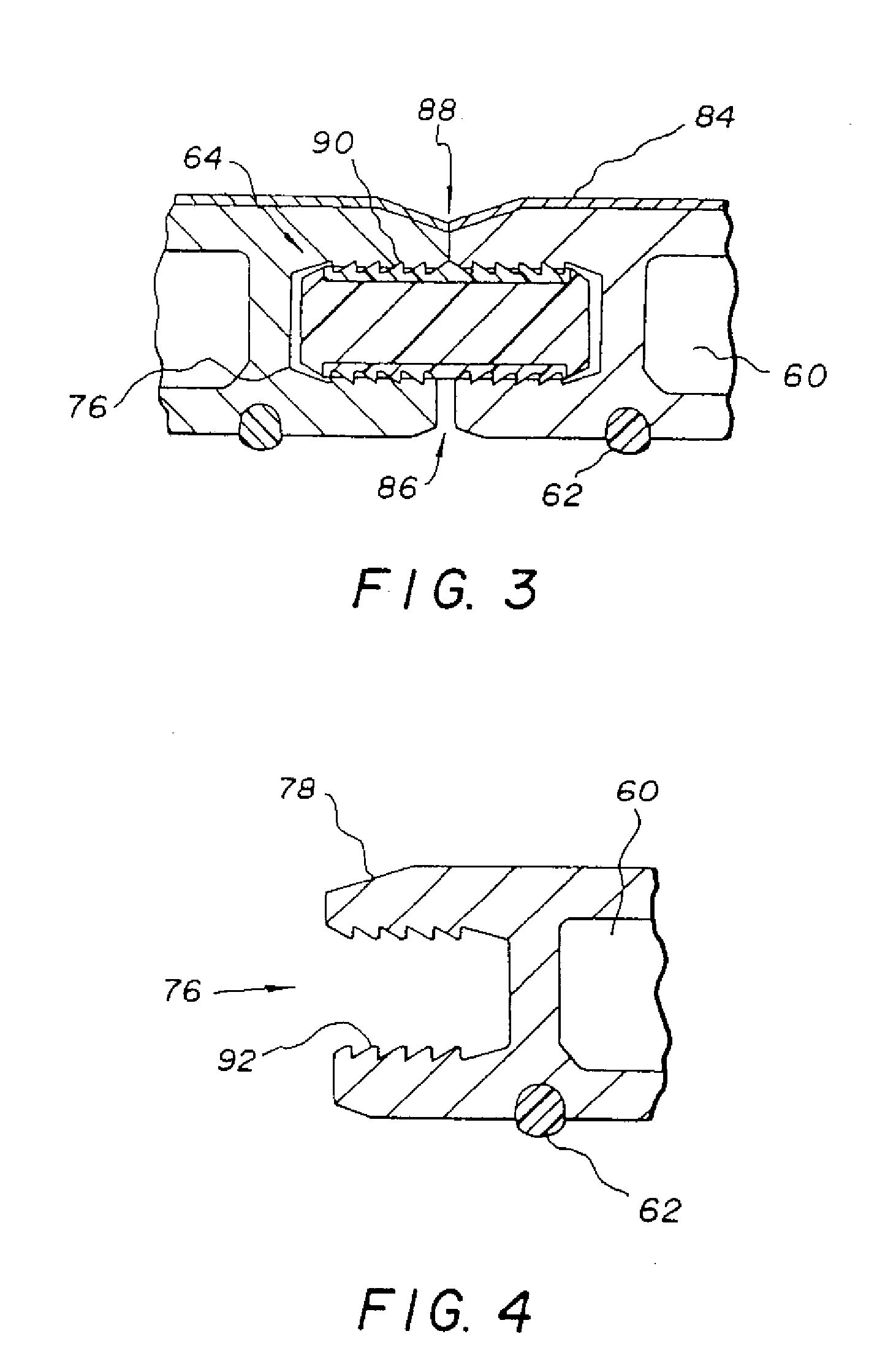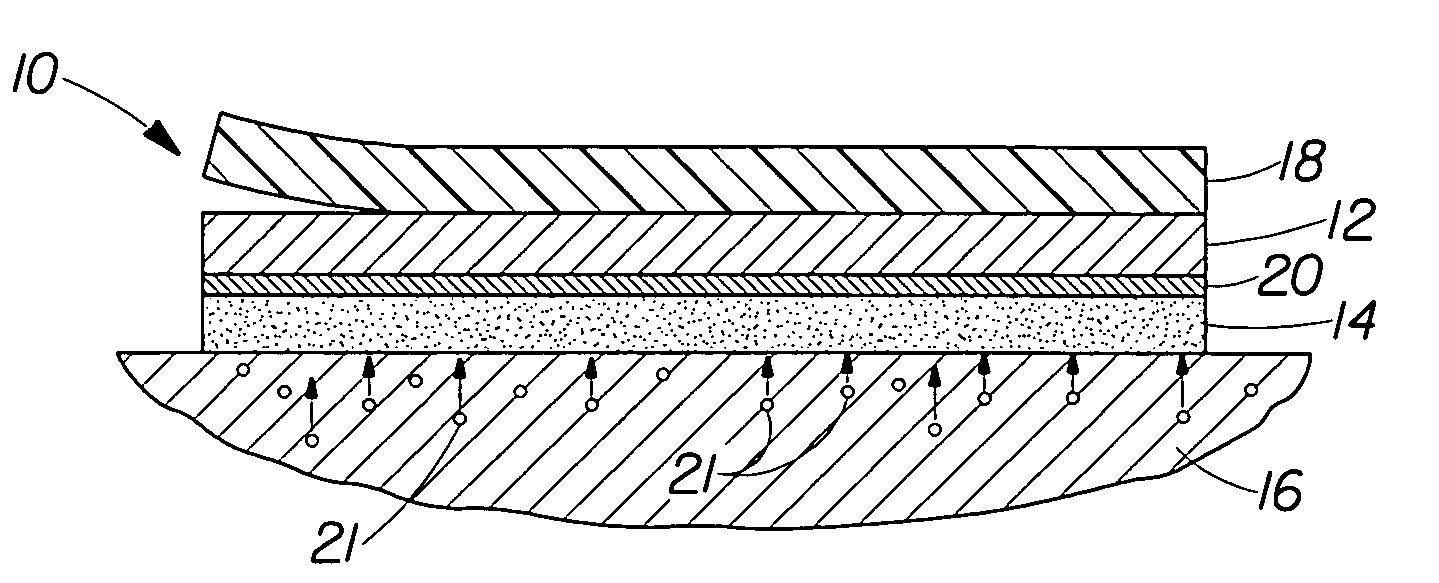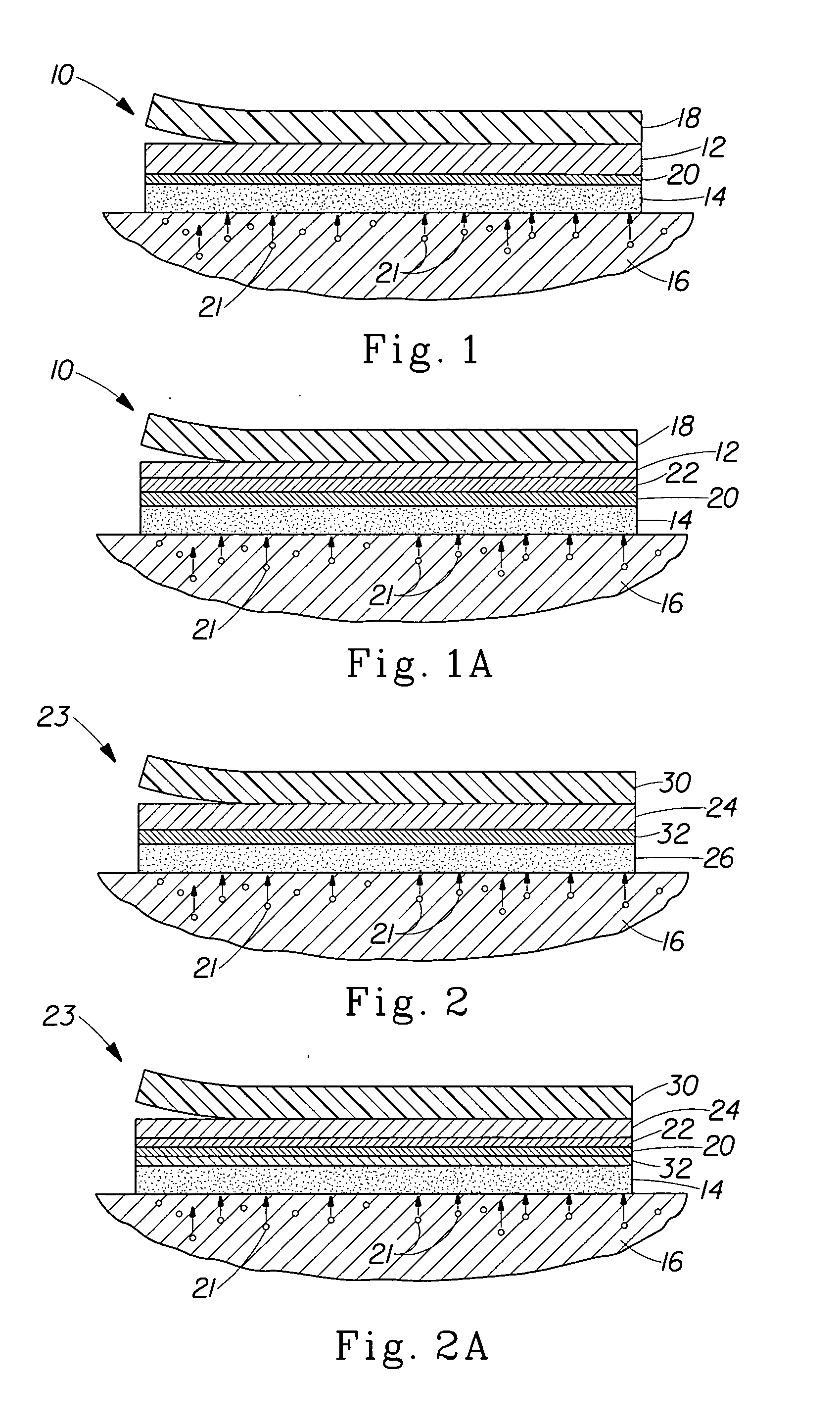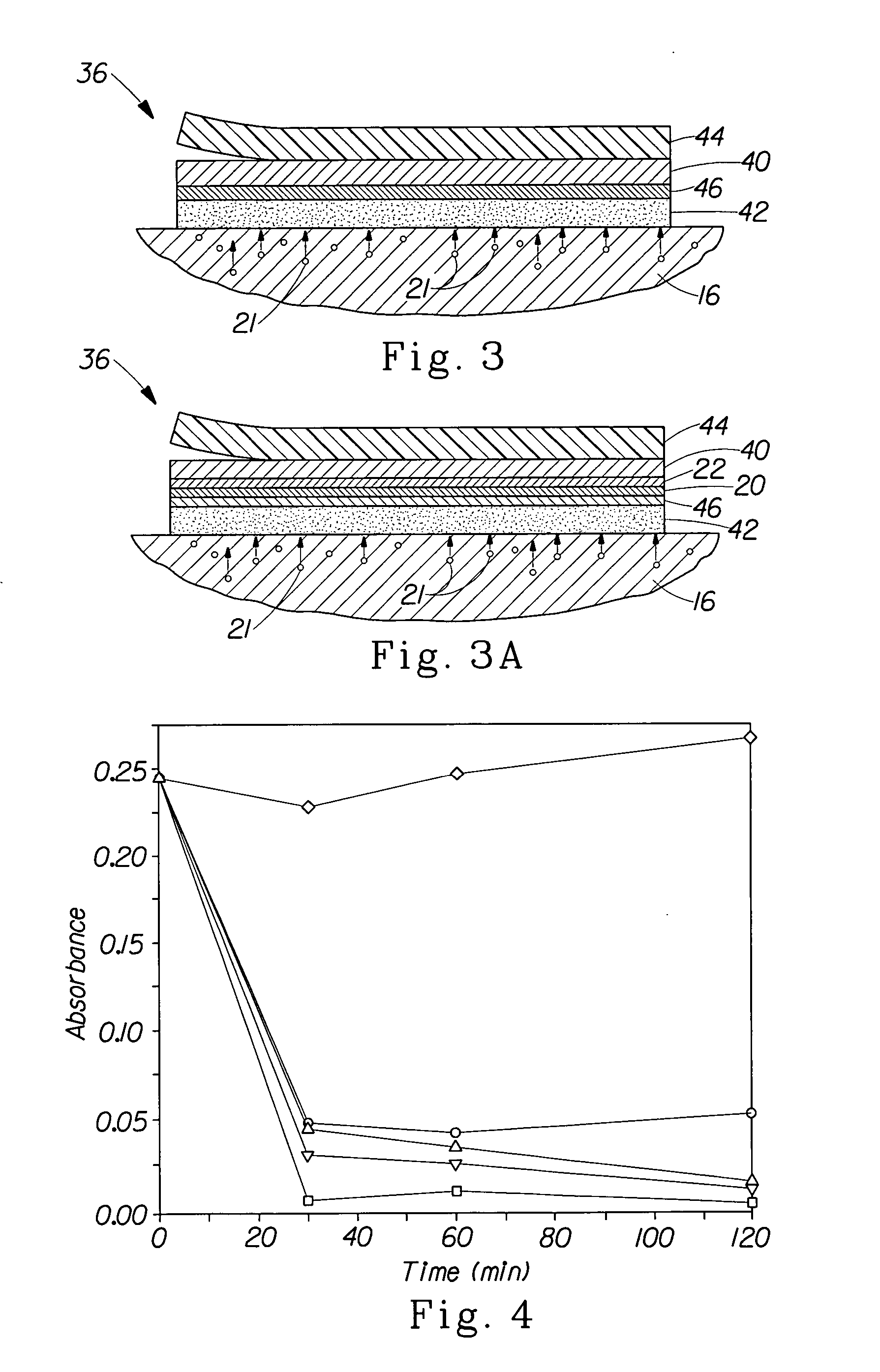Patents
Literature
Hiro is an intelligent assistant for R&D personnel, combined with Patent DNA, to facilitate innovative research.
1888results about "Decorative articles" patented technology
Efficacy Topic
Property
Owner
Technical Advancement
Application Domain
Technology Topic
Technology Field Word
Patent Country/Region
Patent Type
Patent Status
Application Year
Inventor
Decorative floor covering comprising polyethylene terephthalate film layer in surface layer and manufacturing method of the same
InactiveUS6933043B1Superior surface printing sharpness and realismEasy to installSynthetic resin layered productsPaper/cardboard layered productsSurface layerPolyethylene terephthalate
The present invention provides a decorative floor covering comprising a surface layer and a substrate layer underneath, wherein the surface layer comprises a polyethylene terephthalate film layer, and a method for preparing the same. Furthermore, the present invention provides a decorative floor covering comprising a surface layer and a substrate layer underneath, wherein a light weight back layer is further comprised under the substrate layer, and a method for preparing the same. A decorative floor covering of the present invention is a decorative floor covering which has superior surface heat resistance, printing sharpness and realism, and it can be installed conveniently since not only can non-foamed polyvinyl chloride resin be used as a substrate layer, but also the weight of a floor covering is light when a light weight back layer is comprised under the substrate layer.
Owner:LG CHEM LTD
Floorboards with decorative grooves
InactiveUS20040035078A1Provides appearance and durabilityNatural appearanceCovering/liningsTongue/grooves making apparatusSurface layerEngineering
Floorboards consisting of a core and a surface layer with decorative joint edge portions which are formed by removing the surface layer.
Owner:VÄLINGE INNOVATION AB
Thermoplastic planks and methods for making the same
InactiveUS7763345B2Improve moisture resistanceEasy flexibilityCovering/liningsDecorative surface effectsThick plateEngineering
A thermoplastic laminate plank is described wherein the thermoplastic laminate plank comprises a core, a print layer, and optionally an overlay. The core comprises at least one thermoplastic material and has a top surface and bottom surface wherein a print layer is affixed to the top surface of the core and an overlay layer is affixed to the top surface of the print layer. Optionally, an underlay layer can be located and affixed between the bottom surface of the print layer and the top surface of the core. In addition, a method of making the thermoplastic laminate plank is further described which involves extruding at least one thermoplastic material into the shape of the core and affixing a laminate on the core, wherein the laminate comprises an overlay affixed to the top surface of the print layer and optionally an underlay layer affixed to the bottom surface of the print layer.
Owner:VÄLINGE INNOVATION AB
Laminated structures with multiple denier polyester core fibers, randomly oriented reinforcement fibers, and methods of manufacture
InactiveUS6156682AEnhanced sound absorption and structural propertySynthetic resin layered productsLaminationFiberPolyester
A laminated panel-type structure particularly suited for vehicle interior applications such as headliners and door panels has a multiple denier polyester fiber core and randomly oriented structural reinforcing fibers. The laminated structure has superior sound attenuation properties resulting from a core of intertwined polyester fibers of differing deniers, with preferably relatively larger denier fibers on exterior areas of the core and some bicomponent fibers, short non-woven reinforcing fiber strands which are randomly attached and intertwined with the core on opposing major sides of the core, an impervious polymer film with a low melt layer which retains the reinforcing fibers against one side of the core and is attached to a scrim layer, and a polymer web on an opposite side of the core which retains the reinforcing fiber strands on the opposing major side of the core and to which a cover stock is applied. The invention further includes a method of manufacturing the laminated structure wherein the various layers are sequentially unfurled from spools, passed through nip rollers at points of various subcombinations of materials and layers, the reinforcing fiber strands are randomly distributed on to the carrying layers from hoppers or directly from a fiber chopping device, and the completed laminated structure is cut and molded.
Owner:SK AUTOMOTIVE S DE R L DE
Multi-directional and variably expanded sheet material surfaces
ActiveUS8084117B2Efficient use ofIncrease surface areaPaper/cardboard articlesFloorsLaser cuttingMulti directional
Owner:LALVANI HARESH
Floorboards with decorative grooves
ActiveUS20060048474A1Rational and cost-efficientEasy to cleanTongue/grooves making apparatusWallsSurface layerEngineering
Floorboards are shown, which consist of a core and a surface layer and are provided with decorative joint edges which are formed by removing the surface layer.
Owner:VÄLINGE INNOVATION AB
Multi-directional and variably expanded sheet material surfaces
ActiveUS20070122590A1Efficient use ofIncrease surface areaPaper/cardboard articlesFloorsLaser cuttingNanoscopic scale
Expandable surfaces made from sheet materials with slits distributed on the surface of sheet material where the surfaces expand by application of force along or / and across the surface of sheet material. The unexpanded surfaces are flat sheets, or closed surfaces like cylinders, spheres, tubes, or custom-designed organic shapes marked with pre-formed or post-formed slit designs. The expanded surfaces can be single units or modules which can be attached to one another through various means. The sheet materials range from hard surfaces like metals, to softer materials like papers and plastics, or pliable materials like fabrics, rubbers, synthetic surfaces or bio-surfaces. The slits are arranged in patterns ranging from periodic, non-periodic to irregular designs. The slits can be straight, bent, curved or irregularly shaped with even or uneven spacing. Slitting can be achieved by digital cutting or punching devices like laser-cutting, water-jet cutting, digital punching, automated dies, etc. or pre-formed when casting the sheet material. Force can be applied manually with tools or through the use of machines and special set-ups. Applications range from architectural surfaces, walls, ceilings, panel systems, structures and sculpture. On a smaller scale, applications include containers, packaging material, fabrics and human wear. On micro- to nano-scale, applications range from expandable surfaces for gauzes, band-aids, stent designs, skin grafts, semi-permeable membranes and micro-filters for various industries including purification of fluids and chemical substances.
Owner:LALVANI HARESH
Decorative interior sound absorbing panel
A multi-layered fiber reinforced thermoplastic sound absorbing panel includes a porous fiber reinforced thermoplastic core layer having a first surface and a second surface, and includes a thermoplastic material and from about 20 weight percent to about 80 weight percent fibers, a tie layer covering the second surface of the core layer and including a thermoplastic material, and a barrier layer covering the tie layer. The barrier layer includes a thermoplastic material having a melting temperature higher than the melting temperature of the core layer thermoplastic material. The tie layer bonds the barrier layer to the core layer. The panel also includes a non-woven layer including a fabric bonded to the barrier layer. The non-woven layer forms an outer surface of the panel.
Owner:HANWA AZDEL INC
Thermoplastic Planks and Methods For Making The Same
InactiveUS20080311355A1Improve moisture resistanceEasy flexibilityCovering/liningsDecorative surface effectsEngineeringThermoplastic materials
A thermoplastic laminate plank is described wherein the thermoplastic laminate plank comprises a core, a print layer, and optionally an overlay. The core comprises at least one thermoplastic material and has a top surface and bottom surface wherein a print layer is affixed to the top surface of the core and an overlay layer is affixed to the top surface of the print layer. Optionally, an underlay layer can be located and affixed between the bottom surface of the print layer and the top surface of the core. In addition, a method of making the thermoplastic laminate plank is further described which involves extruding at least one thermoplastic material into the shape of the core and affixing a laminate on the core, wherein the laminate comprises an overlay affixed to the top surface of the print layer and optionally an underlay layer affixed to the bottom surface of the print layer.
Owner:VÄLINGE INNOVATION AB
Floor panel and methods for manufacturing floor panels
ActiveUS20130067842A1High densityHigh sensitivityCovering/liningsDecorative surface effectsPanellingEngineering
In a method for manufacturing floor panels that have at least a substrate and a top layer provided on the substrate, the top layer including a thermoplastic layer that is translucent or transparent, the method may involve providing the top layer, including the thermoplastic layer, on the substrate. The method may also involve heating at least the thermoplastic layer, and structuring the thermoplastic layer using a mechanical press element.
Owner:FLOORING IND LTD
Decorating sheet, decorating molded article and in-mold decorating injection molding
ActiveUS20070026197A1Easy to manufactureOrnamental structuresSpecial ornamental structuresShell moldingEngineering
A decorating sheet comprises a transparent resin substrate sheet 1 and a glossy layer 2 laminated to the back surface of the transparent resin substrate sheet 1, and the front surface of the transparent resin substrate sheet 1 is divided into high-gloss portions H and low-gloss portions L. The transparent resin substrate sheet 1 is thick at the high-gloss portions and thin at the low-gloss portions, and, owing to these portions, the decorating sheet can provide a pattern that is visually sensed as if it were a three-dimensional pattern. This transparent resin substrate sheet 1 is composed of two layers, a crystalline resin layer 11 and a non-crystalline resin layer 12. A decorated molded product Pd can be obtained by laminating this decorating sheet to a resin molded product 5.
Owner:DAI NIPPON PRINTING CO LTD
Panel grip with modified seam
ActiveUS7186189B2Same resistanceProviding tackinessWalking sticksLayered productsFace sheetGolf Ball
A grip for the handle of a golf club having at least one panel with a modified seam that is wrapped about an underlisting sleeve. The edges of the panels are coupled together with three attachment interfaces. The grip reduces impact shock and provides a feeling of tackiness in the manner of a spirally wrapped polyurethane-felt grip while allowing the use of multiple color panels and inserts and easy installation onto a golf club shaft.
Owner:WINN INC
Decorative laminate with non-visible light activated material and system and method for using the same
ActiveUS9718302B2Synthetic resin layered productsSpecial ornamental structuresUltravioletLight activated
Owner:THE BOEING CO
Pressed flowers enclosed article
InactiveUS6322862B1More colorVivid colorsPicture framesSpecial ornamental structuresSurface layerPlastic film
An object containing pressed flowers sealed therein which is composed of a base layer, an intermediate layer of molten resin in which is sealed a pressed flower, and a surface layer of transparent film, with these three layers integrally laminated on top of the other, characterized in that the intermediate layer is formed by pressing with heating under reduced pressure from a meltable porous plastic film such that the molten plastic adheres closely to the pressed flower to seal it and also fixes the pressed flower to both the base layer and the surface layer of transparent film. It retains the natural color of the pressed flower for a long period of time without deterioration by air and moisture.
Owner:DOPPEL
Biolaminate composite assembly and related method
InactiveUS20120015176A1Synthetic resin layered productsSpecial ornamental structuresComposite material
Embodiments of the invention relate to a biolaminate composite assembly, including one or more biolaminate layers, a non-plastic rigid substrate and an adhesive layer in contact with the substrate and the one or more biolaminate layers. The substrate is laminated or formed to the one or more biolaminate layers. Embodiments also relate to methods of making a biolaminate composite assembly.
Owner:BIOVATION ACQUISITION
Film with outer layer composed of a polyamide composition
InactiveUS20070104971A1Layered product treatmentSynthetic resin layered productsPolymer sciencePolyamide
A decorative film having an outer layer containing a polyamide composition with the following components: a) from 50 to 100 parts by weight of polyamide prepared from: α) from 70 to 100 mol % of diamine selected from m-xylylenediamine, p-xylylenediamine and mixtures thereof, β) from 0 to 30 mol % of other diamines having from 6 to 14 carbon atoms, and γ) from 70 to 100 mol % of aliphatic dicarboxylic acids having from 10 to 18 carbon atoms and δ) from 0 to 30 mol % of other dicarboxylic acids having from 6 to 9 carbon atoms, and b) from 0 to 50 parts by weight of another polyamide, where a) and b) total 100, having good chemicals resistance, good stress cracking resistance, improved scratch resistance, and improved gloss.
Owner:EVONIK DEGUSSA GMBH
Architectural laminate panel with embedded compressible objects and methods for making the same
InactiveUS7008700B1Significantly trapping airPicture framesDecorative surface effectsCompressible materialEngineering
A decorative laminate panel comprises compressible objects embedded inside, wherein the compressible objects would be flattened in unnatural shapes under conventional processes. For example, an exemplary decorative laminate product comprises thatch reed, willow reed, bamboo, weeds, grasses, twigs and branches of a tree or bush, beans, and so forth. In at least one exemplary implementation of the present invention, an extruded sheet, such as PETG or polycarbonate, is softened and melted around the compressible materials such that the compressible materials do not deform. Imperfections in the decorative laminate panel can be easily removed, thereby allowing for producing a high quality decorative laminate panel with high efficiency and relatively low cost compared with conventional methods and materials.
Owner:3FORM
Process to produce biaxially oriented polylactic acid film at high transverse orientation rates
InactiveUS20090148715A1High rate of orientationEasy to stretchSynthetic resin layered productsDomestic articlesTransverse orientationEthylene
A biaxially oriented laminate film including a first amorphous polylactic acid polymer heat sealable resin layer and a second core layer including a blend of crystalline polylactic acid polymer and 2-10 wt % of the core layer of an ethylene-acrylate copolymer. The laminate film, exhibiting the property to be transverse oriented in excess of 6 times its original width, typically 8 to 10 times its original width with excellent operability and relatively low haze, is disclosed. The laminate film may further have additional layers such as a third polylactic acid resin-containing layer disposed on the side of the core layer opposite the heat sealable layer, a metal layer, or combinations thereof.
Owner:TORAY PLASTICS AMERICA
Manufacturing method of decorated molding article and manufacturing method of decorated film
ActiveUS9138924B2Simple processLow costLamination ancillary operationsSemiconductor/solid-state device detailsShell moldingTransfer molding
Manufacturing method of decorated molding article is provided. The manufacturing method of decorated molding article includes the following steps. A hard coating layer is formed on a substrate. The hard coating layer has an uneven surface and a planar surface, wherein the substrate contacts with the planar surface. A pattern layer is formed on and completely covers the uneven surface of the hard coating layer. An adhesive layer is formed on the pattern layer so as to form a decoration film. A transfer molding process is performed such that the decoration film adheres to an article through the adhesive layer. The transfer molding process includes performing a heating procedure such that the substrate is separated from the planar surface of the hard coating layer.
Owner:PRIOR
Decorative components for motor vehicle interiors
InactiveUS20050276874A1Increase flexibilityImprove adhesionEnvelopes/bags making machineryMouldsSingle plateEngineering
A method of manufacturing a decorative components for vehicle interiors, comprises the steps of pre-forming a sheet of formable veneer material under pressure and heath, positioning the pre-formed sheet in a mold half of an injection mold comprising a cavity; holding the sheet in position on the mold half, closing said mold and injecting into the cavity one or more thermoplastic materials on the back of the veneer sheet to provide a support layer.
Owner:KEY SAFETY SYST
Adhesive cover for consumer devices
InactiveUS8110268B2Easily reposition and removeFacilitate digital printingLamination ancillary operationsLayered product treatmentEngineeringMultiple layer
A personalized adhesive cover for a consumer device includes multiple layers. In one implementation, an adhesive cover includes a top laminate layer adhered to a base layer that is adhered to a bottom adhesive layer. The base layer is treated to facilitate acceptance of a personalized design applied to the middle layer. The adhesive cover is contoured to partially or completely cover one or more sides of a consumer device. The cover can include one or more separate pieces, apertures and cutouts, for example, so that the cover does not interfere with the functions of a device.
Owner:SKINIT
Switching a client from unicasting to multicasting by simultaneously providing unicast and multicast streams to the client
ActiveUS20060200576A1Efficient use of resourcesManagement intelligenceDecorative surface effectsSynthetic resin layered productsDigital videoClient-side
Switching a client from unicasting back to multicasting involves simultaneously providing the digital video content to the client via unicasting and multicasting until the client has buffered duplicate frames (i.e., frames that contain the same digital video content). Once the client has buffered duplicate frames, the client can transition from playing out of a buffer that holds frames received via unicasting to playing out of a buffer that holds frames received via multicasting without skipping a frame. Once the transition back to multicasting is complete, unicasting is terminated and any frames remaining in the unicast buffer are flushed.
Owner:SYNAMEDIA LTD
Adhesive backed skins and grips for handheld devices
A skin (11) for use with a handheld electronic device is disclosed. The skin (11) includes a decorative layer, an anti-slip layer adhered over the decorative layer, and an adhesive layer disposed between the decorative layer and the anti-slip layer. The anti-slip layer has a surface finish (19) having a high coefficient of friction. The skin (11) is attached to the handheld electronic device by a layer of adhesive (16) on the back of the decorative layer. The skin (11) is selectively shapped to conform to the contours, shape, and components of the handheld electronic device. The skin (11) provides anti-slip and shock absorption fucntionalities to the handheld electronic device, but does not prevent or impede the handheld electronic device from mating with or connecting to corresponding accessory components.
Owner:ANTONINI FRED A
Cellulosic biolaminate composite assembly and related methods
Cellulosic biolaminate assemblies are provided. In one embodiment, a biolaminate structure is provided comprising a first cellulosic layer, a second cellulosic layer, and a first bio-based polymer. The first bio-based polymer impregnates the first cellulosic layer and the second cellulosic layer. The first cellulosic layer and the second cellulosic layer are fused together.
Owner:BIOVATION ACQUISITION
Coated Film for Insert Mold Decoration, Methods for Using the Same, and Articles Made Thereby
A coated thermoplastic film can be subjected to printing to obtain a decorative film, preformed (for example, thermoformed), and then inserted into a mold that has the configuration of the preformed decorative film A base polymeric structure comprising a polymer such as a polycarbonate or blend thereof can be injection molded to the exposed surface of the preformed decorative film The molded structure has various applications such as cell phones or other electronic devices, automotive vehicles, appliances, display panels, lenses, etc. A process for making the molded article is also described. The coating for the coated thermoplastic film can be made from a UV-curable composition and can provide superior embossing and thermoformability, hardness, and adhesion, while providing enhanced chemical, scratch and abrasion resistance.
Owner:SABIC GLOBAL TECH BV
Thermoplastic Planks And Methods For Making The Same
InactiveUS20100260962A1Improve moisture resistanceEasy flexibilityCovering/liningsDecorative surface effectsEngineeringThermoplastic materials
A thermoplastic laminate plank is described wherein the thermoplastic laminate plank comprises a core, a print layer, and optionally an overlay. The core comprises at least one thermoplastic material and has a top surface and bottom surface wherein a print layer is affixed to the top surface of the core and an overlay layer is affixed to the top surface of the print layer. Optionally, an underlay layer can be located and affixed between the bottom surface of the print layer and the top surface of the core. In addition, a method of making the thermoplastic laminate plank is further described which involves extruding at least one thermoplastic material into the shape of the core and affixing a laminate on the core, wherein the laminate comprises an overlay affixed to the top surface of the print layer and optionally an underlay layer affixed to the bottom surface of the print layer.
Owner:VÄLINGE INNOVATION AB
Matte biaxially oriented polylactic acid film
ActiveUS20100009208A1Minimize thermal shrinkage effectReduce internal stressBio-packagingSynthetic resin layered productsPolyolefinPolymer chemistry
A biaxially oriented laminate film including a core layer including a blend of crystalline polylactic acid polymer and a minority amount of polyolefin with a compatibilizing resin which is biaxially oriented such that a matte or opaque appearance is obtained. The laminate film may further have additional layers such as a heat sealable layer disposed on one side of the core layer including an amorphous polylactic acid resin and / or a polylactic acid resin-containing layer disposed on the side of the core layer opposite the heat sealable layer, a metal layer, or combinations thereof.
Owner:TORAY PLASTICS AMERICA
Discoloration-resistant articles for applying color on surfaces and methods of reducing discoloration in articles for applying color on surfaces
InactiveUS20060046028A1Reduce transferPreventing and reducing discolorationDecorative surface effectsTraffic signalsColor effectEngineering
Layered articles for applying color on a surface including a sheet of visually-perceivable color effects, a bonding agent capable of bonding the sheet to the surface, and a releasable liner removably attached to the sheet. The article further includes a substance, agent or barrier that prevents or, at the least, reduces the transfer of an extraneous agent from the surface to a location in the layered article that would affect the visually-perceivable color effect conveyed by the sheet.
Owner:THE PROCTER & GAMBLE COMPANY +1
Articles containing bimodal ionomer compositions
Provided are partially or fully neutralized mixtures of carboxylate functionalized ethylene high copolymers or terpolymers (Mw between 80,000 and 500,000 Da) with carboxylate functionalized ethylene low copolymers (Mw between 2,000 and 30,000 Da). The compositions are used in films, multilayer structures and other articles of manufacture. The compositions are preferably used on a surface of the articles.
Owner:PERFORMANCE MATERIALS NA INC
Coated Film for Insert Mold Decoration, Methods for Using the Same, and Articles Made Thereby
InactiveUS20100003523A1Synthetic resin layered productsPolyurea/polyurethane coatingsCompound (substance)Engineering
A coated thermoplastic film can be subjected to printing to obtain a decorative film, preformed (for example, thermoformed), and then inserted into a mold that has the configuration of the preformed decorative film. A base polymeric structure comprising a polymer such as a polycarbonate or blend thereof can be injection molded to the exposed surface of the preformed decorative film. The molded structure has various applications such as cell phones or other electronic devices, automotive vehicles, appliances, display panels, lenses, etc. A process for making the molded article is also described. The coating for the coated thermoplastic film can be made from a UV-curable composition and can provide superior embossing and thermoformability, hardness, and adhesion, while providing enhanced chemical, scratch and abrasion resistance.
Owner:SABIC GLOBAL TECH BV
Features
- R&D
- Intellectual Property
- Life Sciences
- Materials
- Tech Scout
Why Patsnap Eureka
- Unparalleled Data Quality
- Higher Quality Content
- 60% Fewer Hallucinations
Social media
Patsnap Eureka Blog
Learn More Browse by: Latest US Patents, China's latest patents, Technical Efficacy Thesaurus, Application Domain, Technology Topic, Popular Technical Reports.
© 2025 PatSnap. All rights reserved.Legal|Privacy policy|Modern Slavery Act Transparency Statement|Sitemap|About US| Contact US: help@patsnap.com
